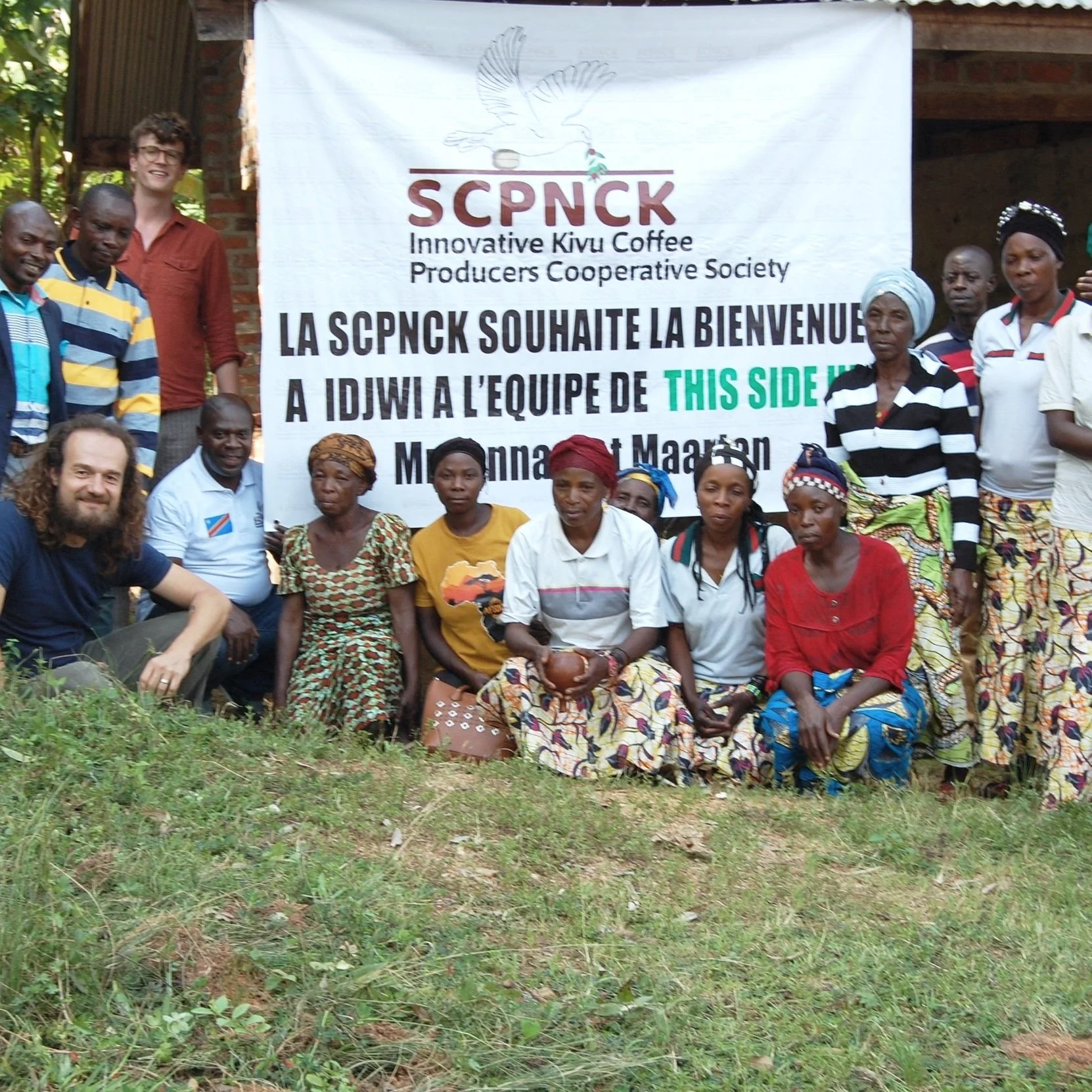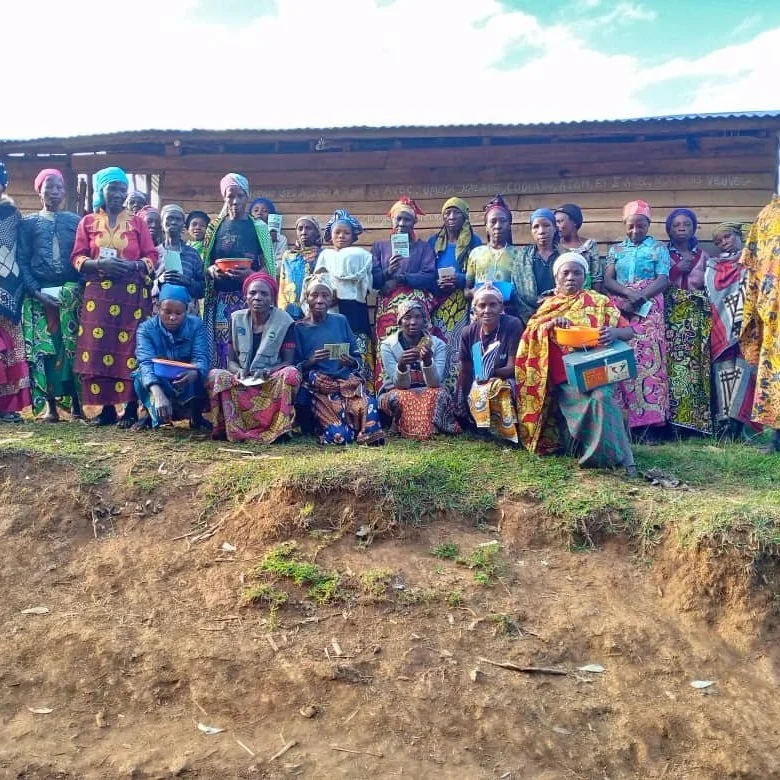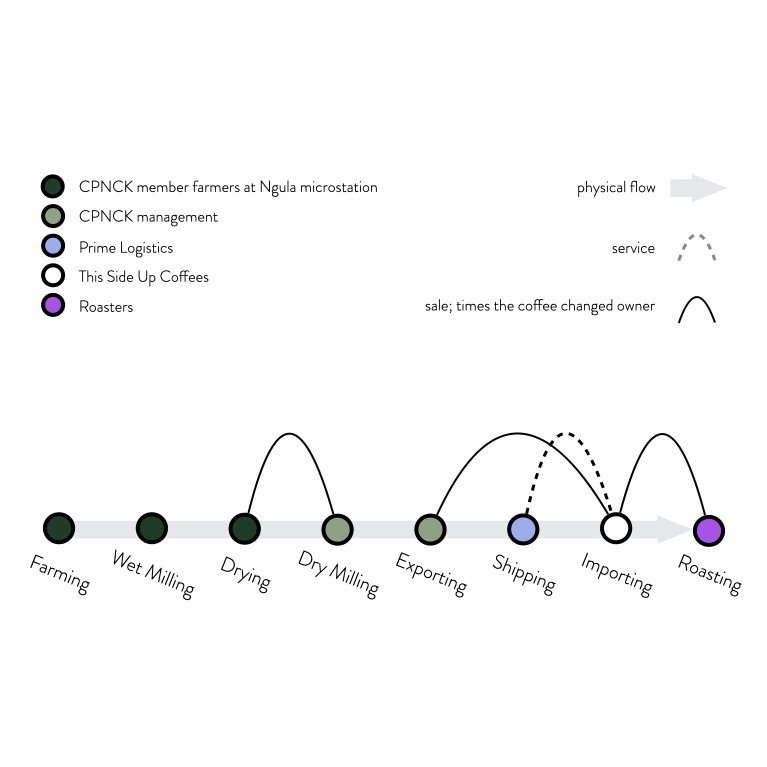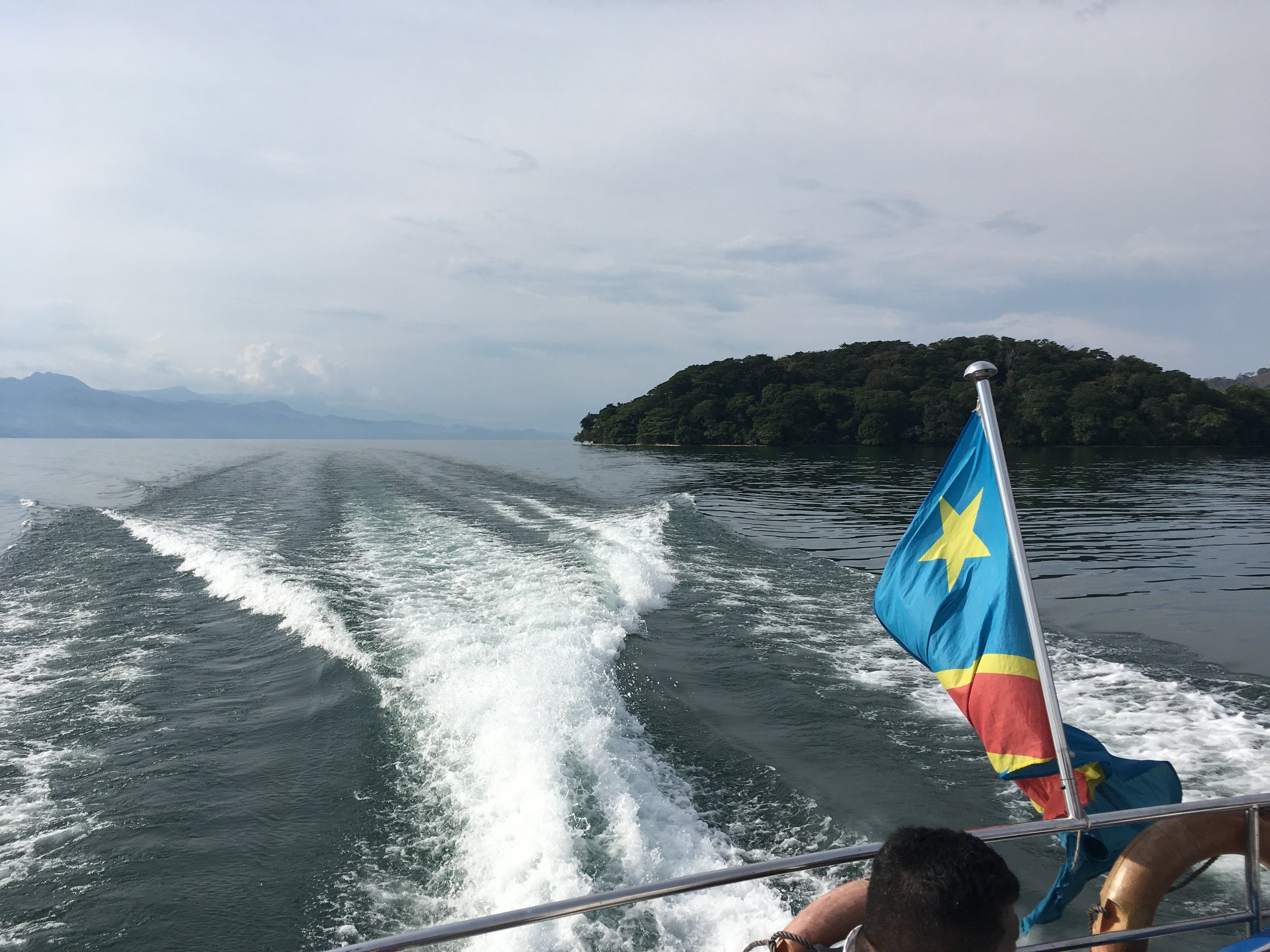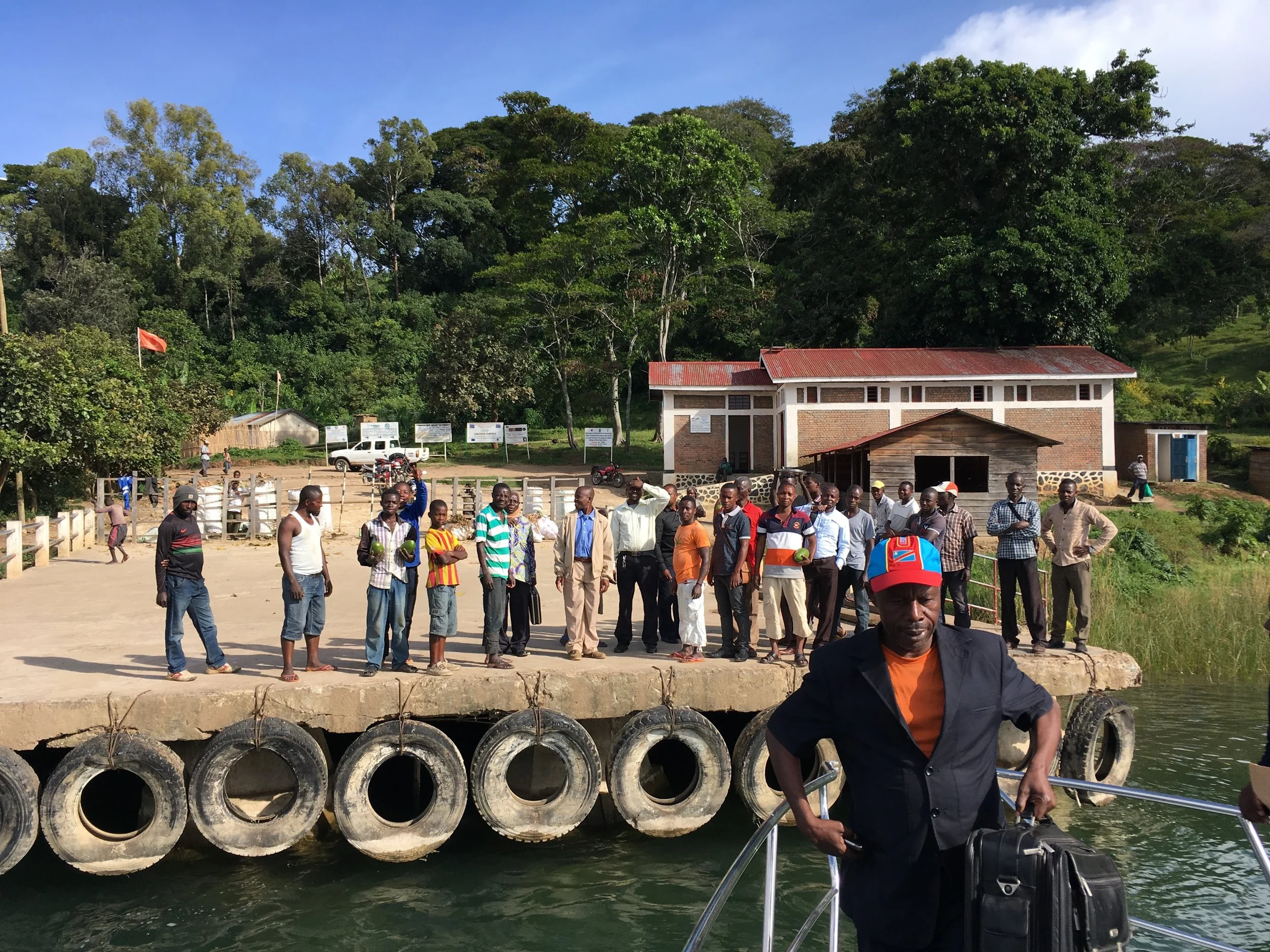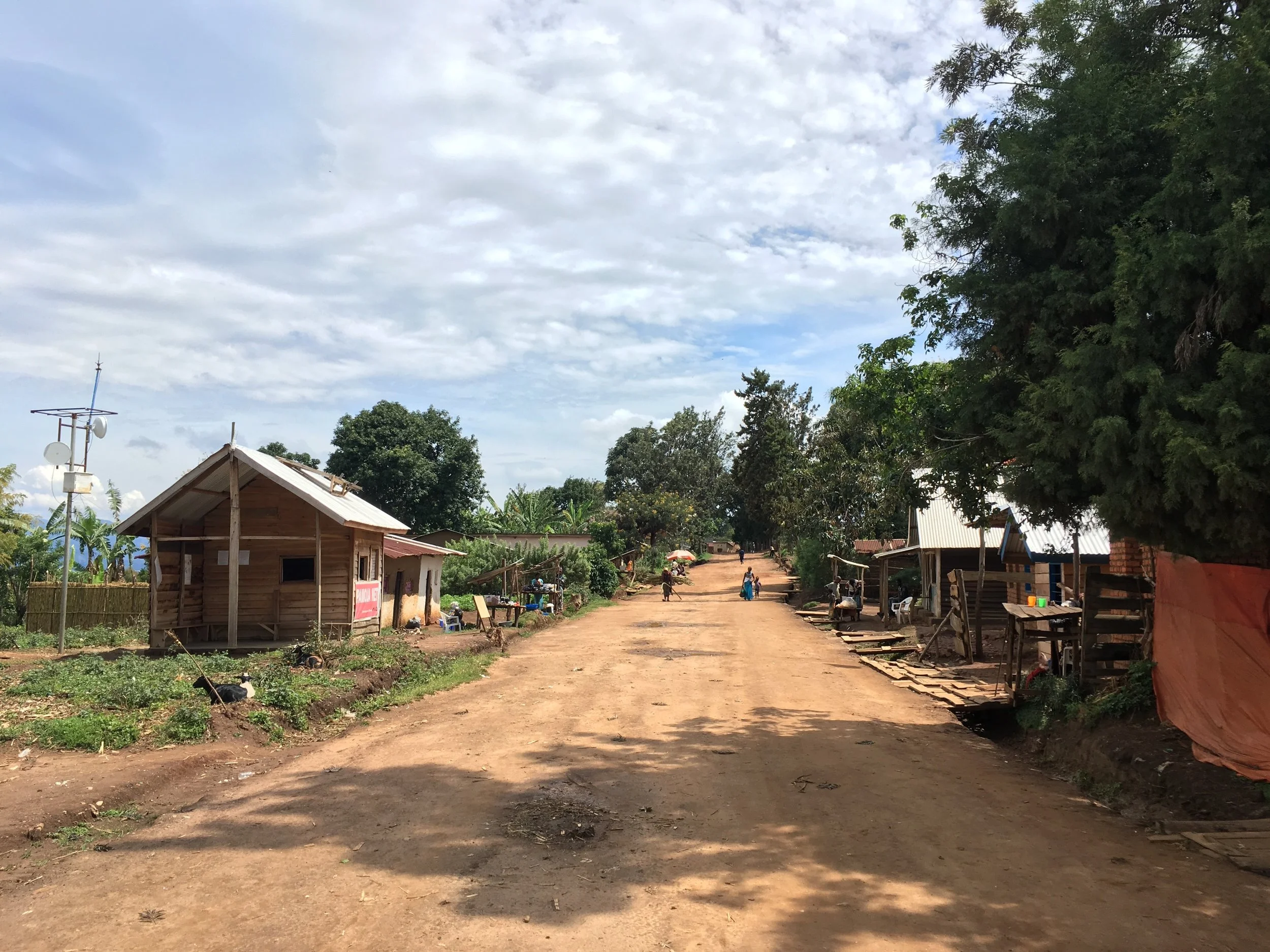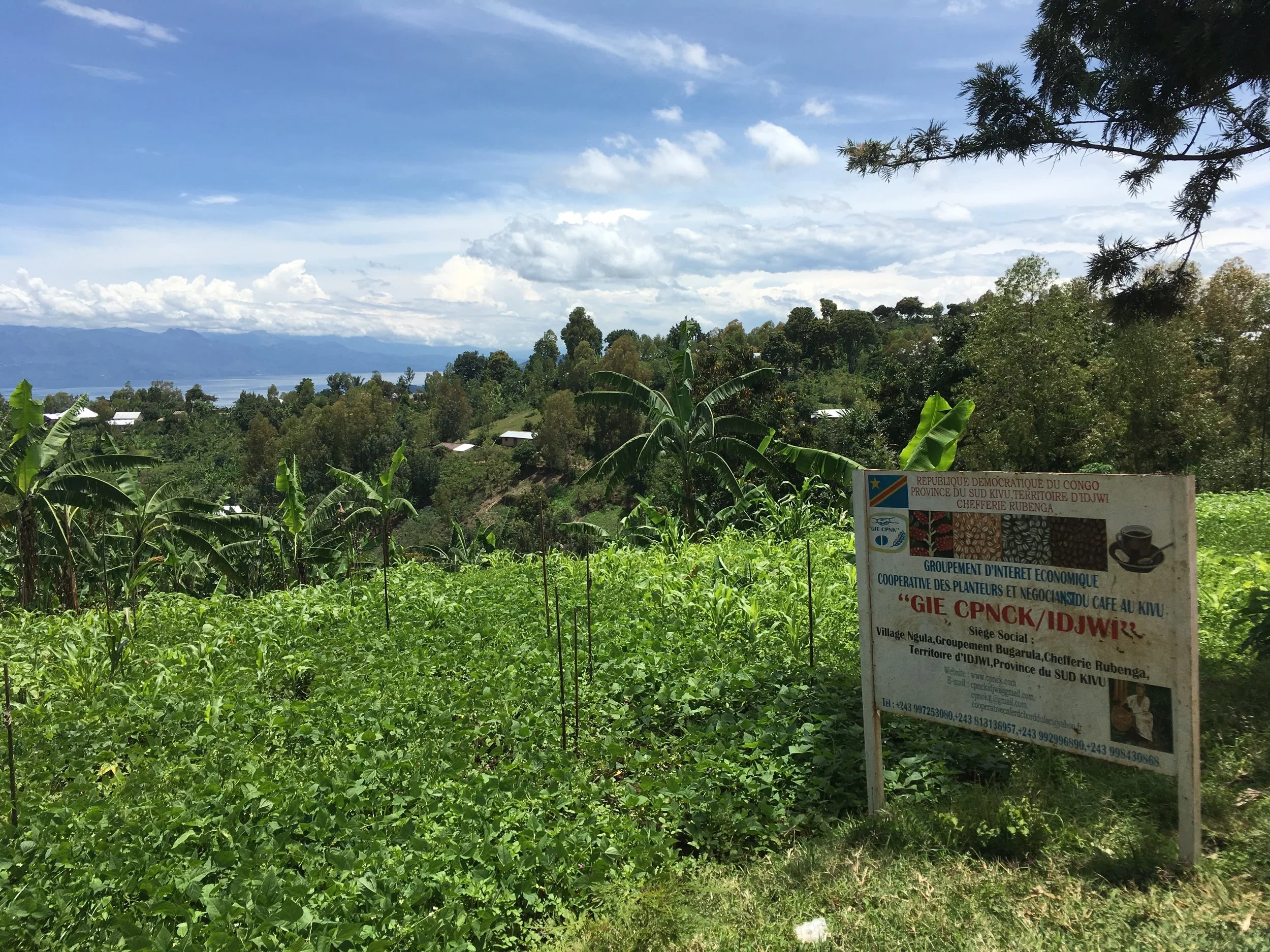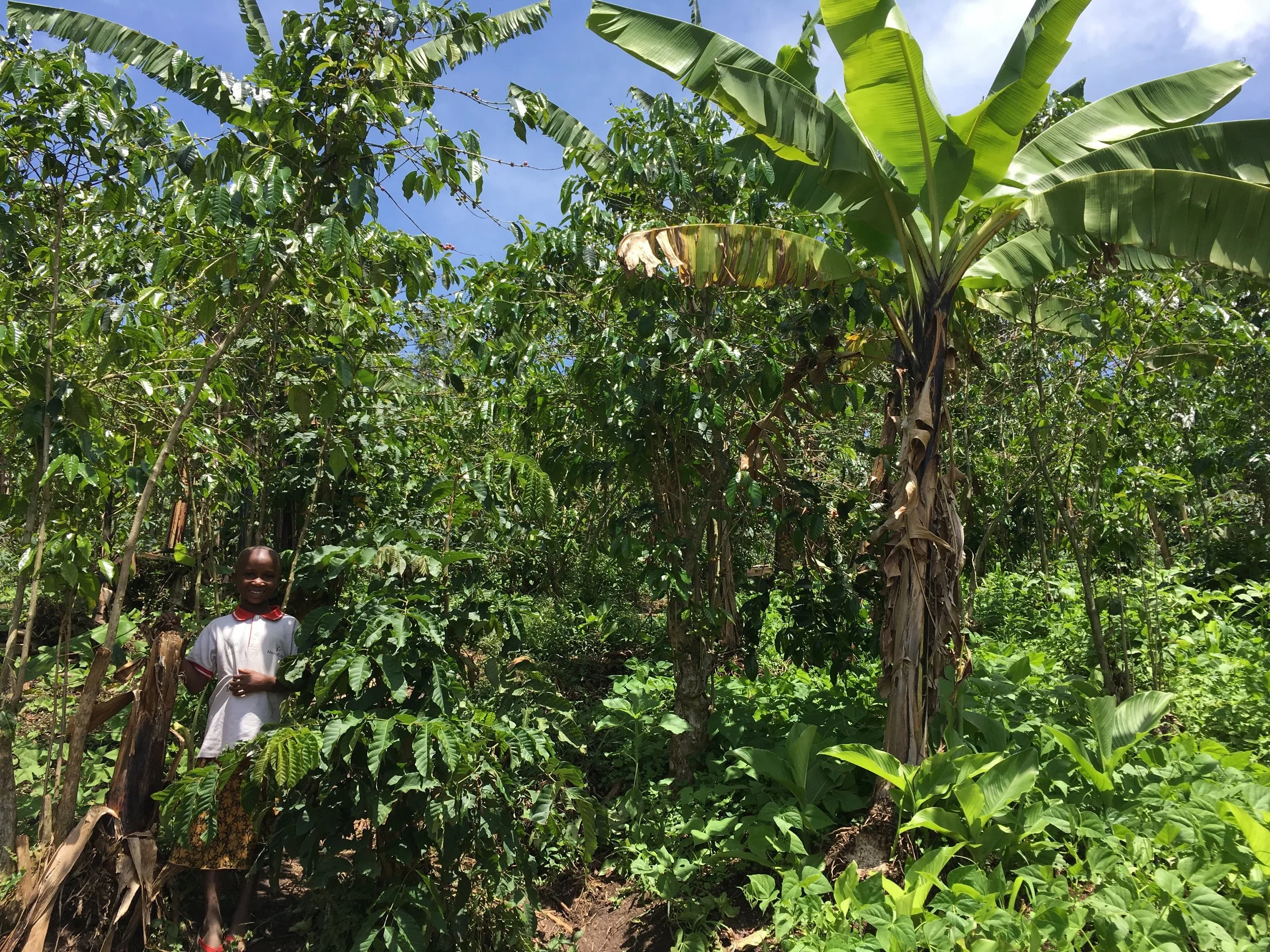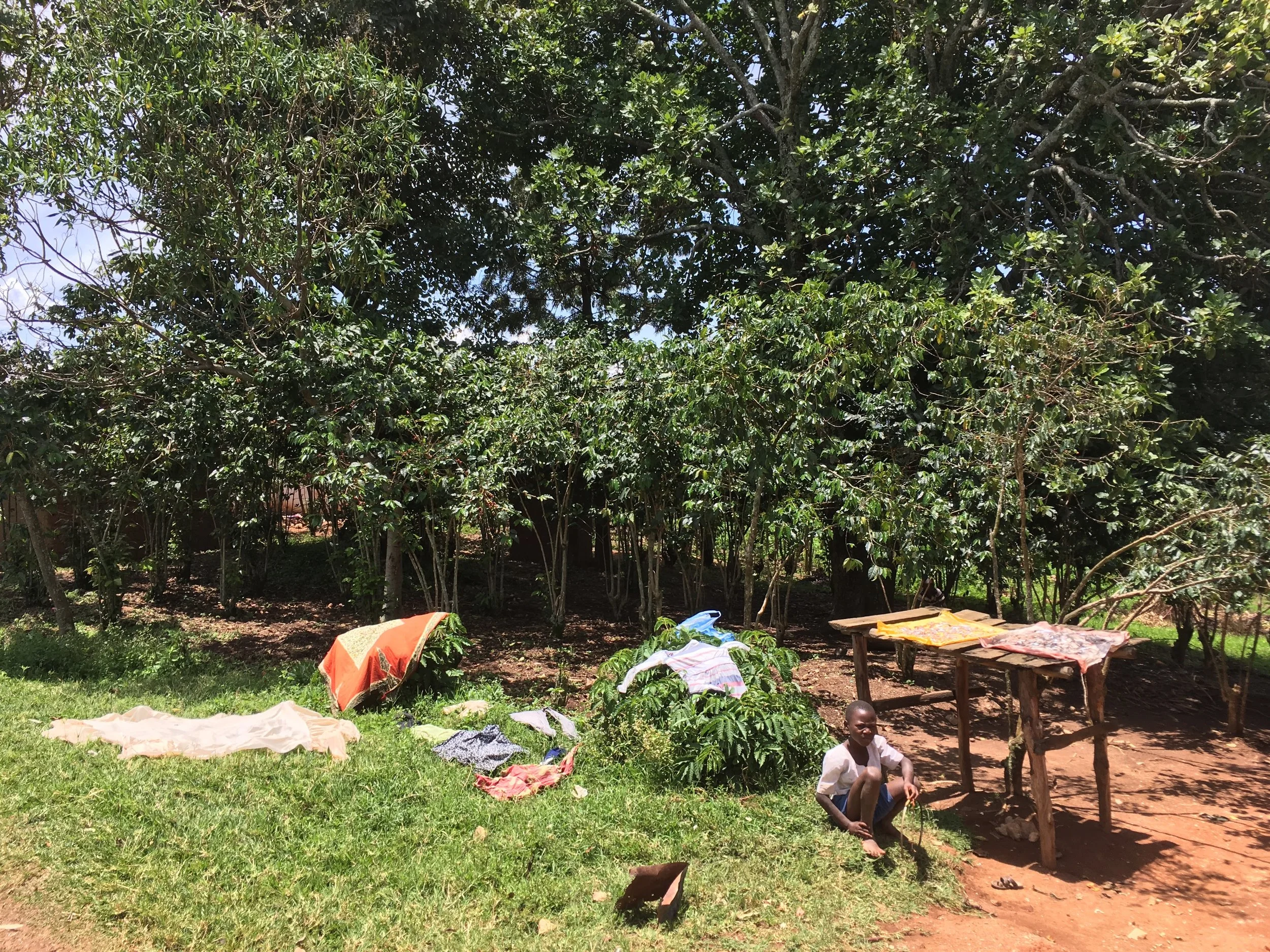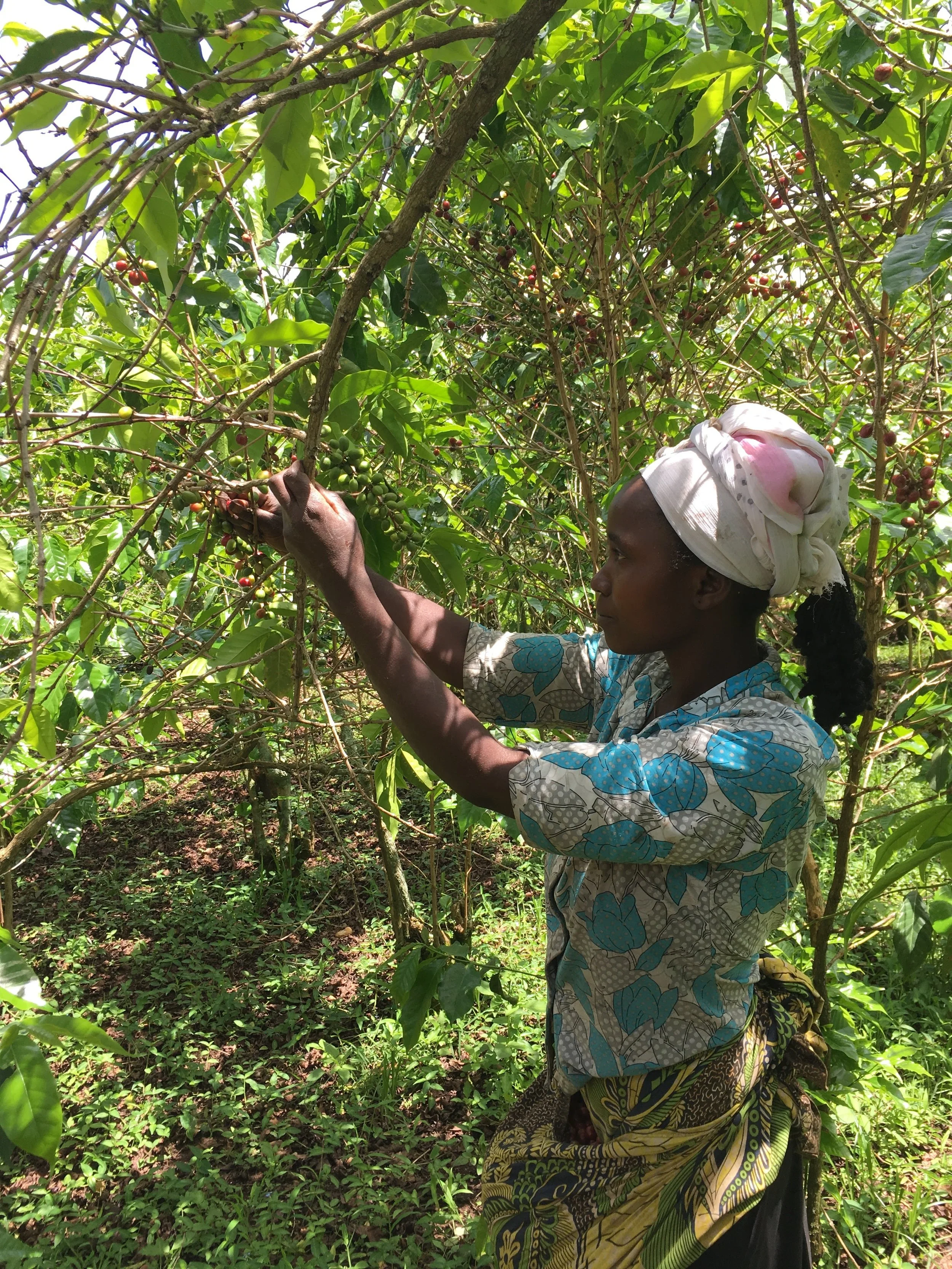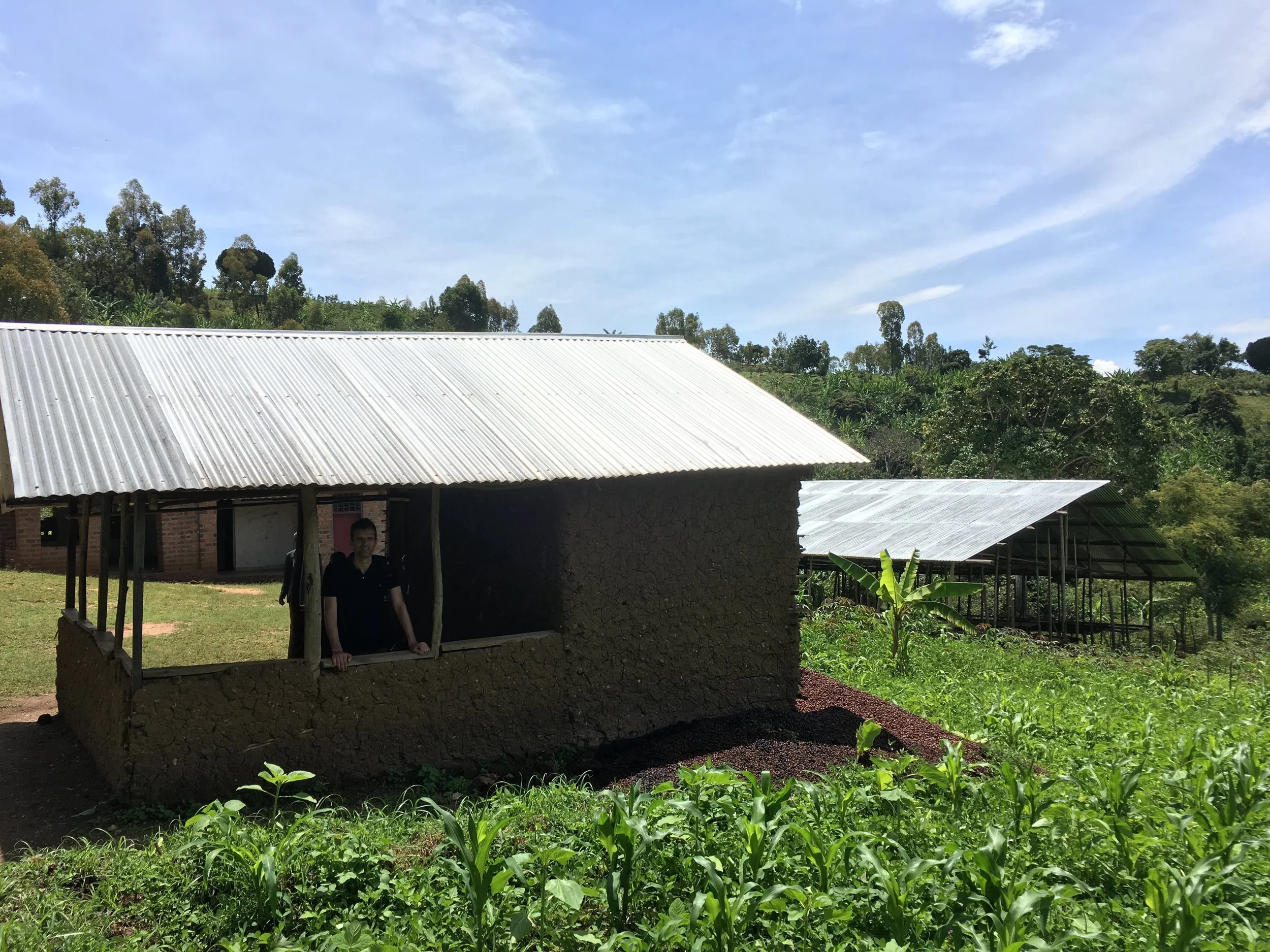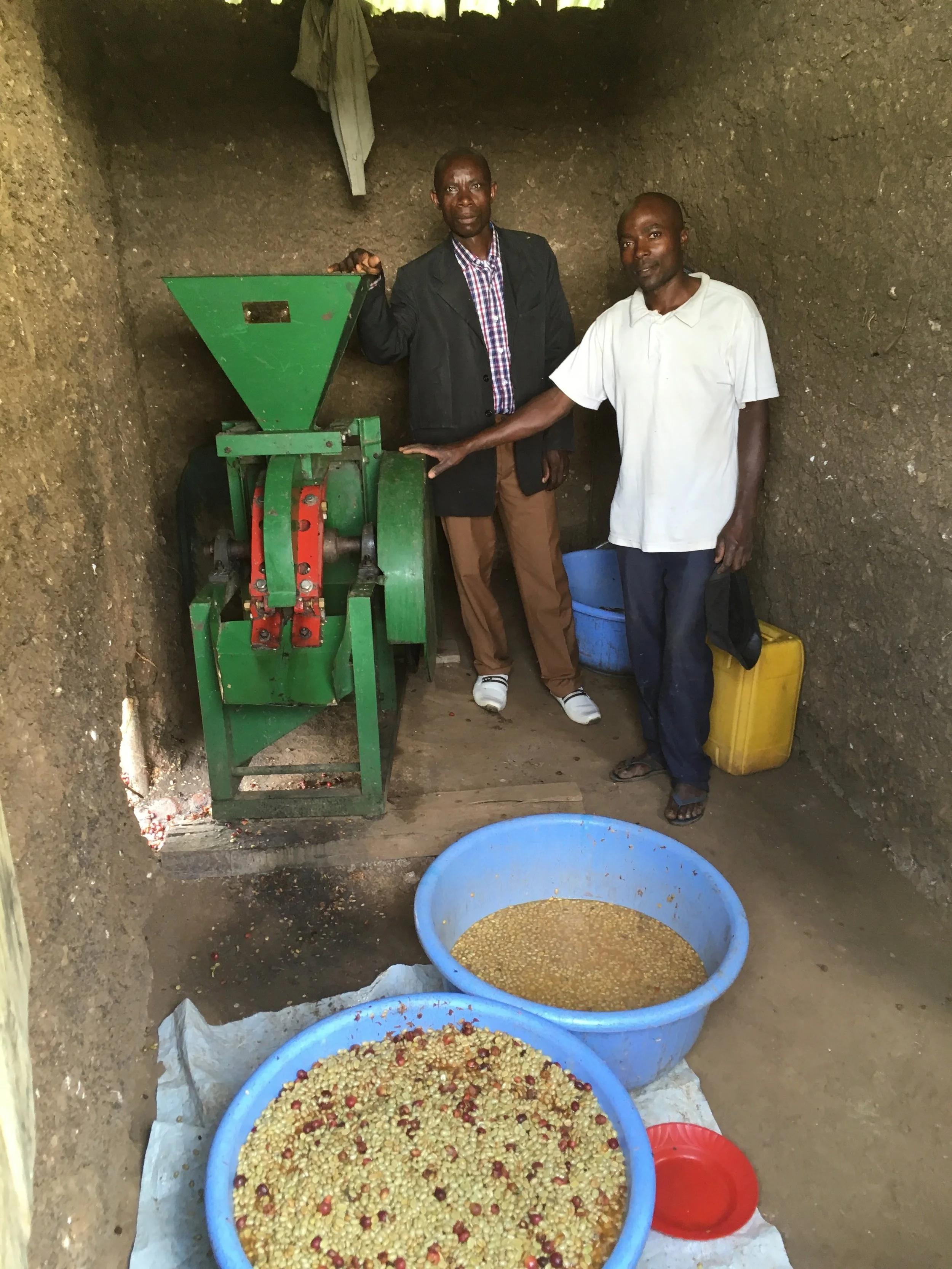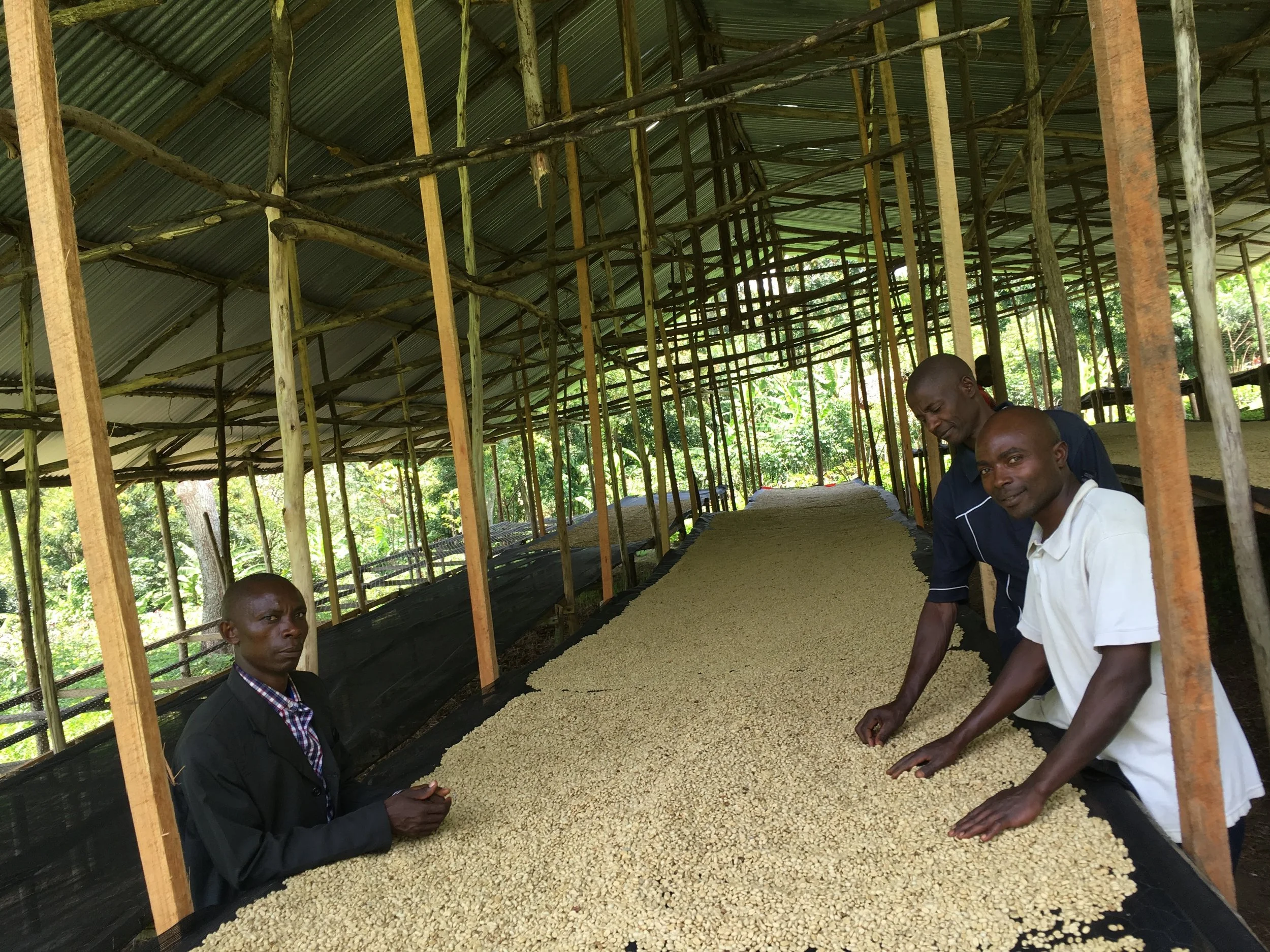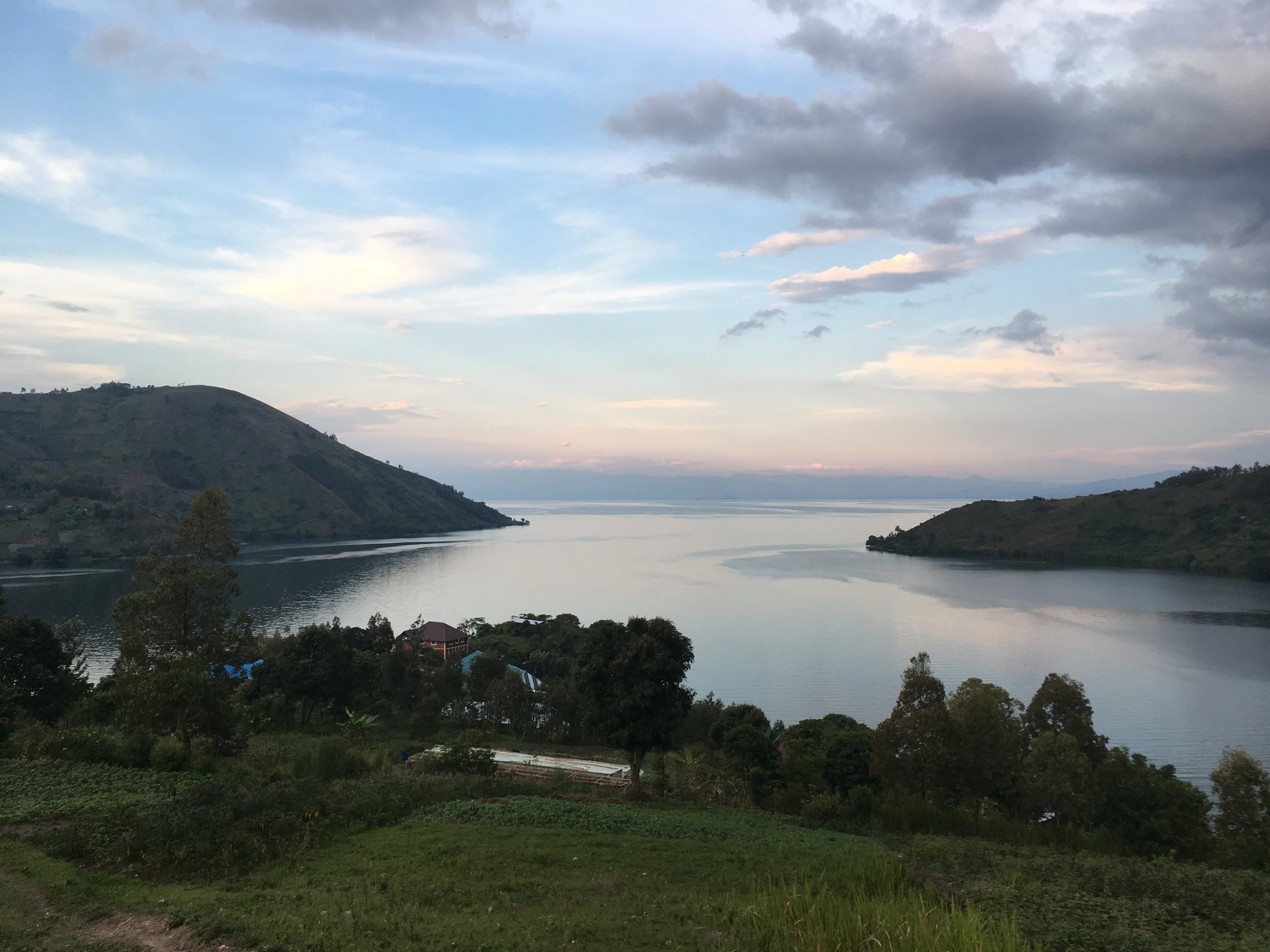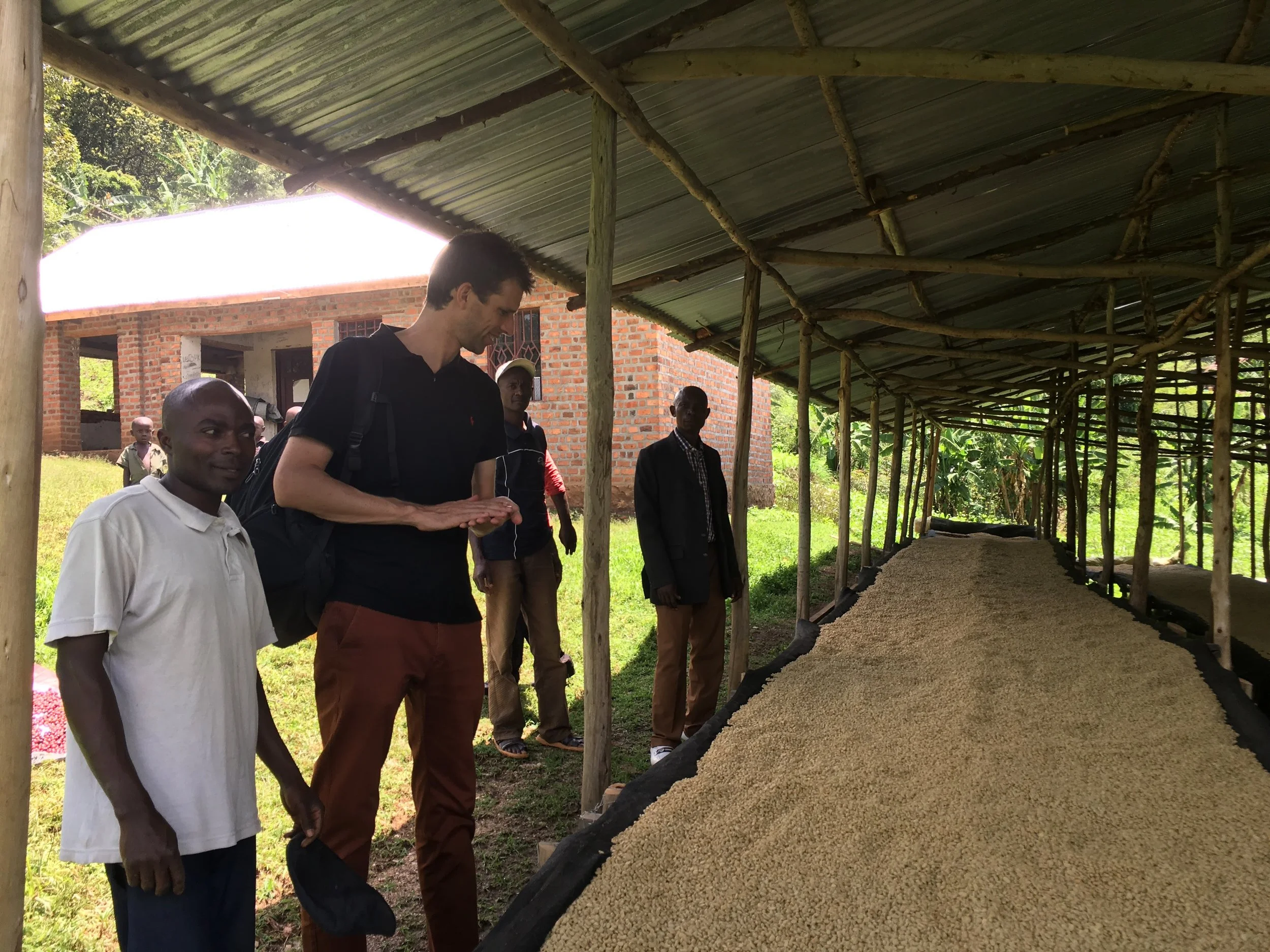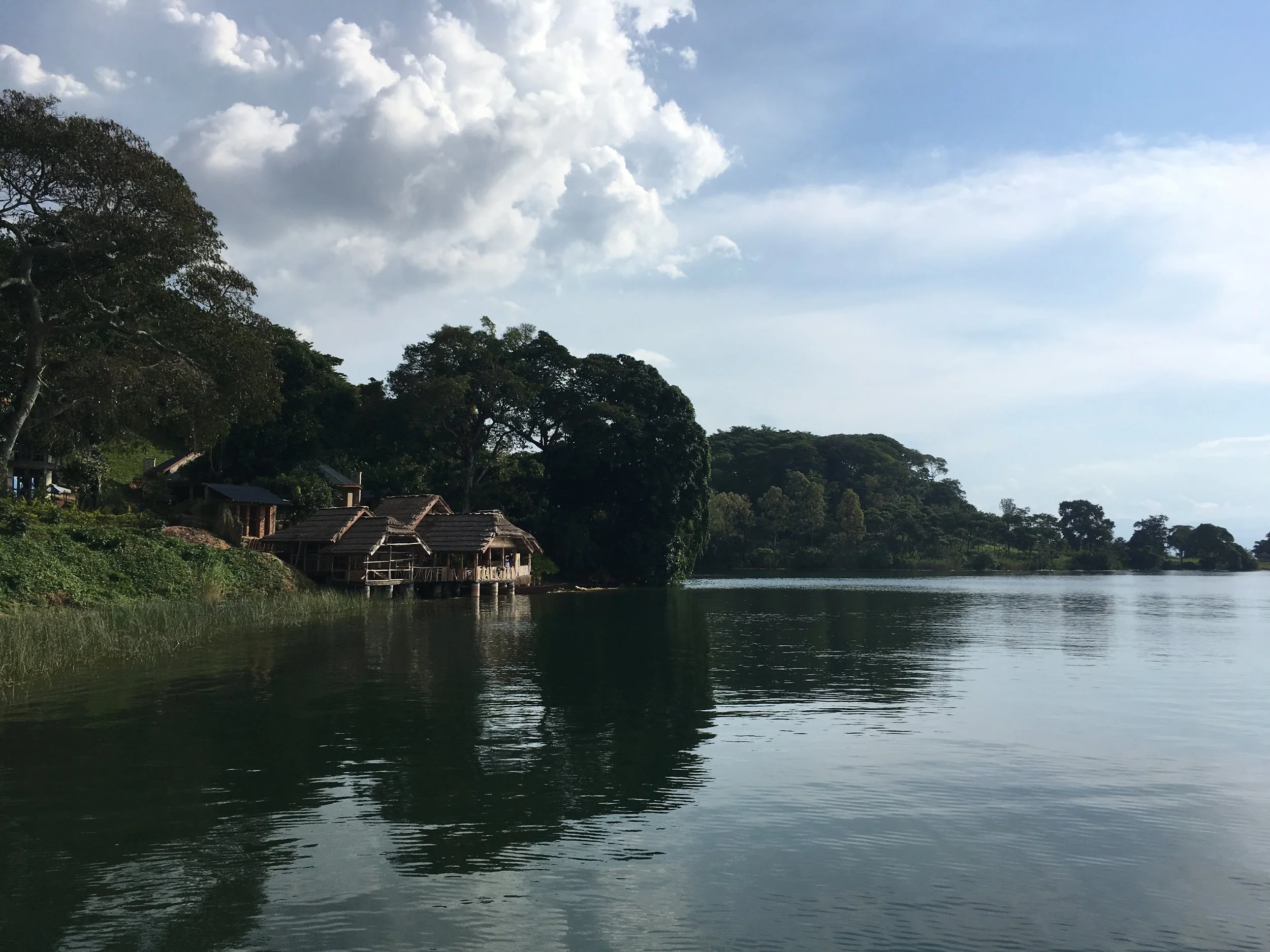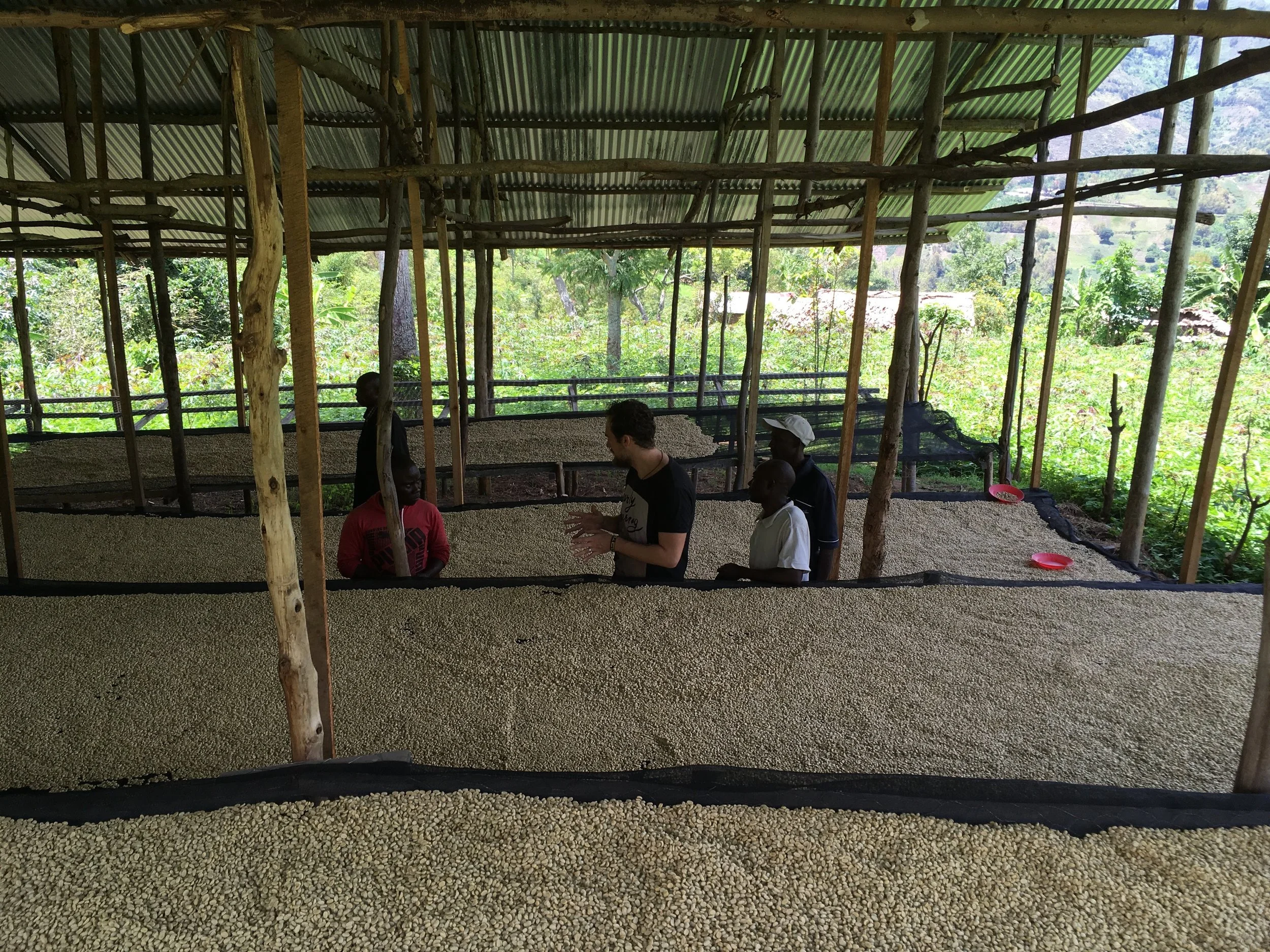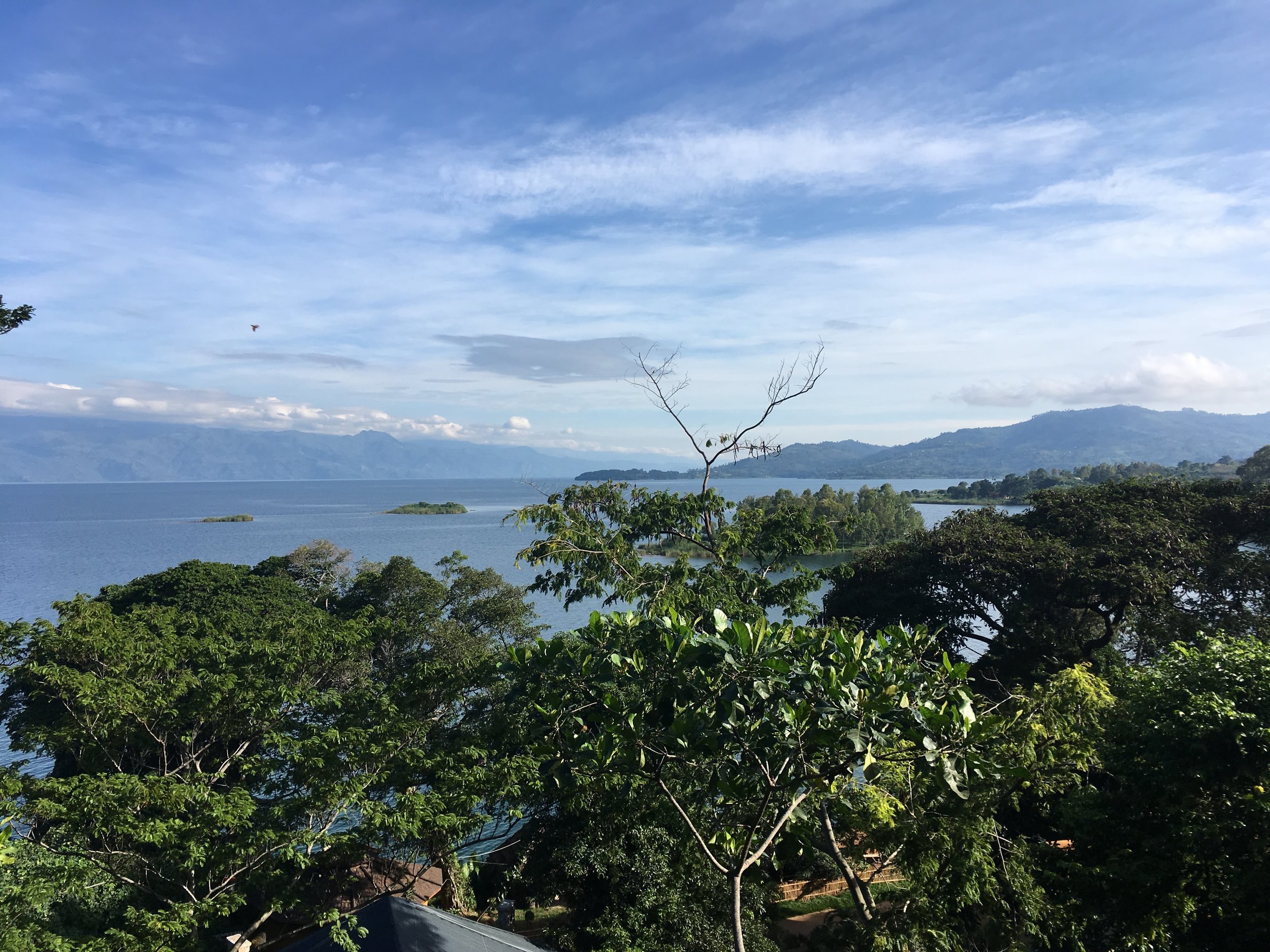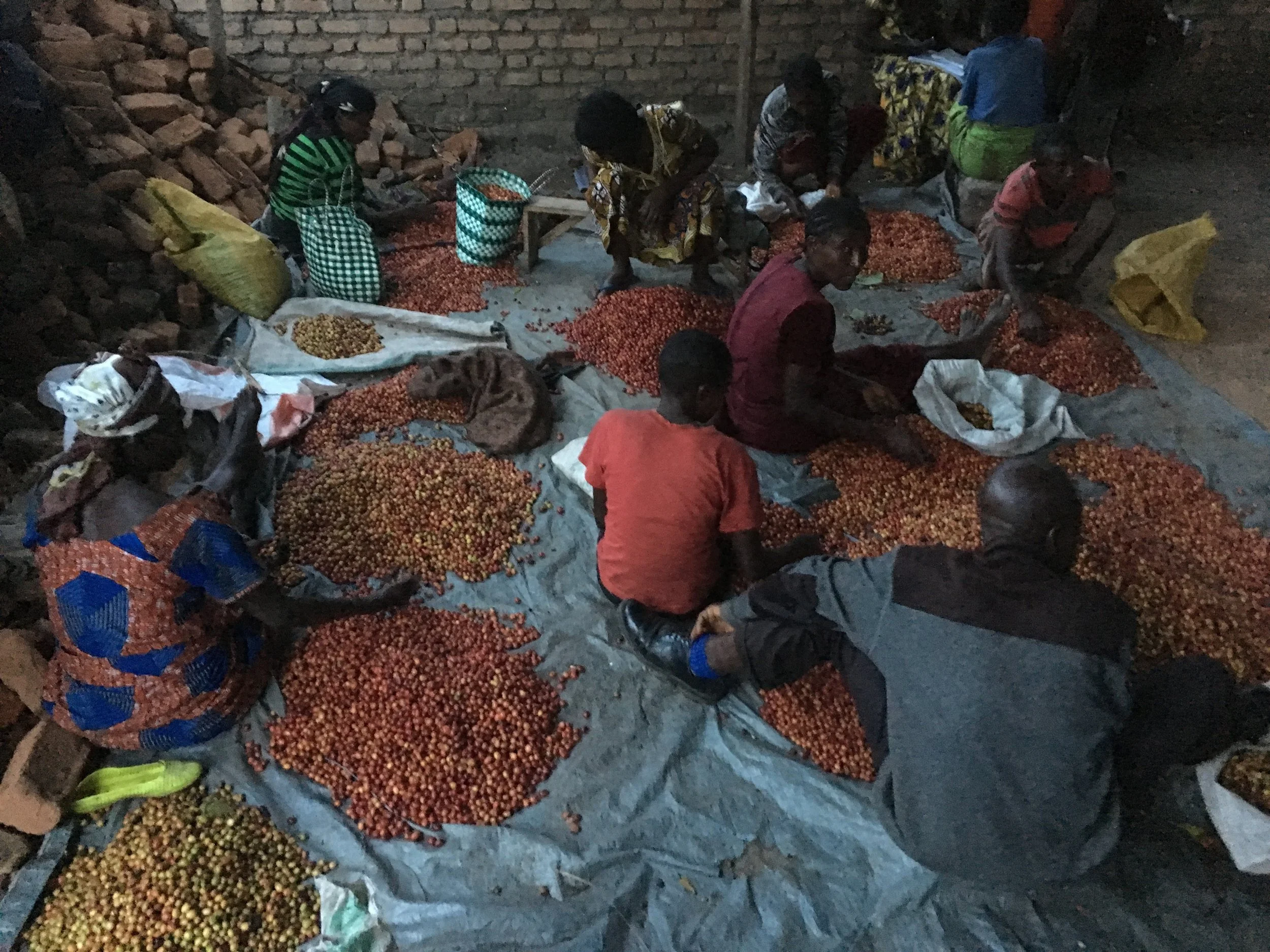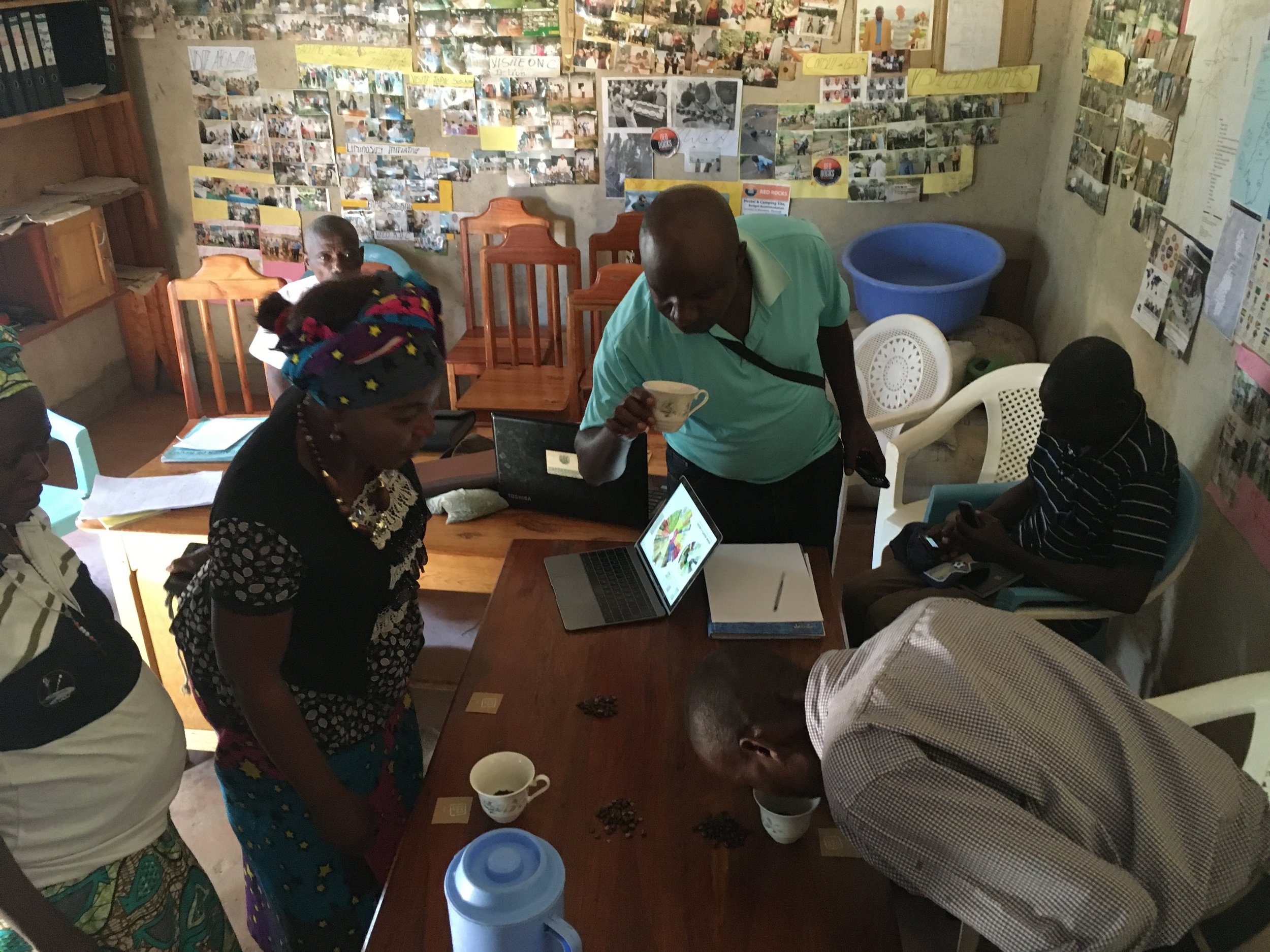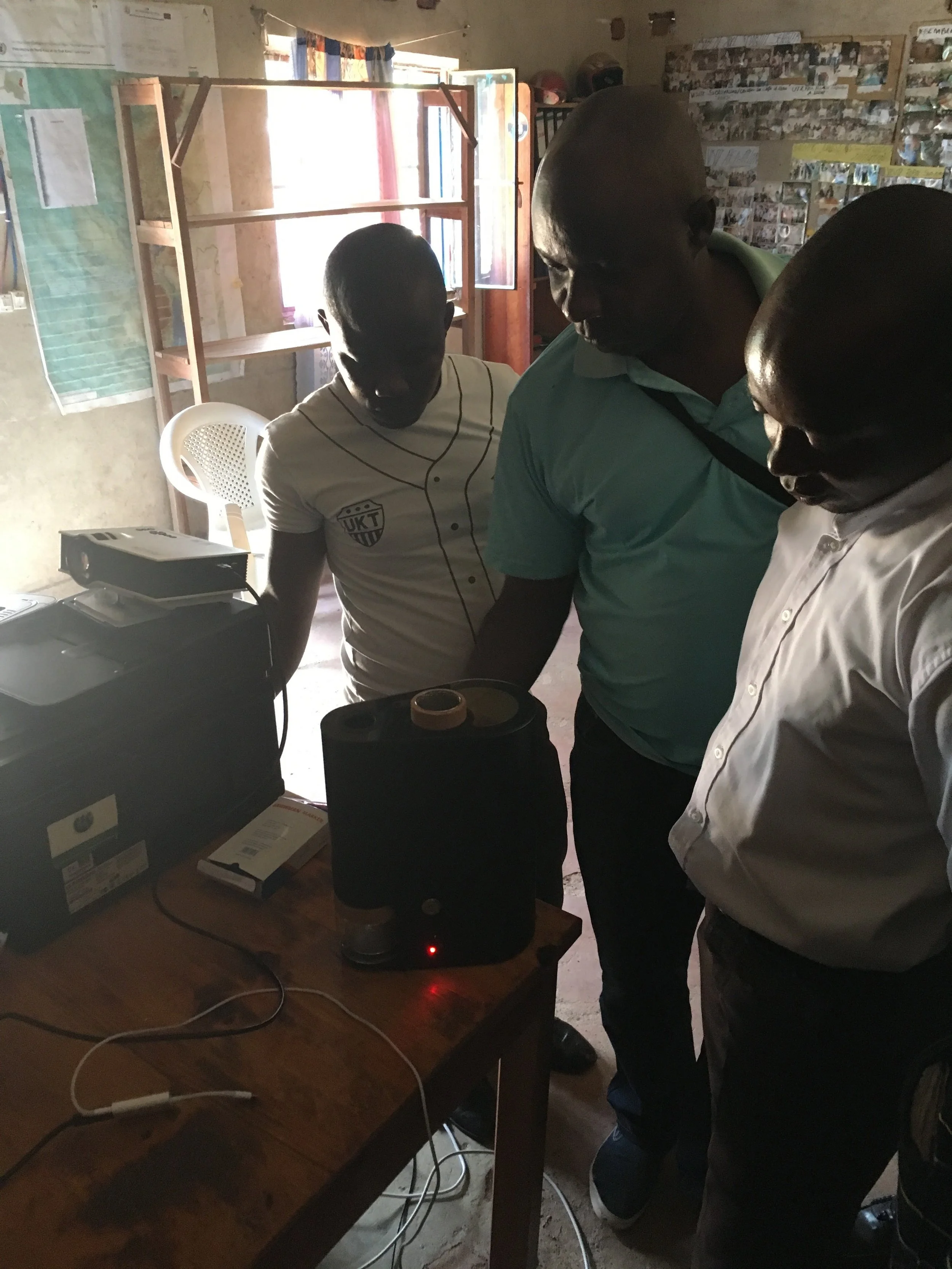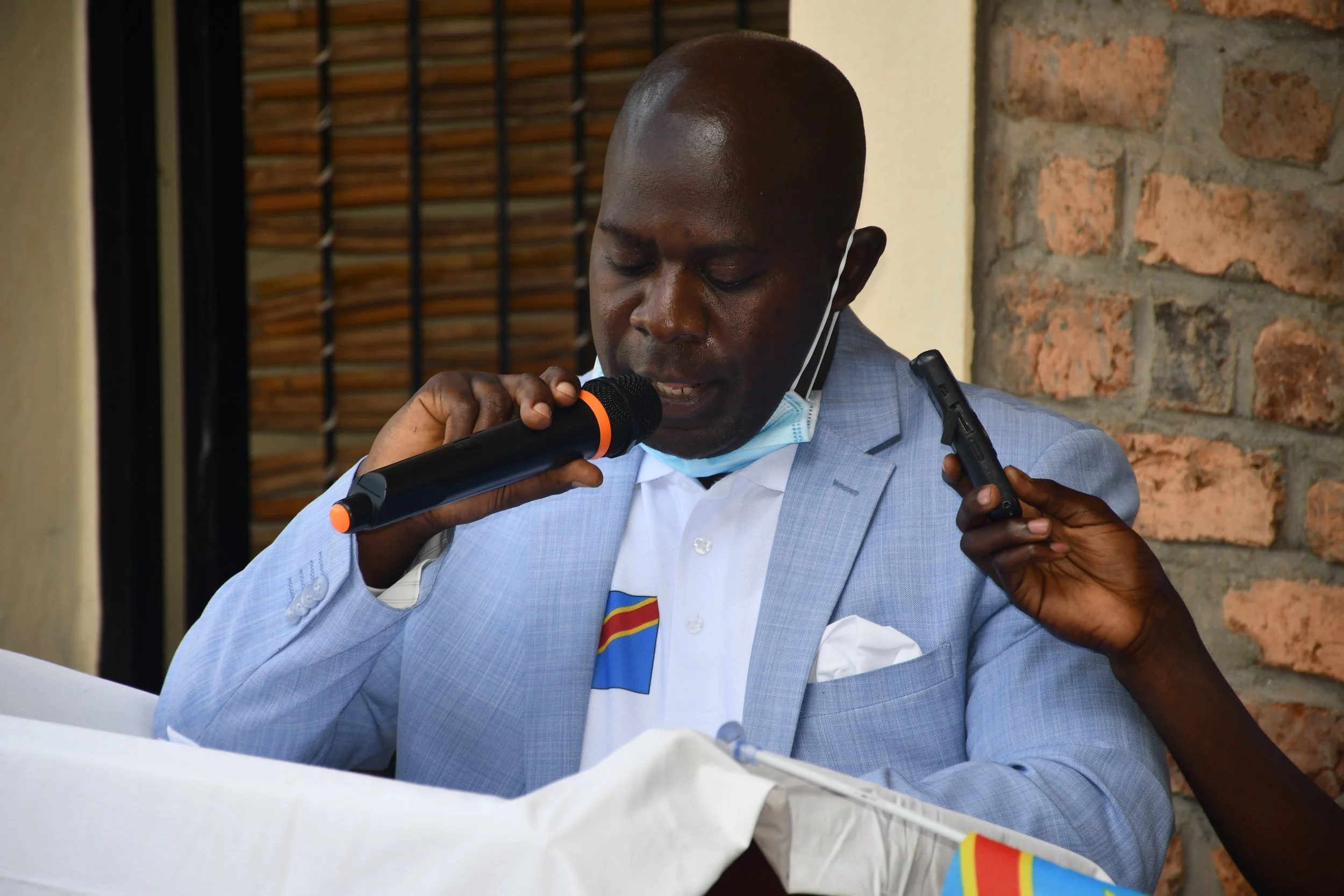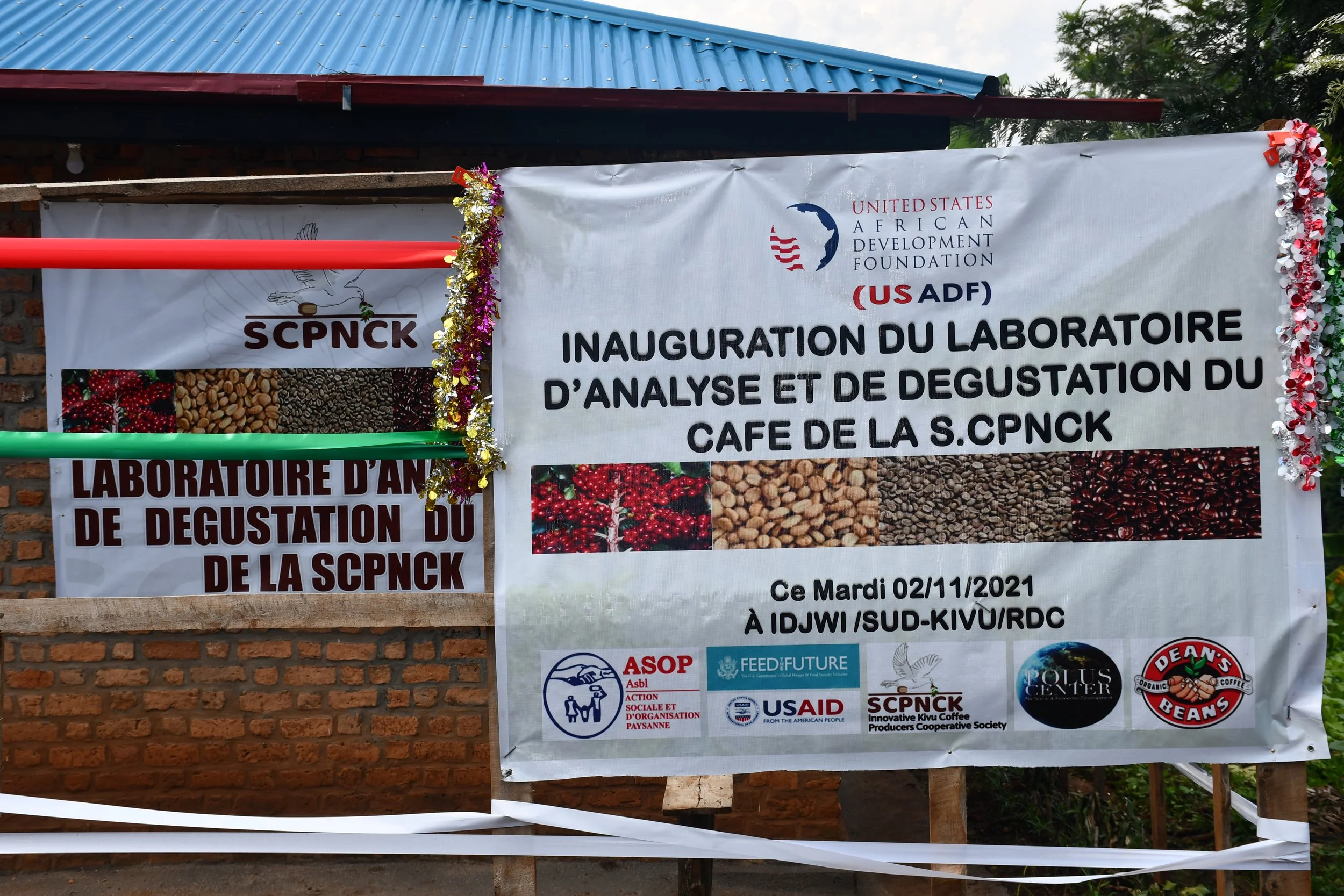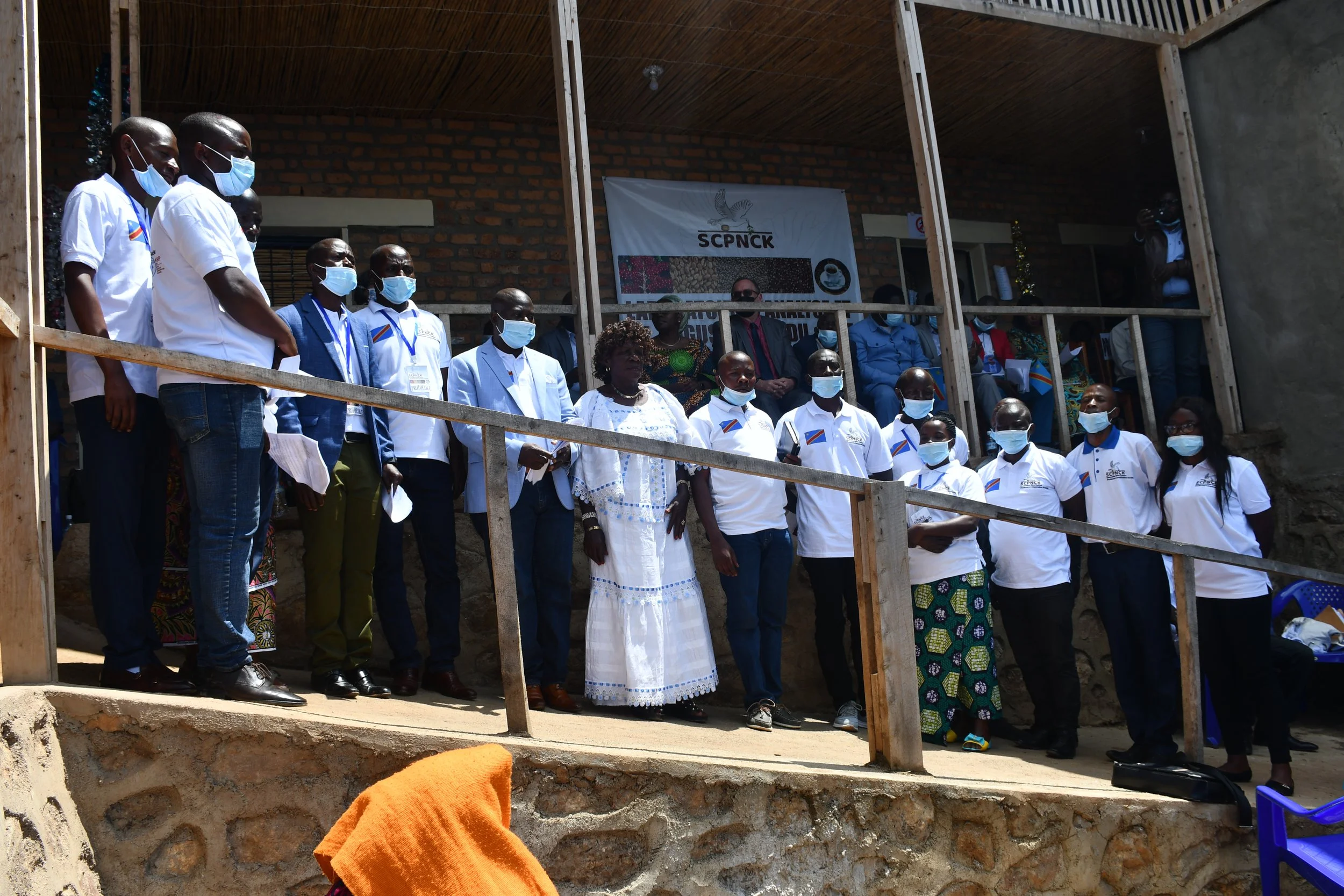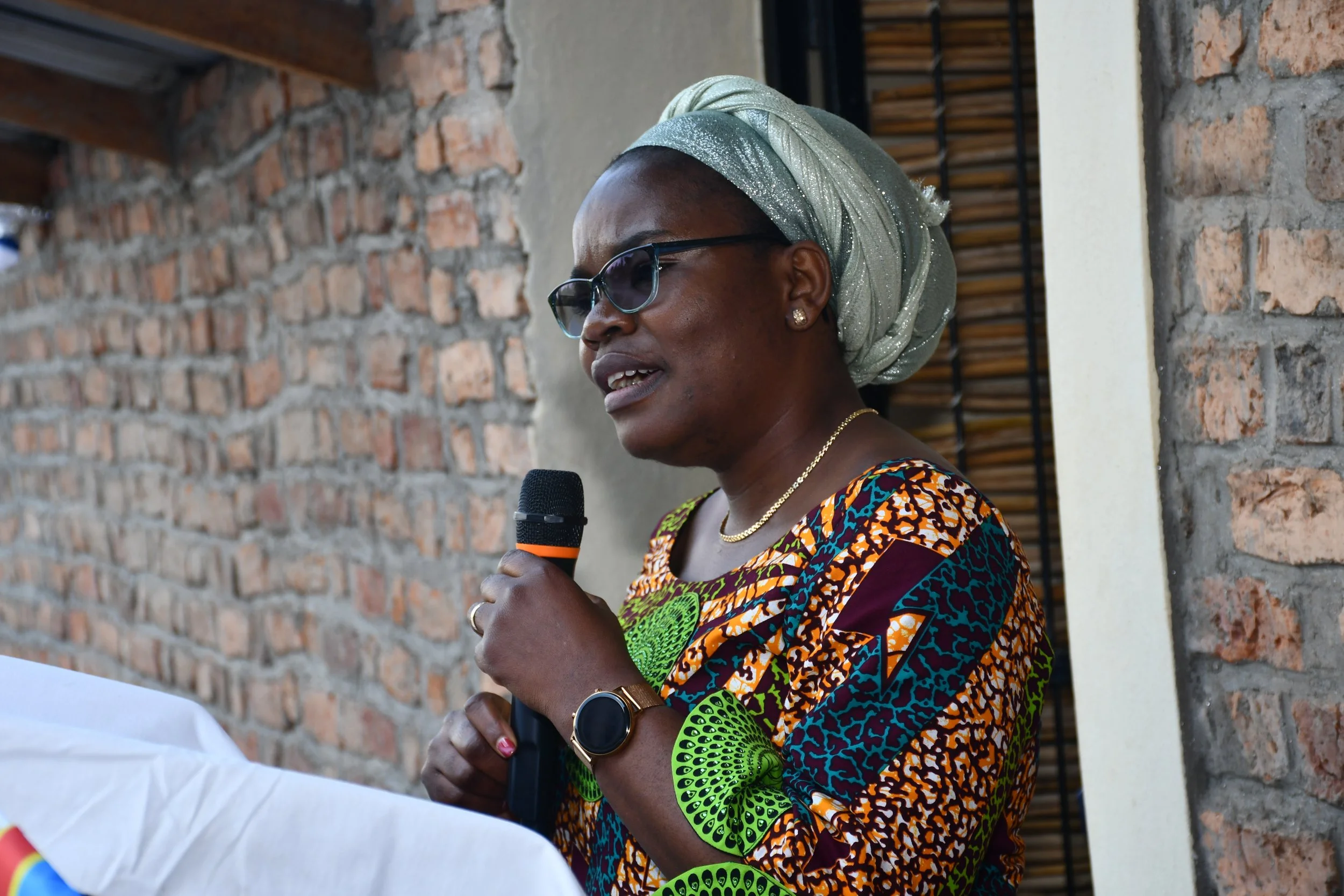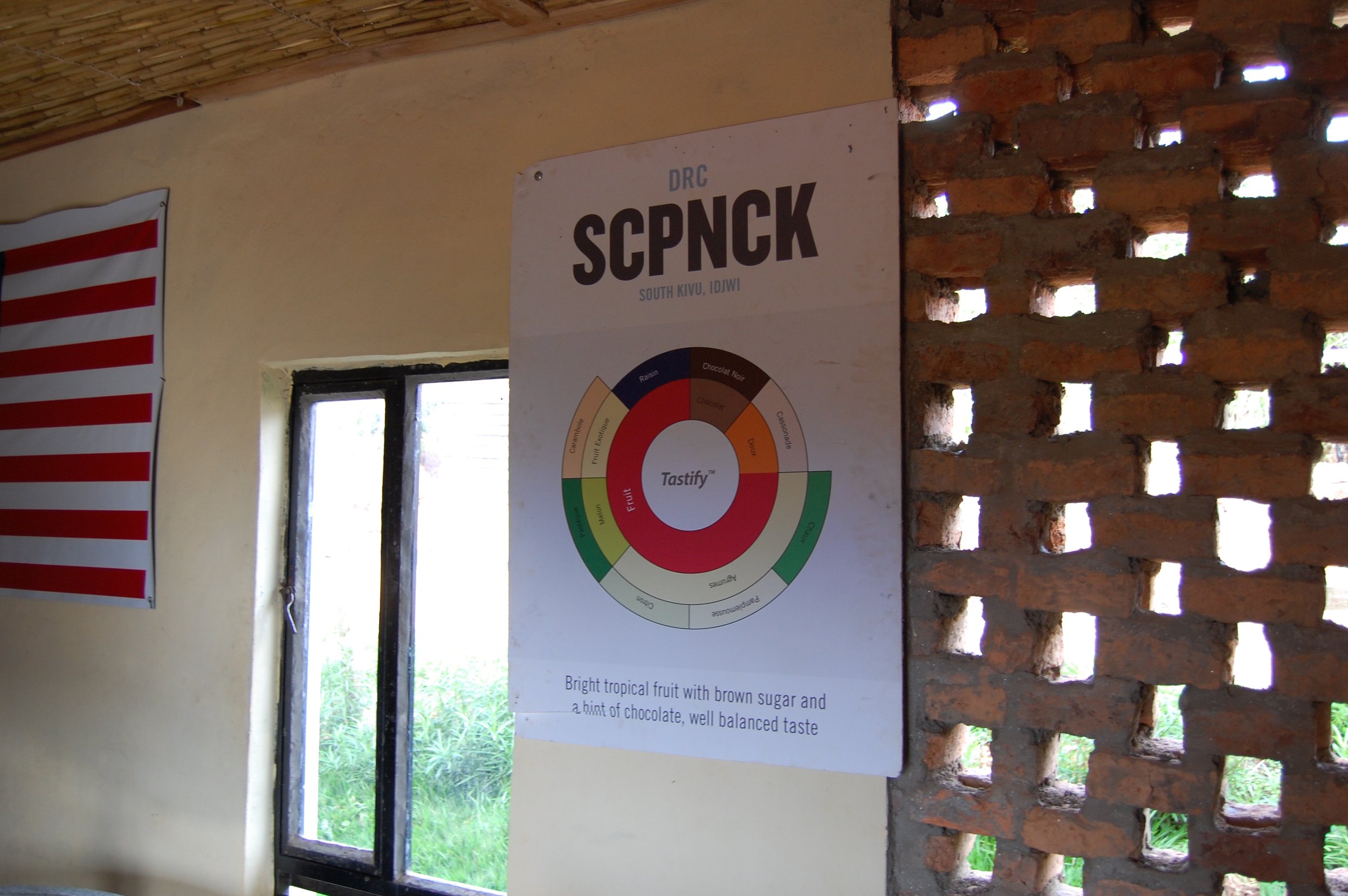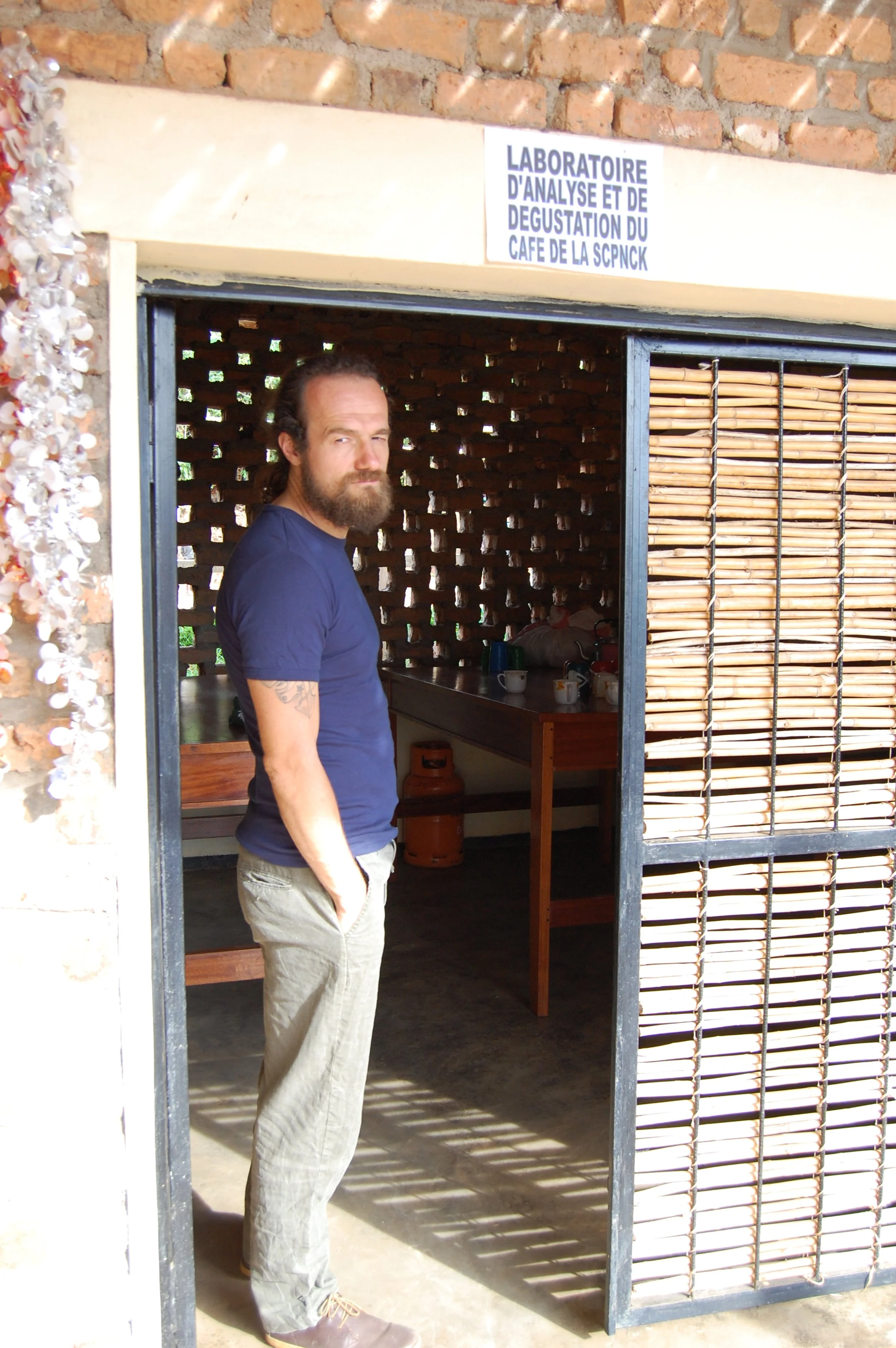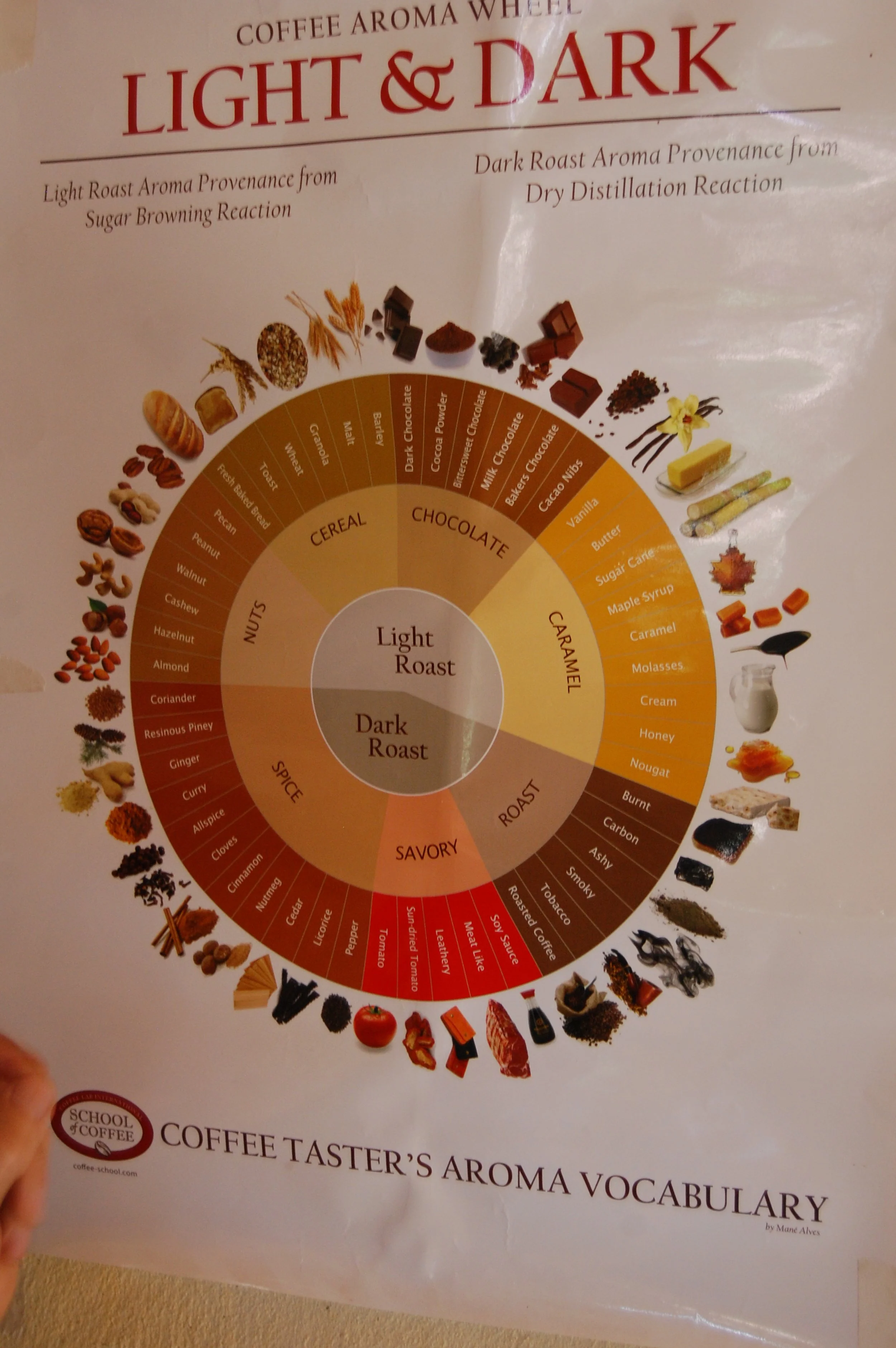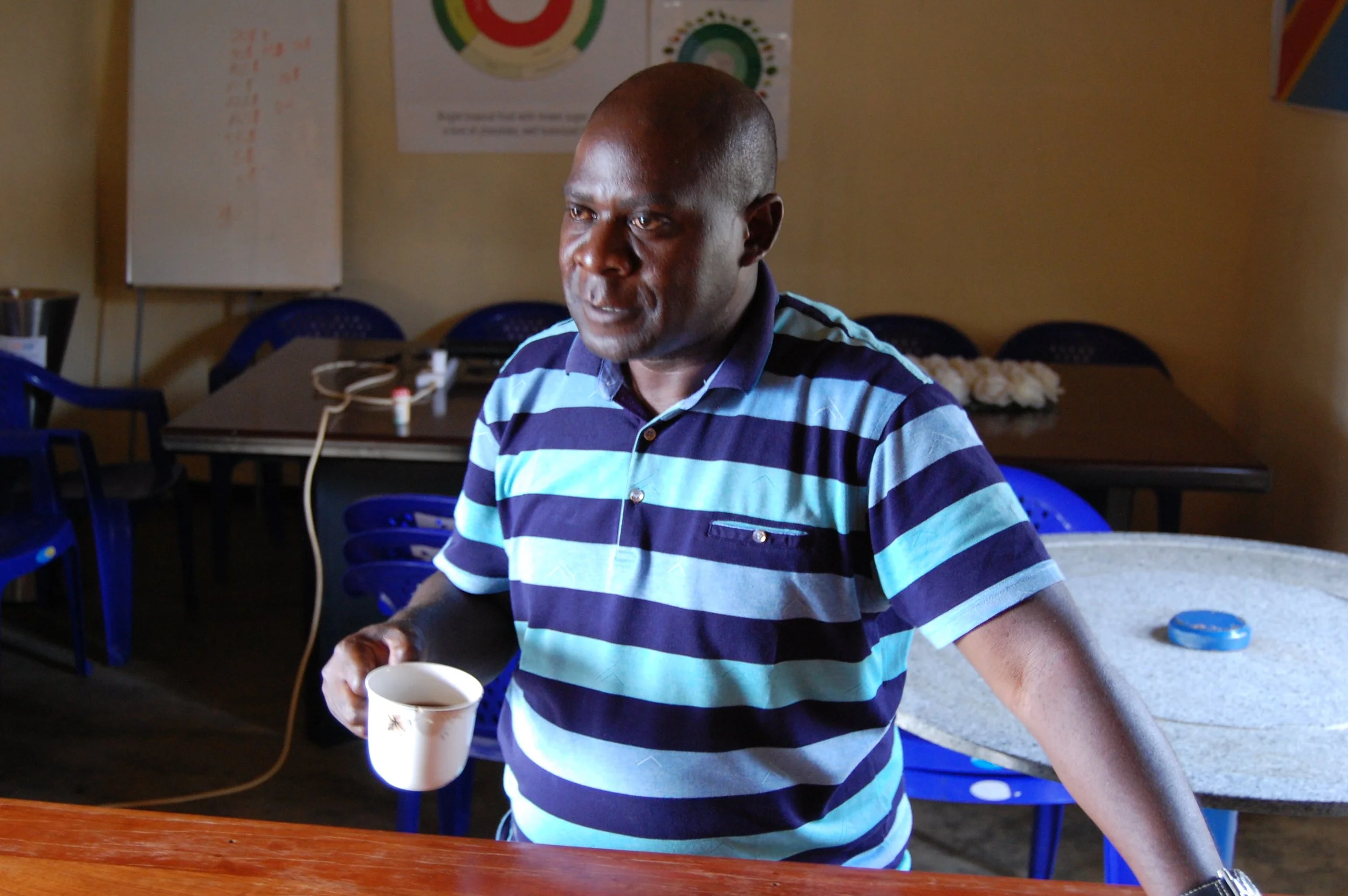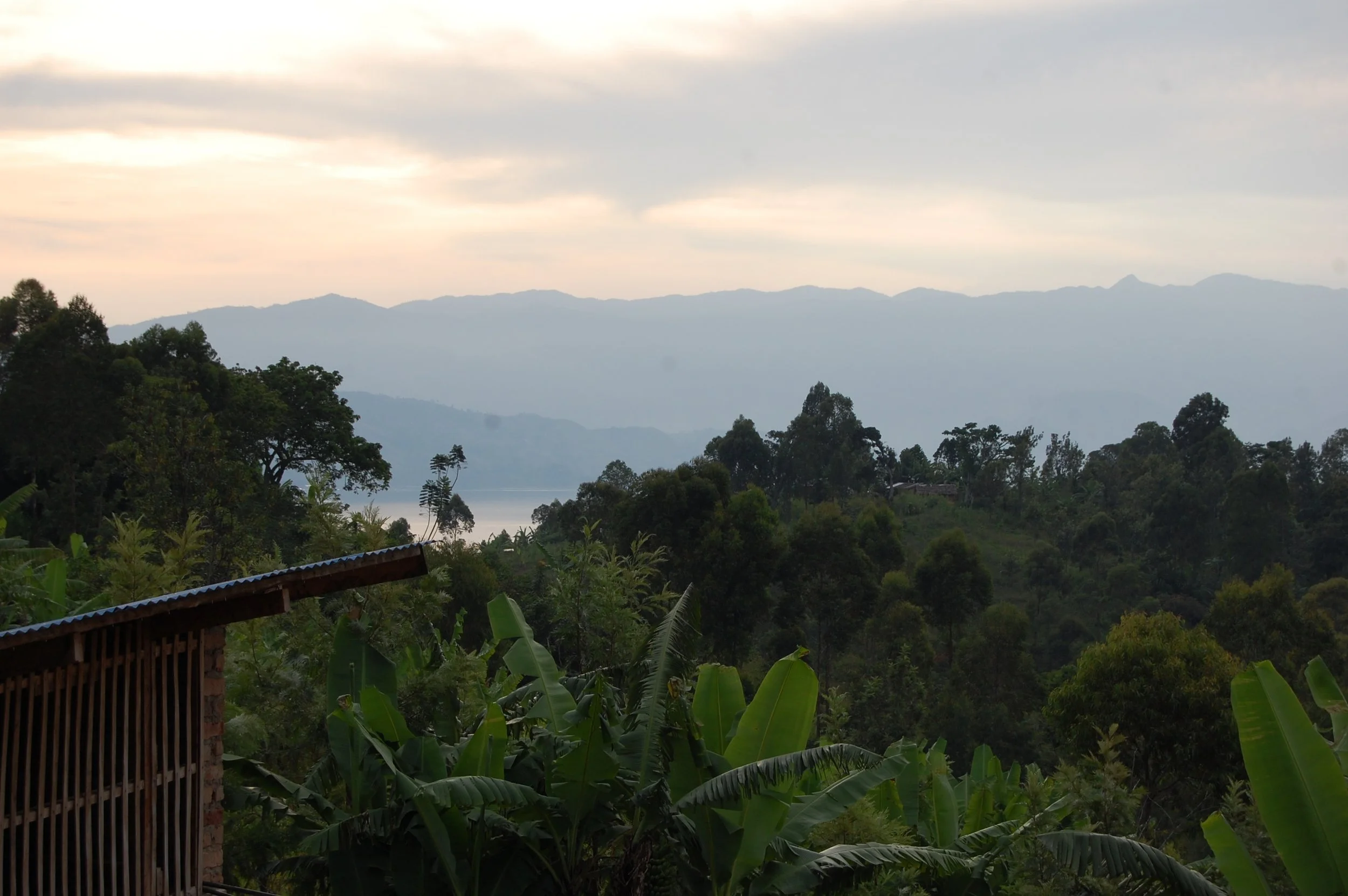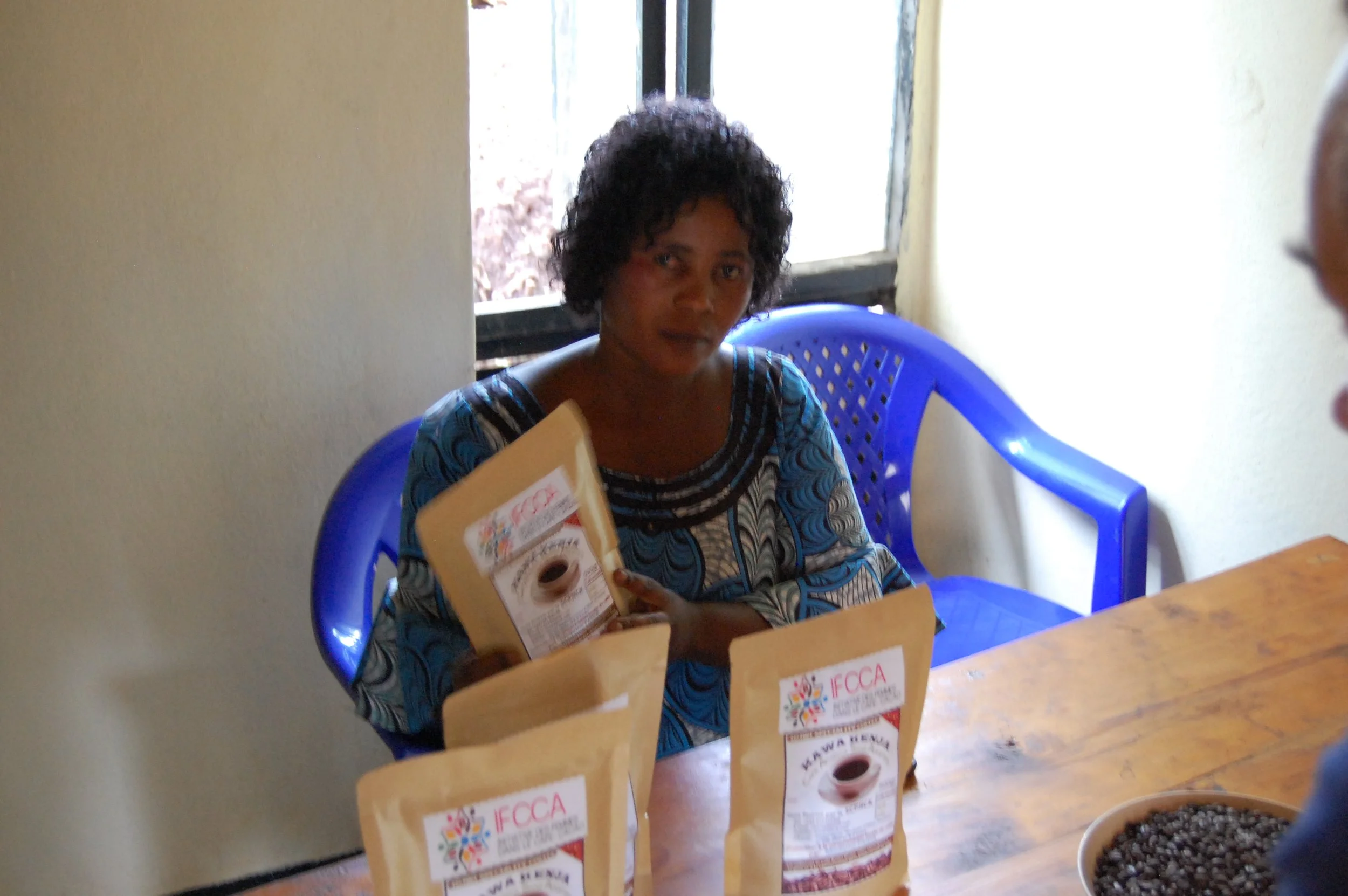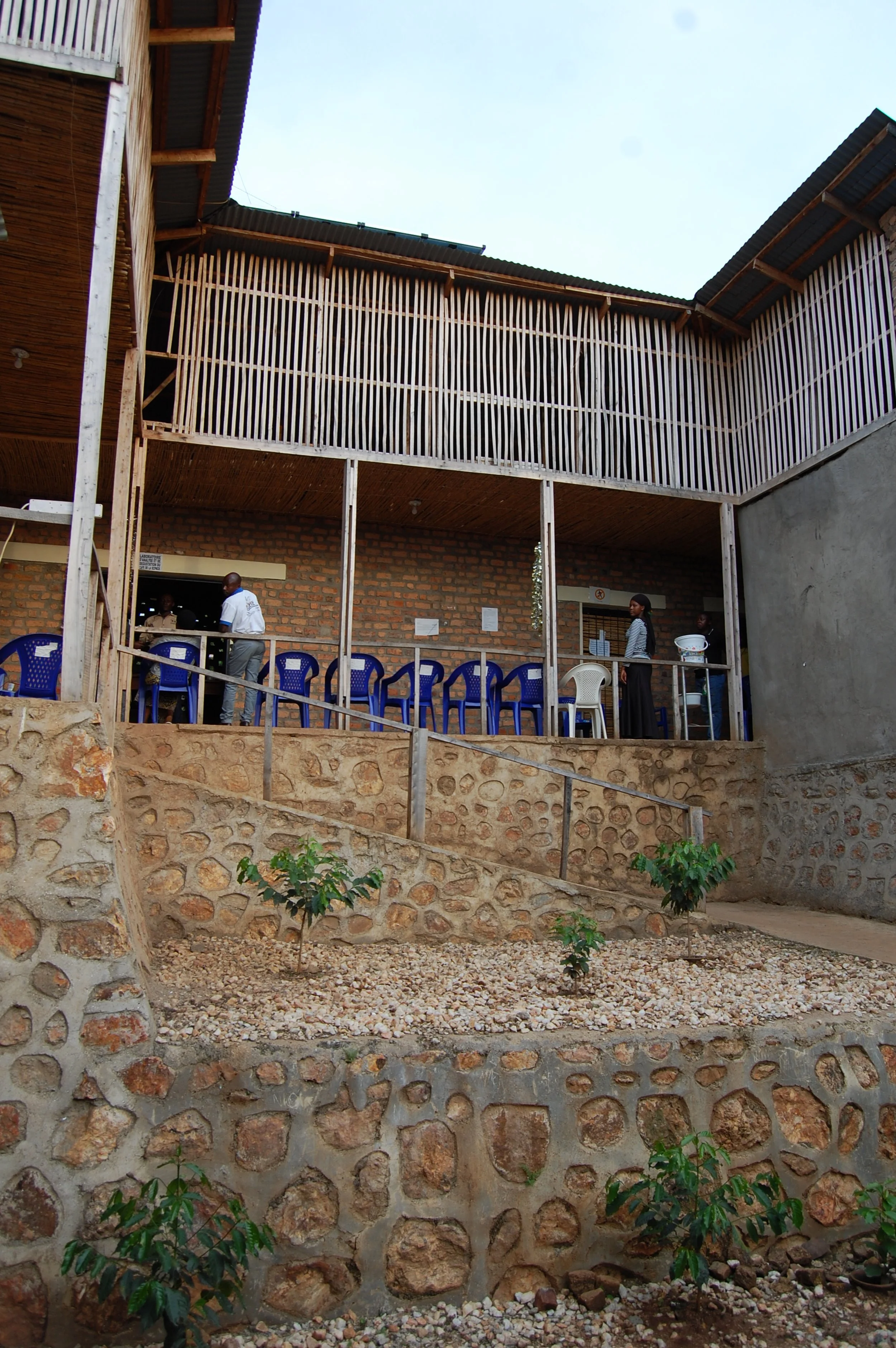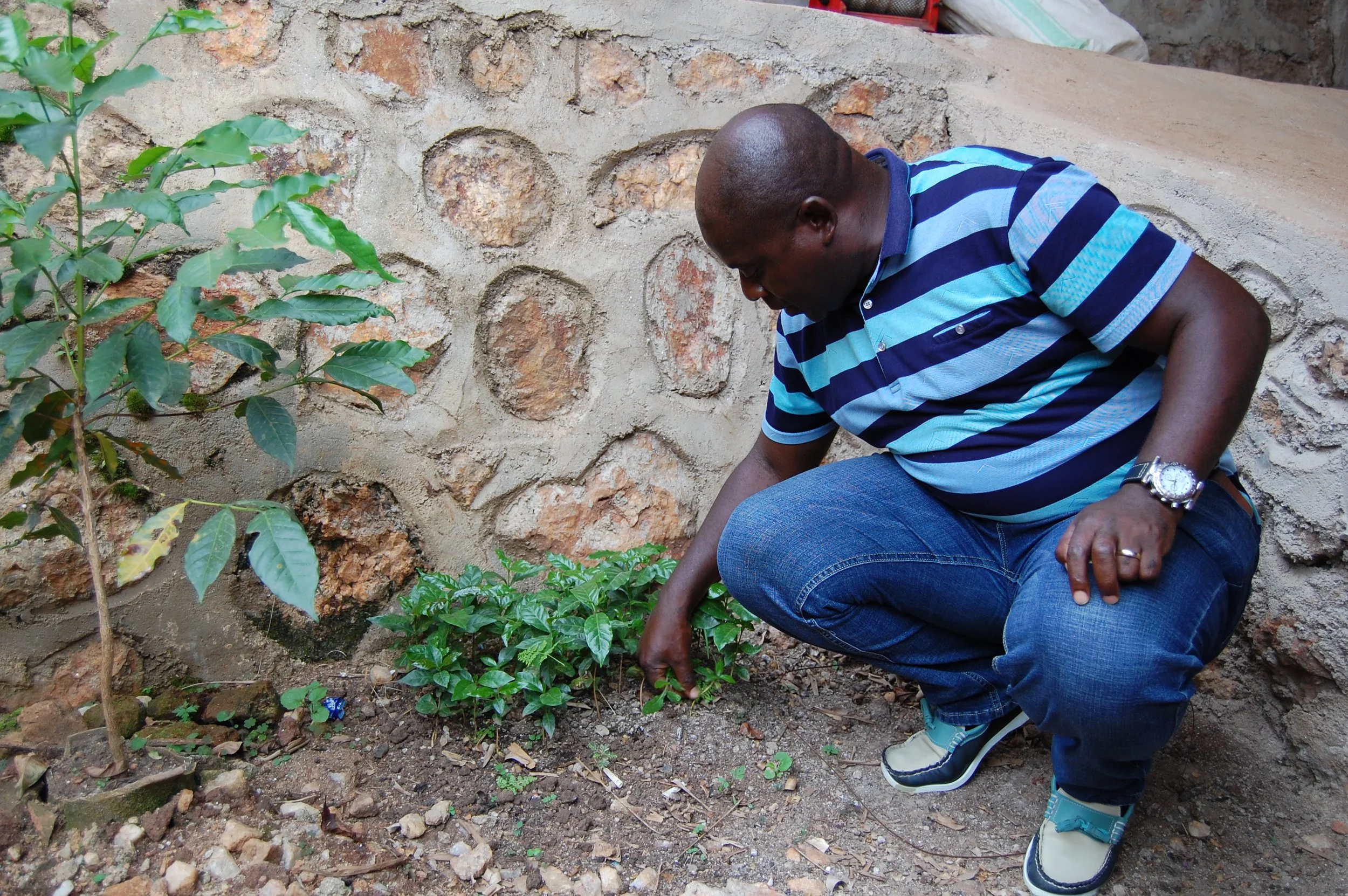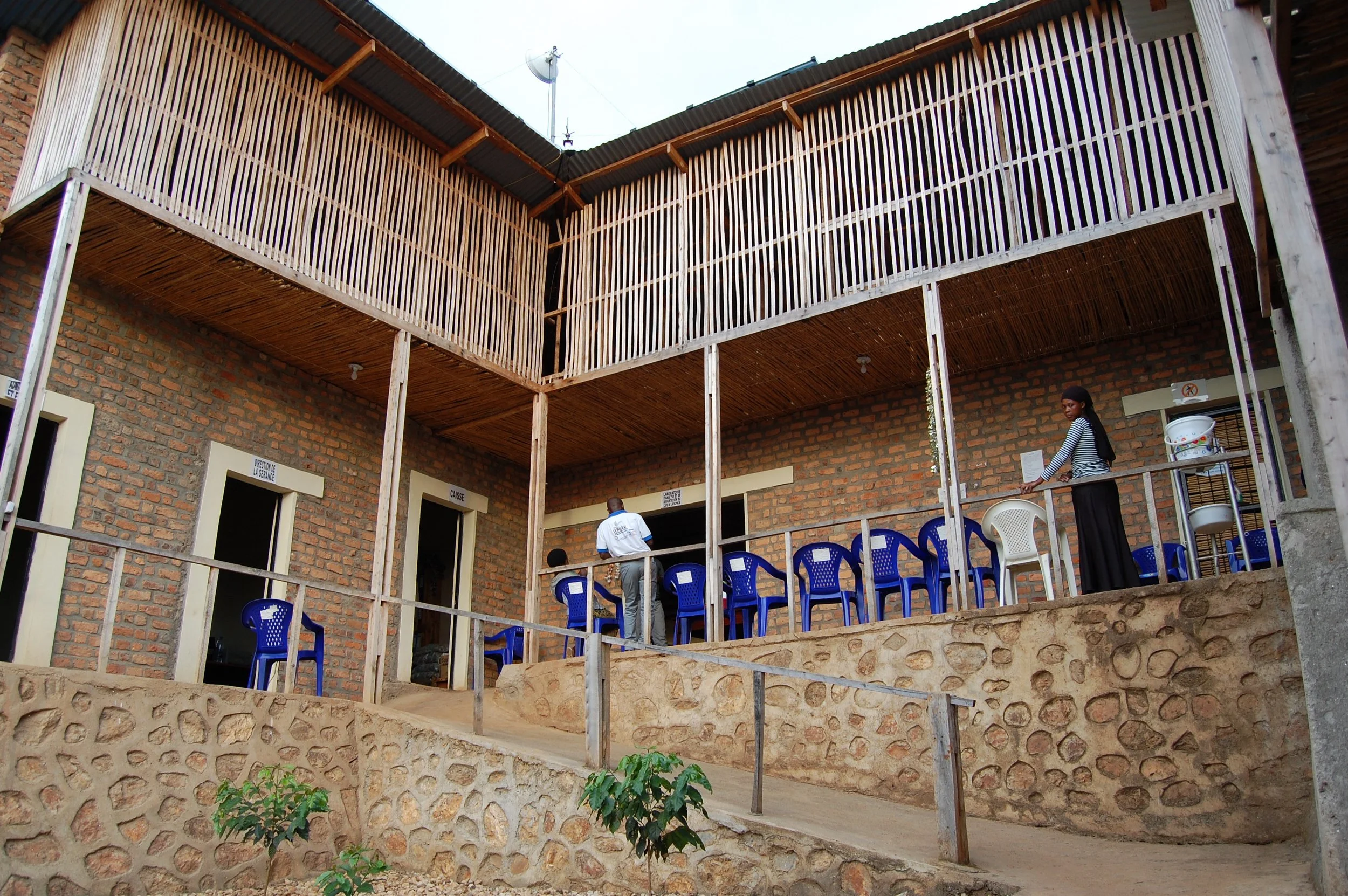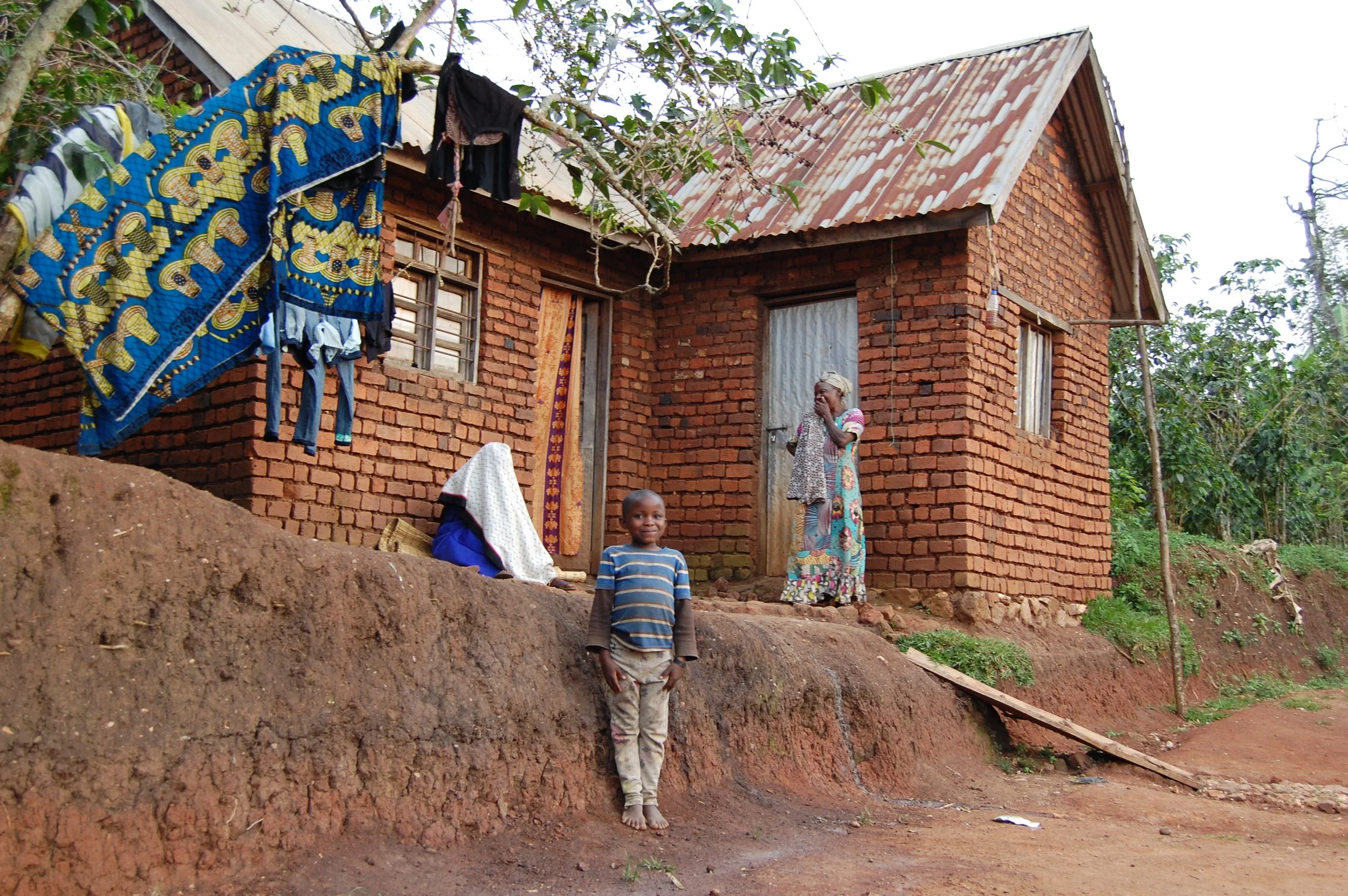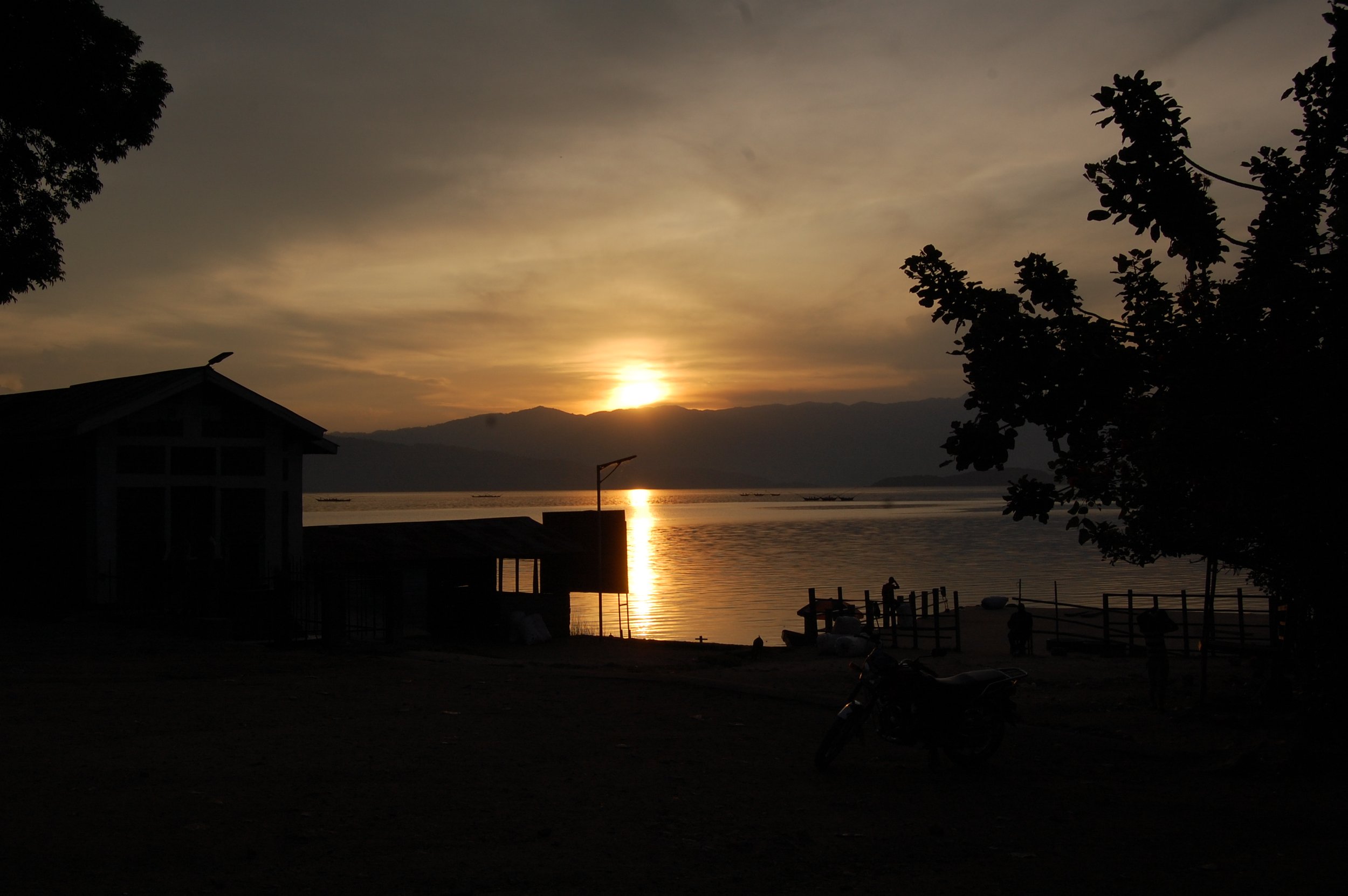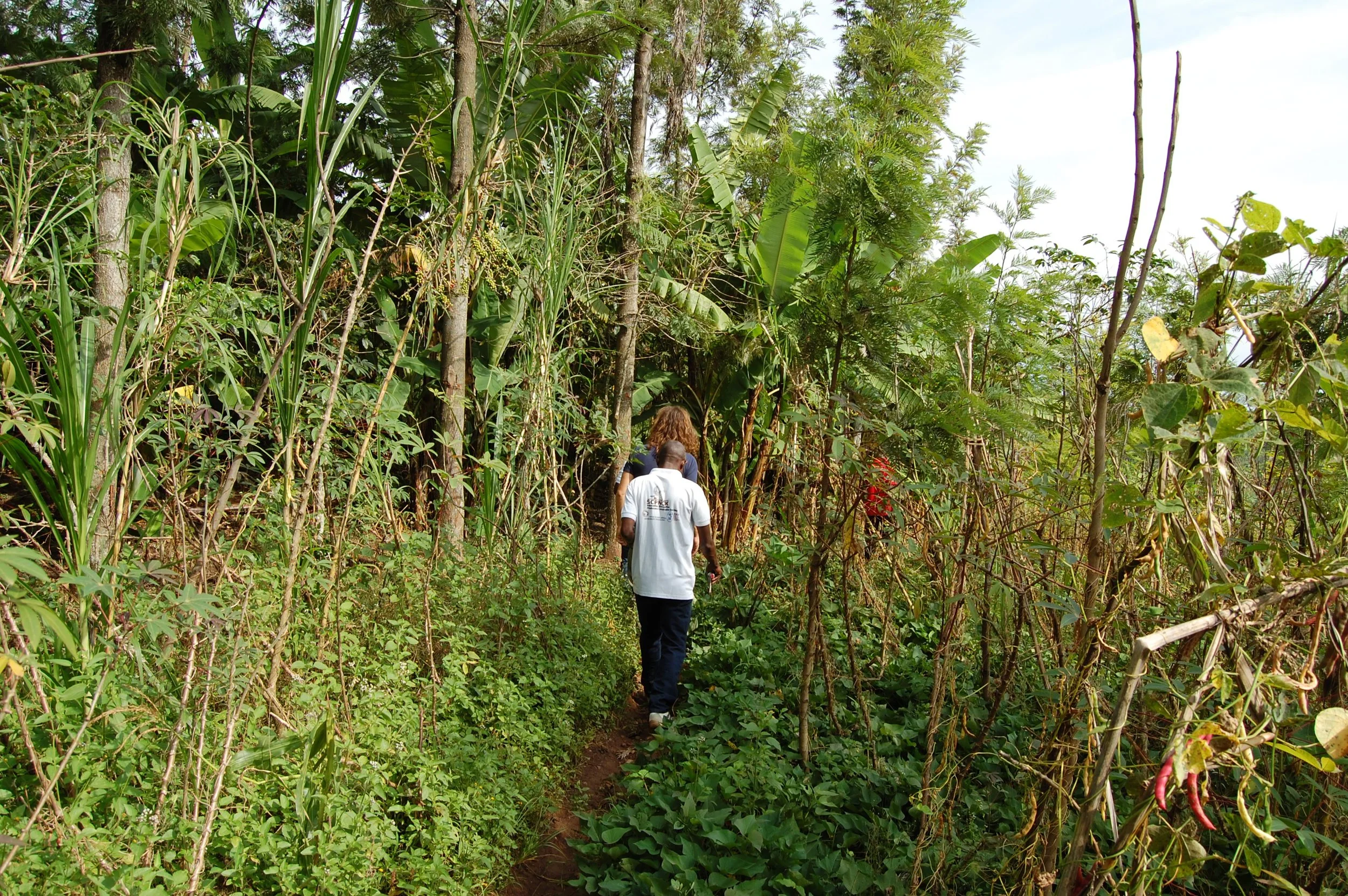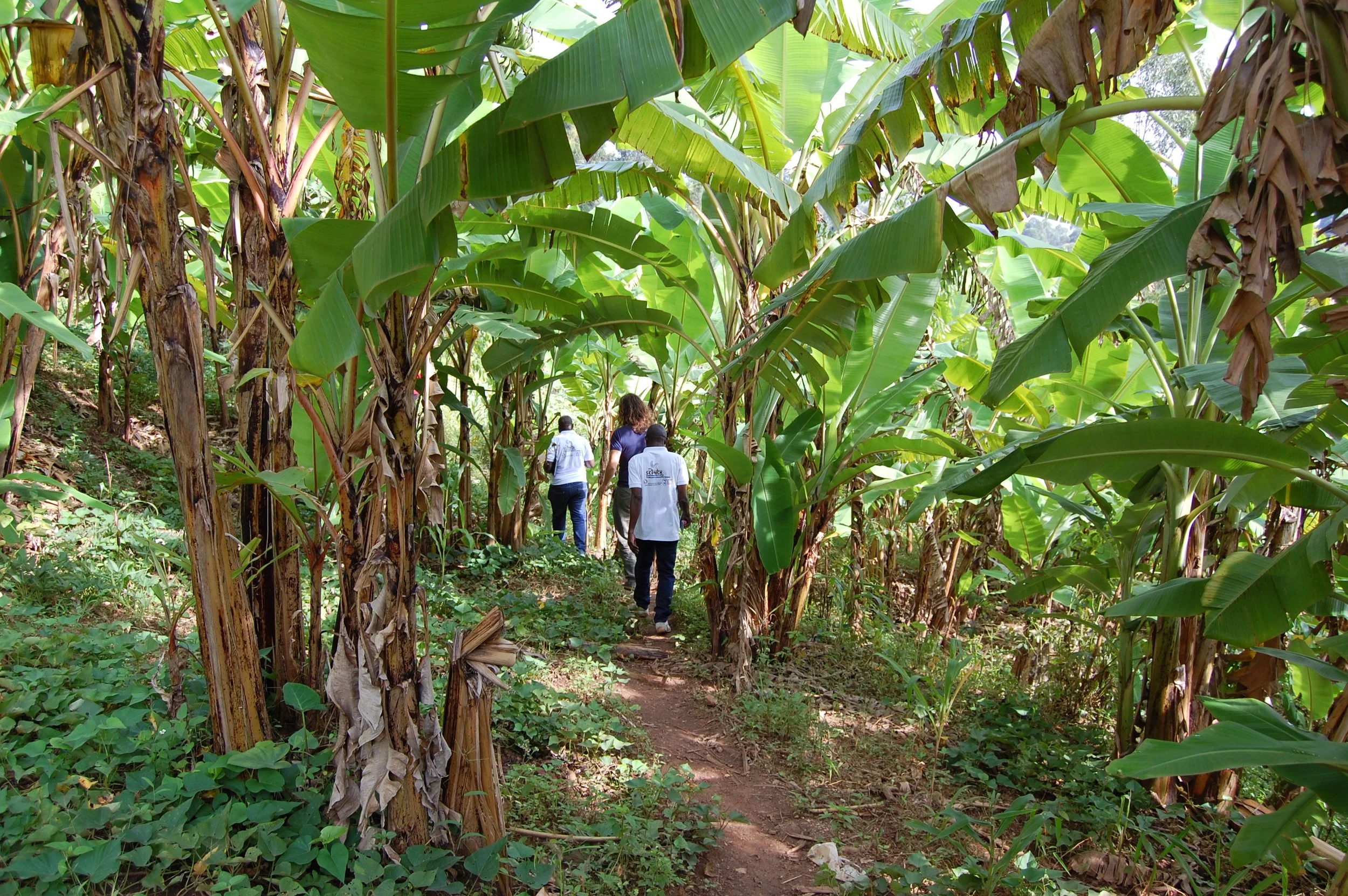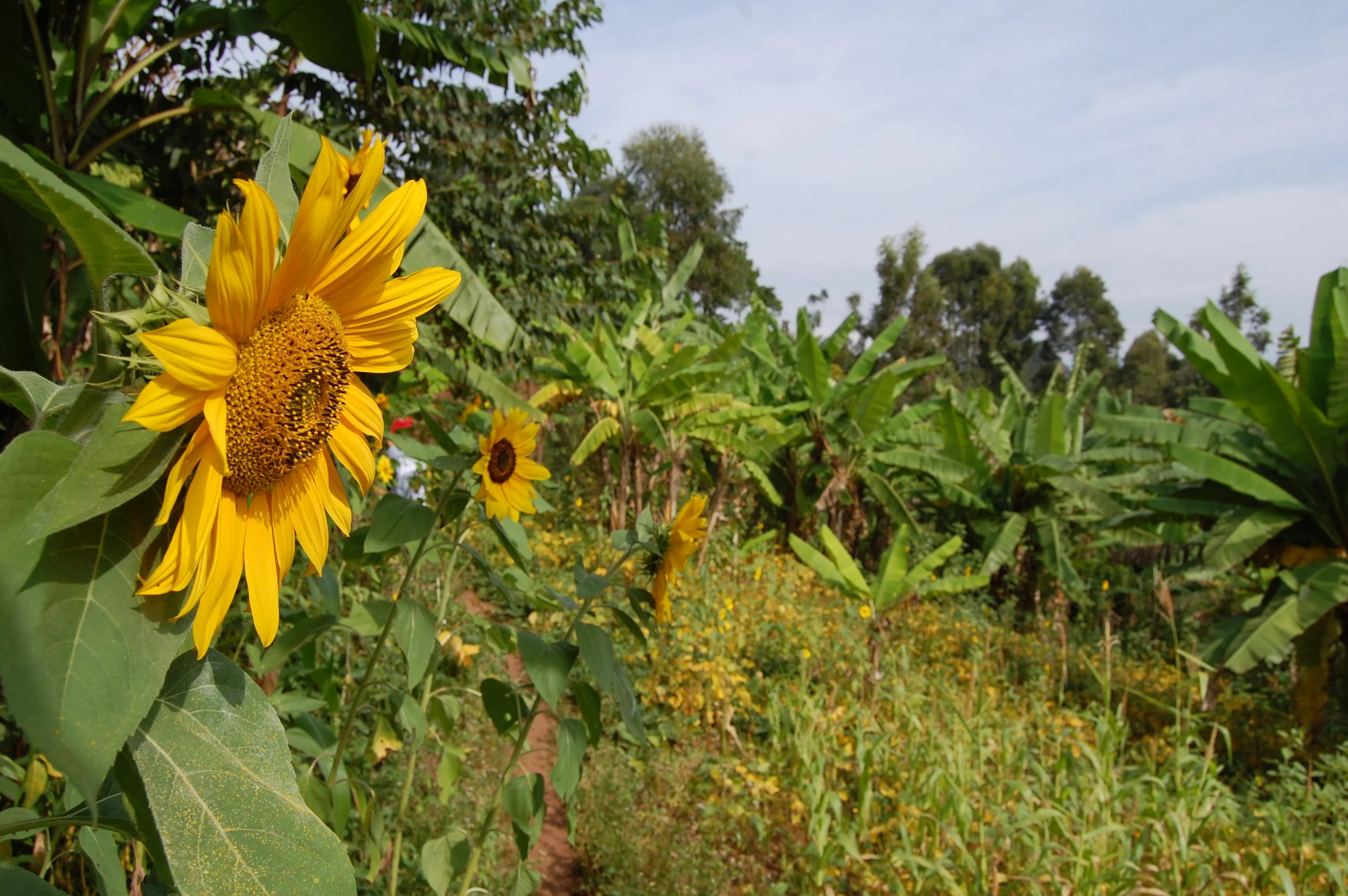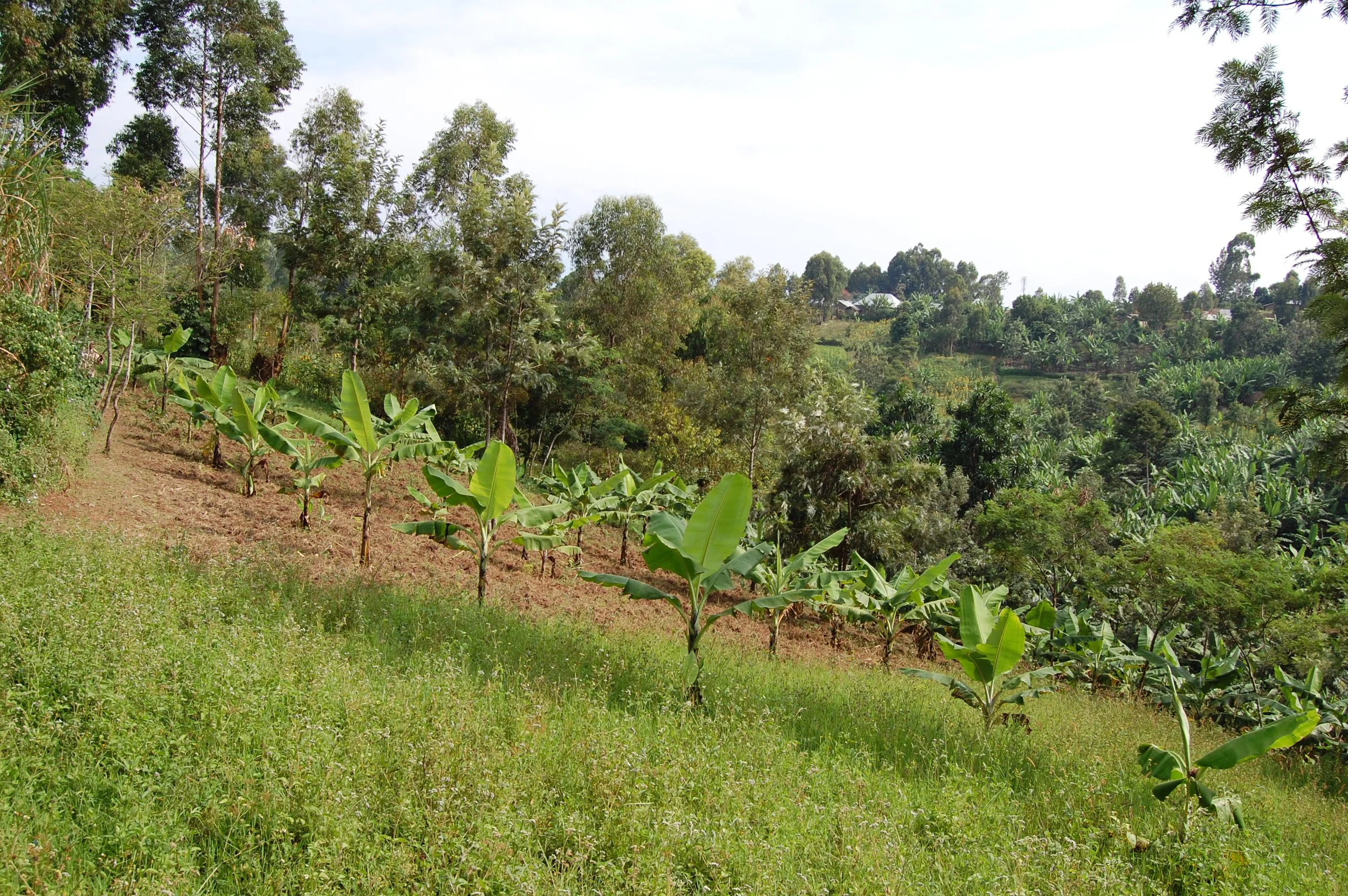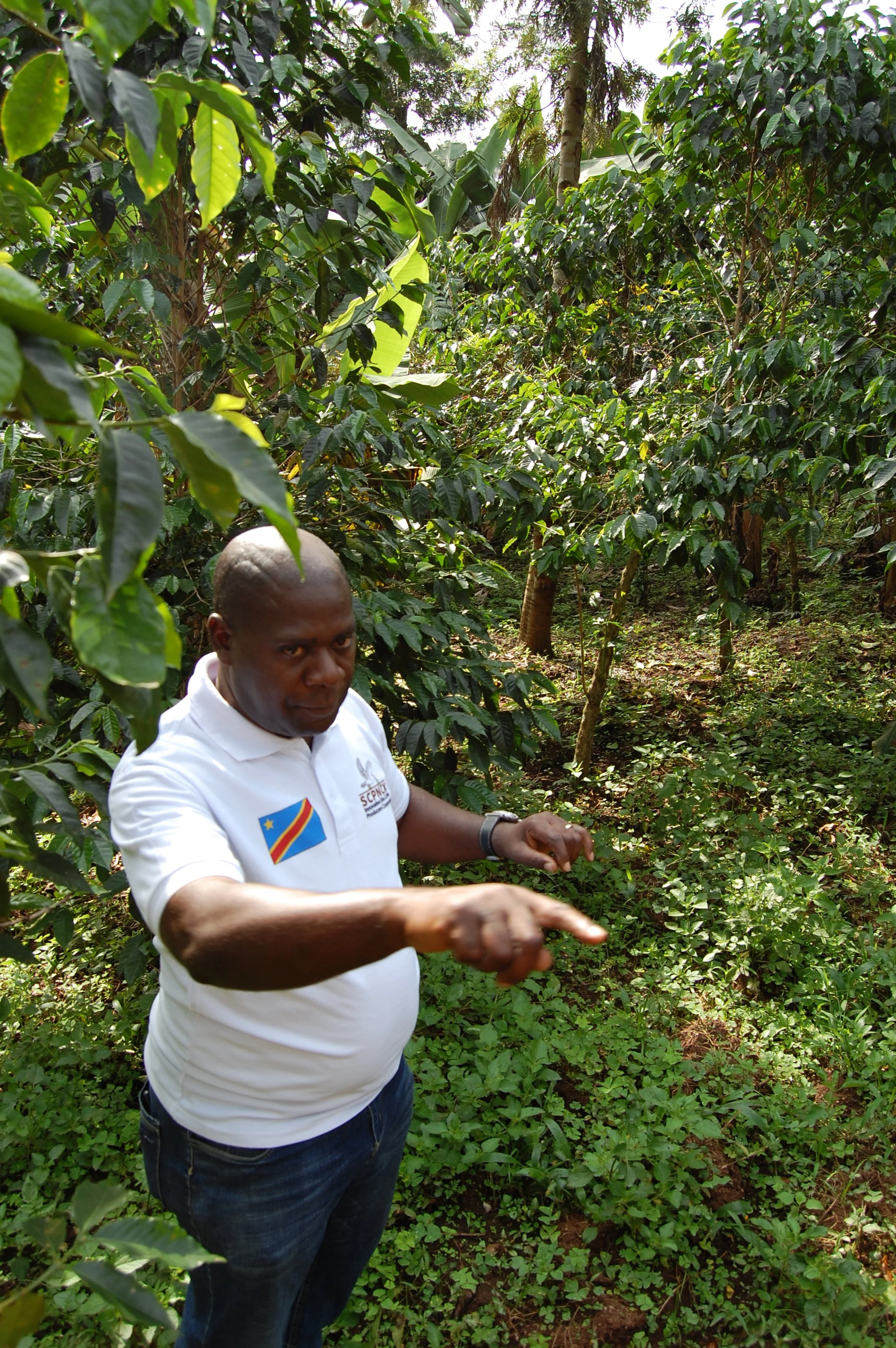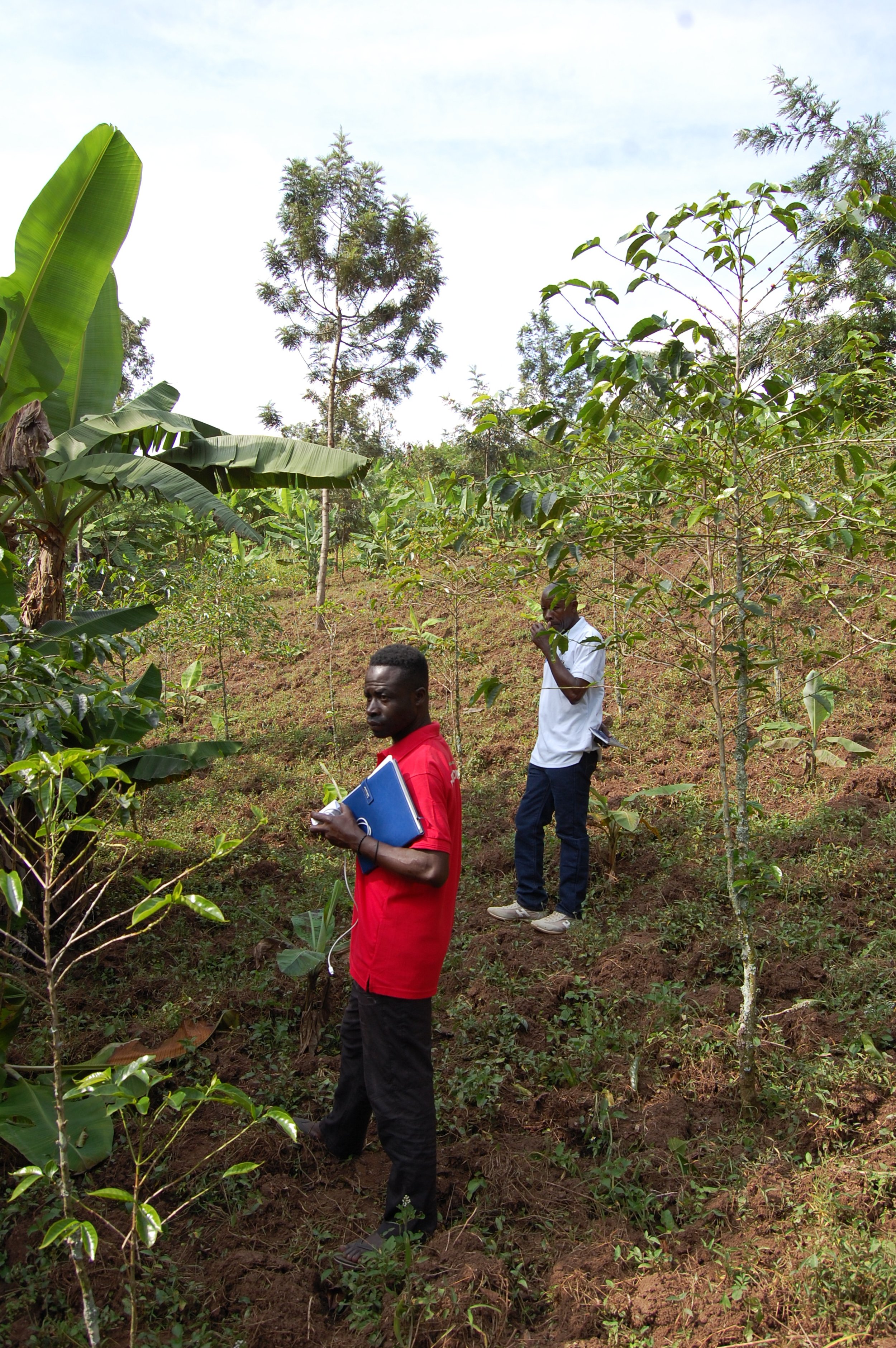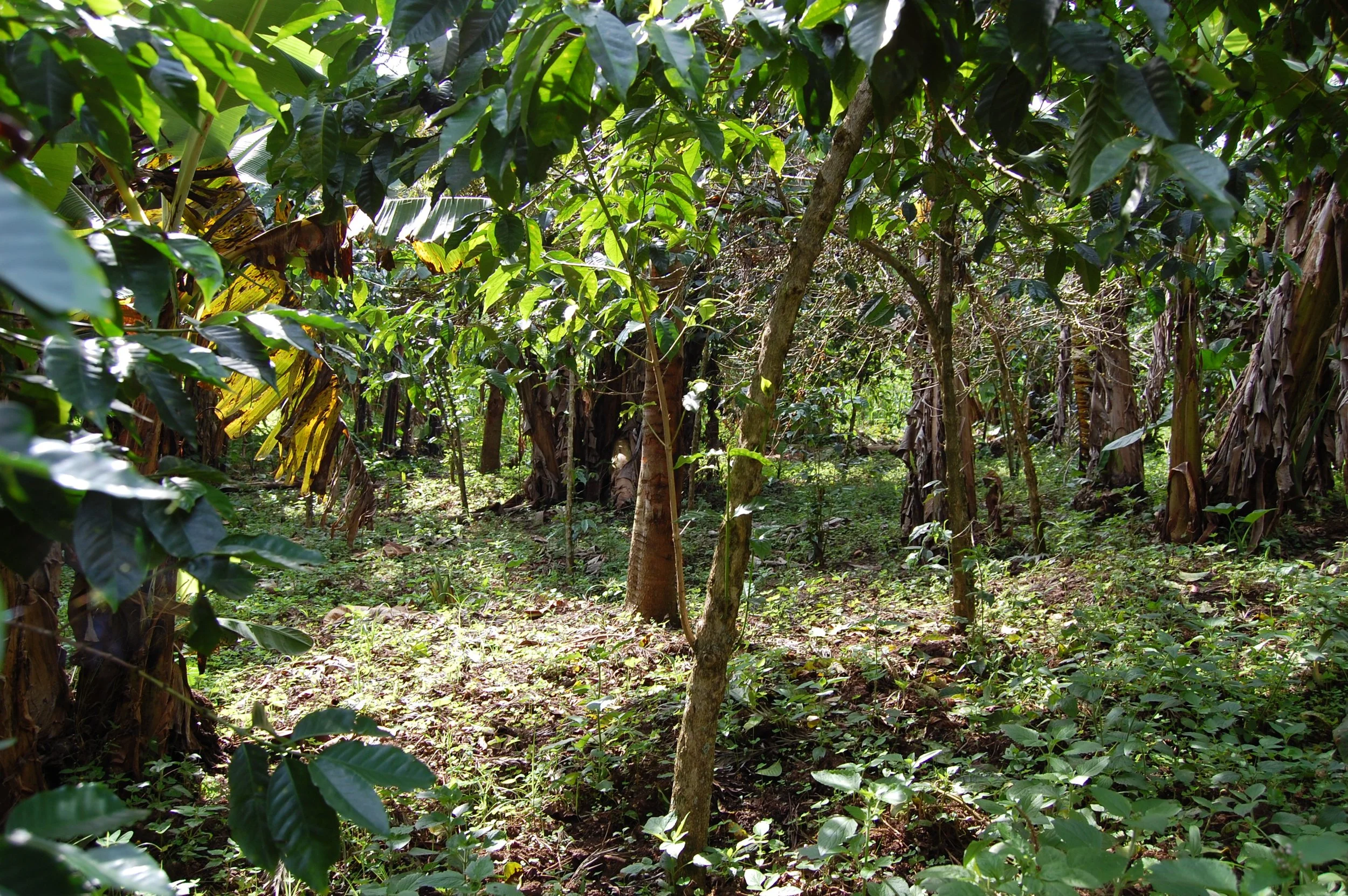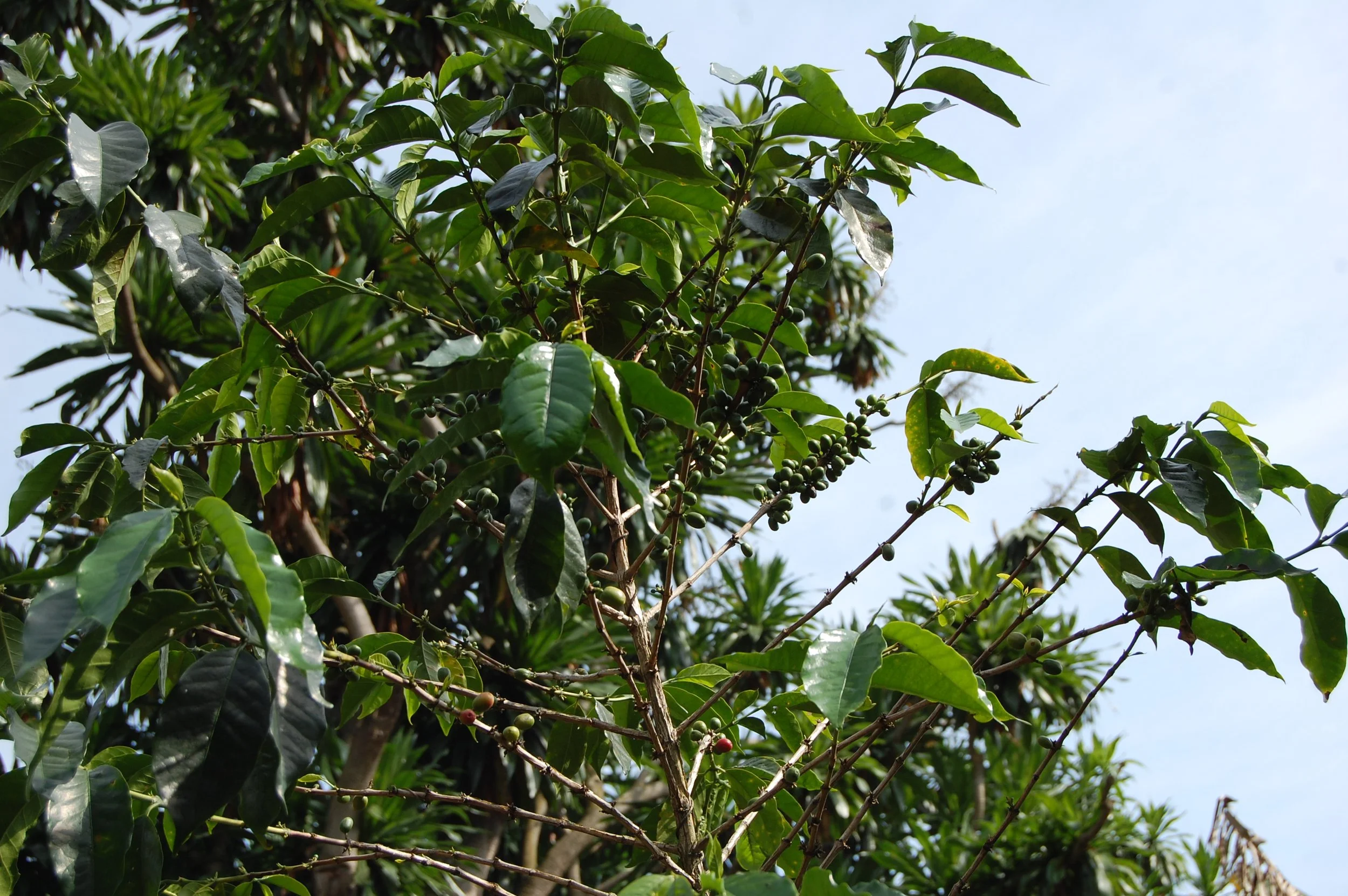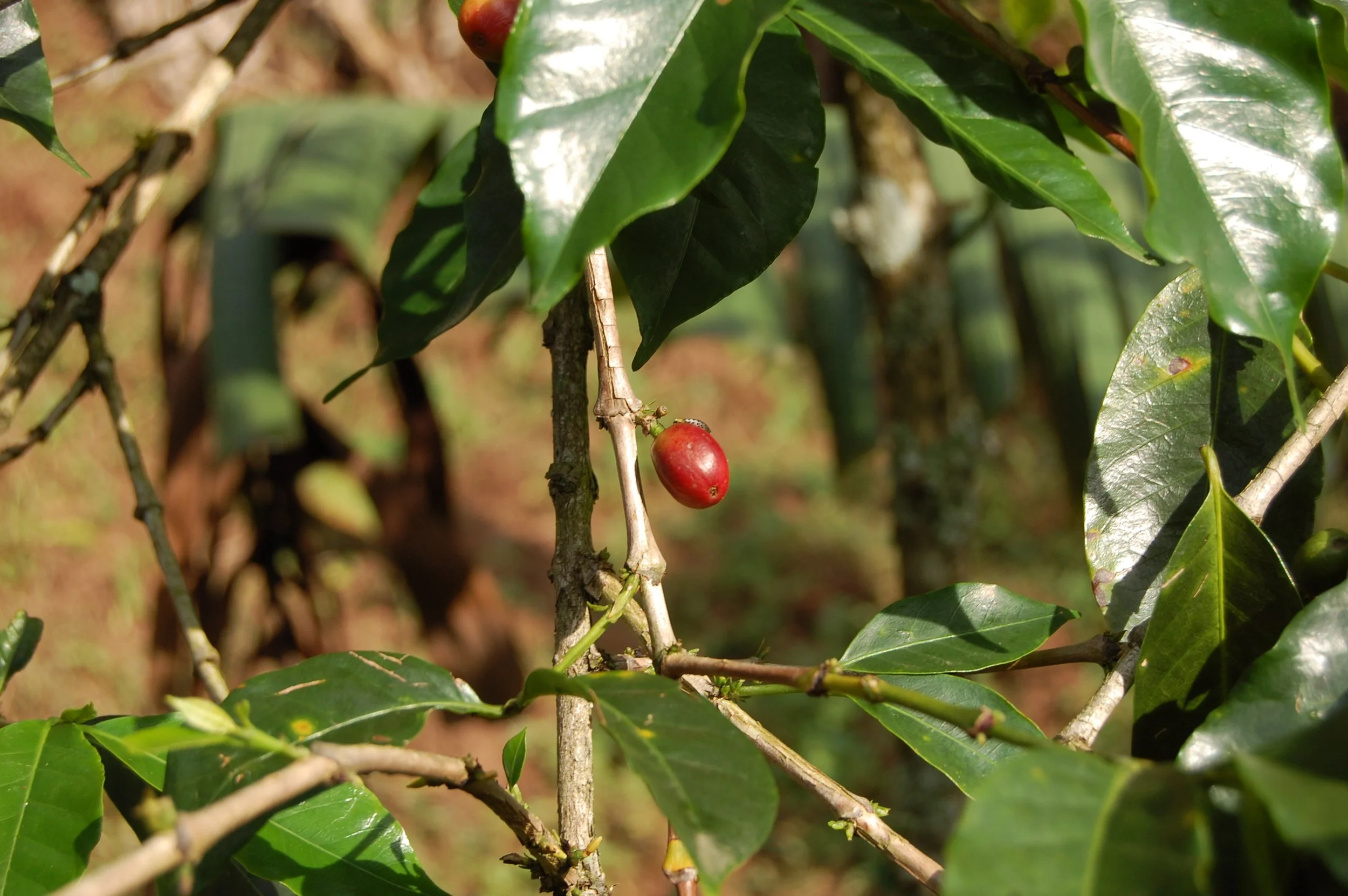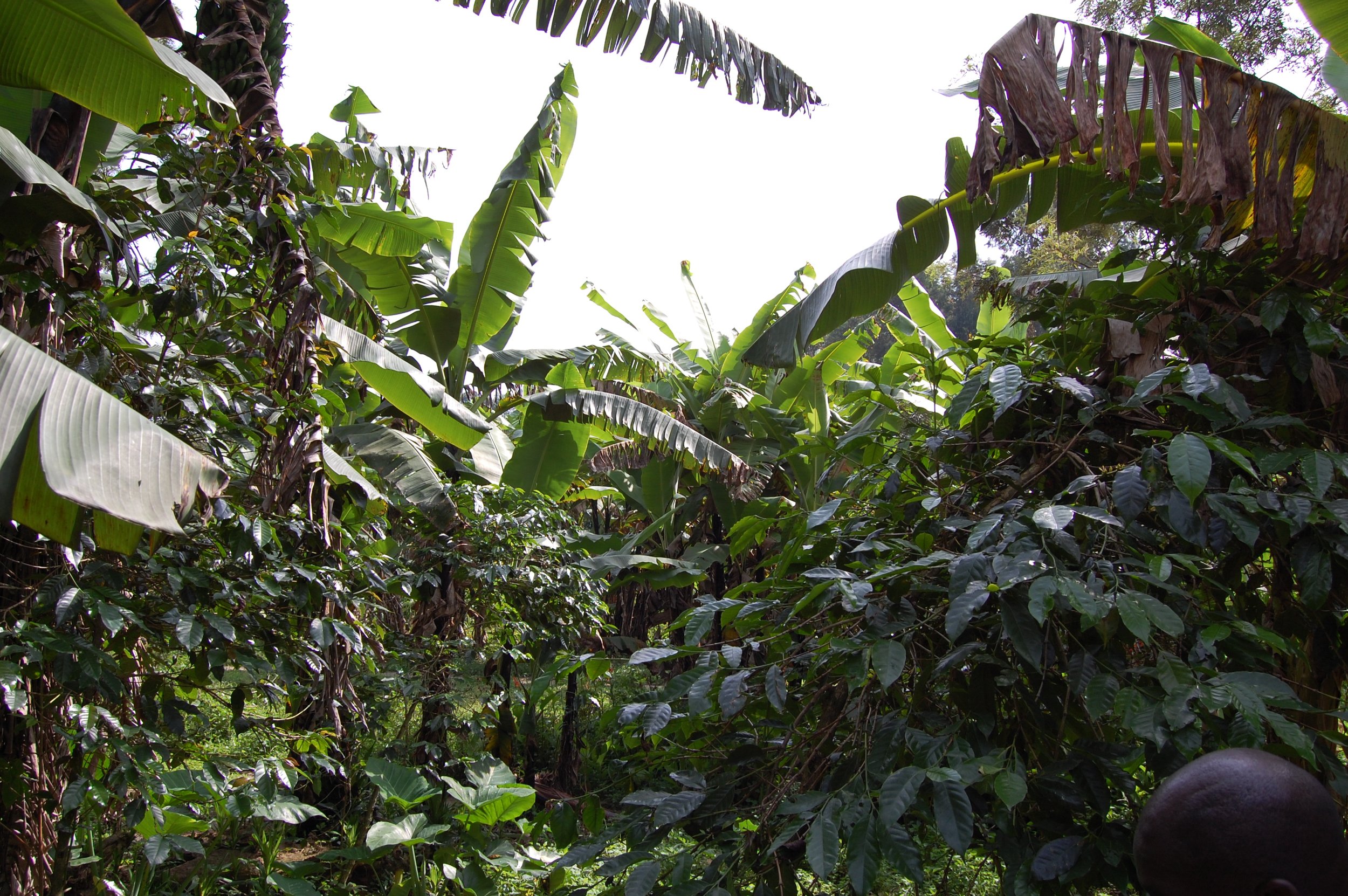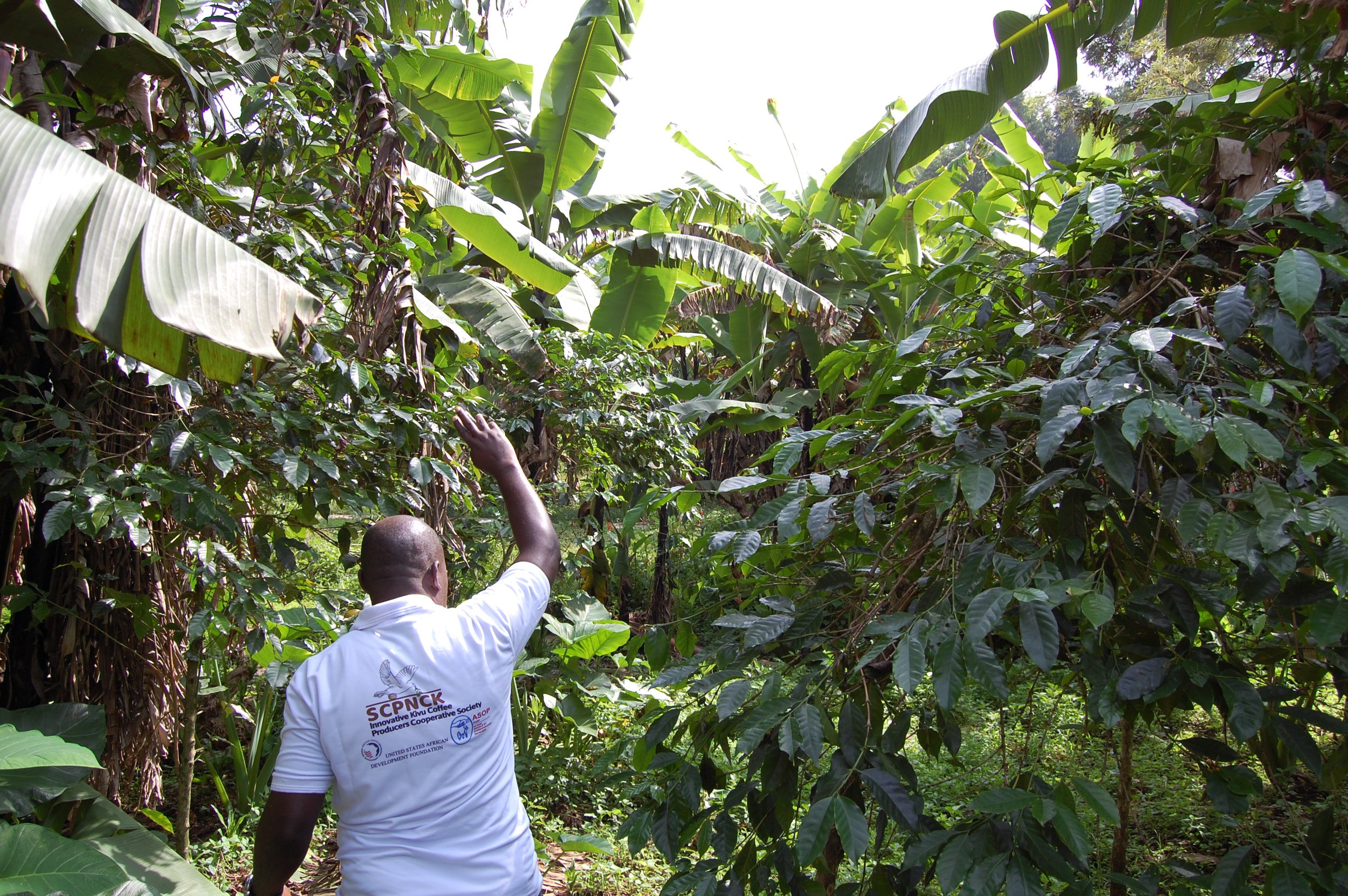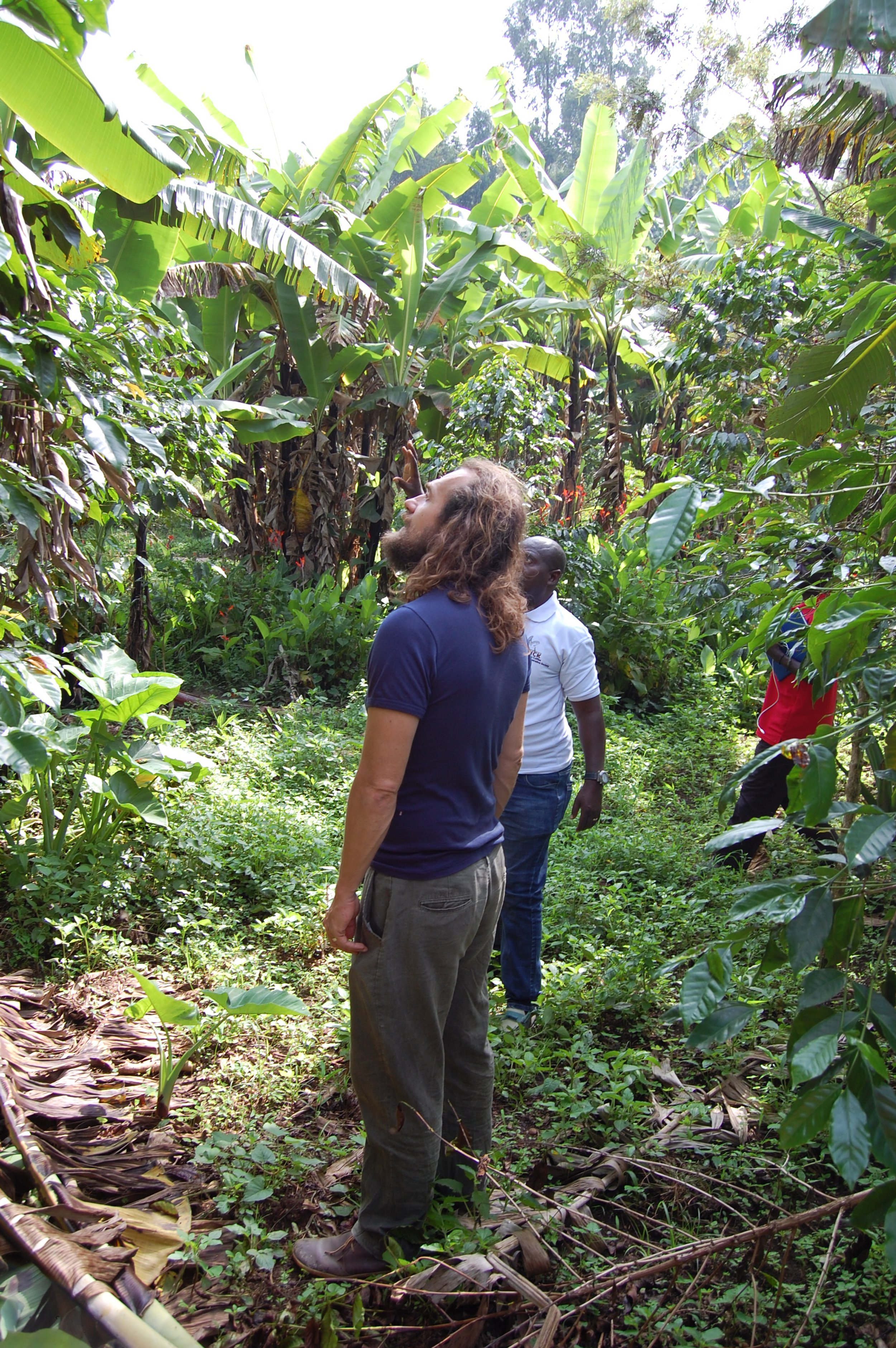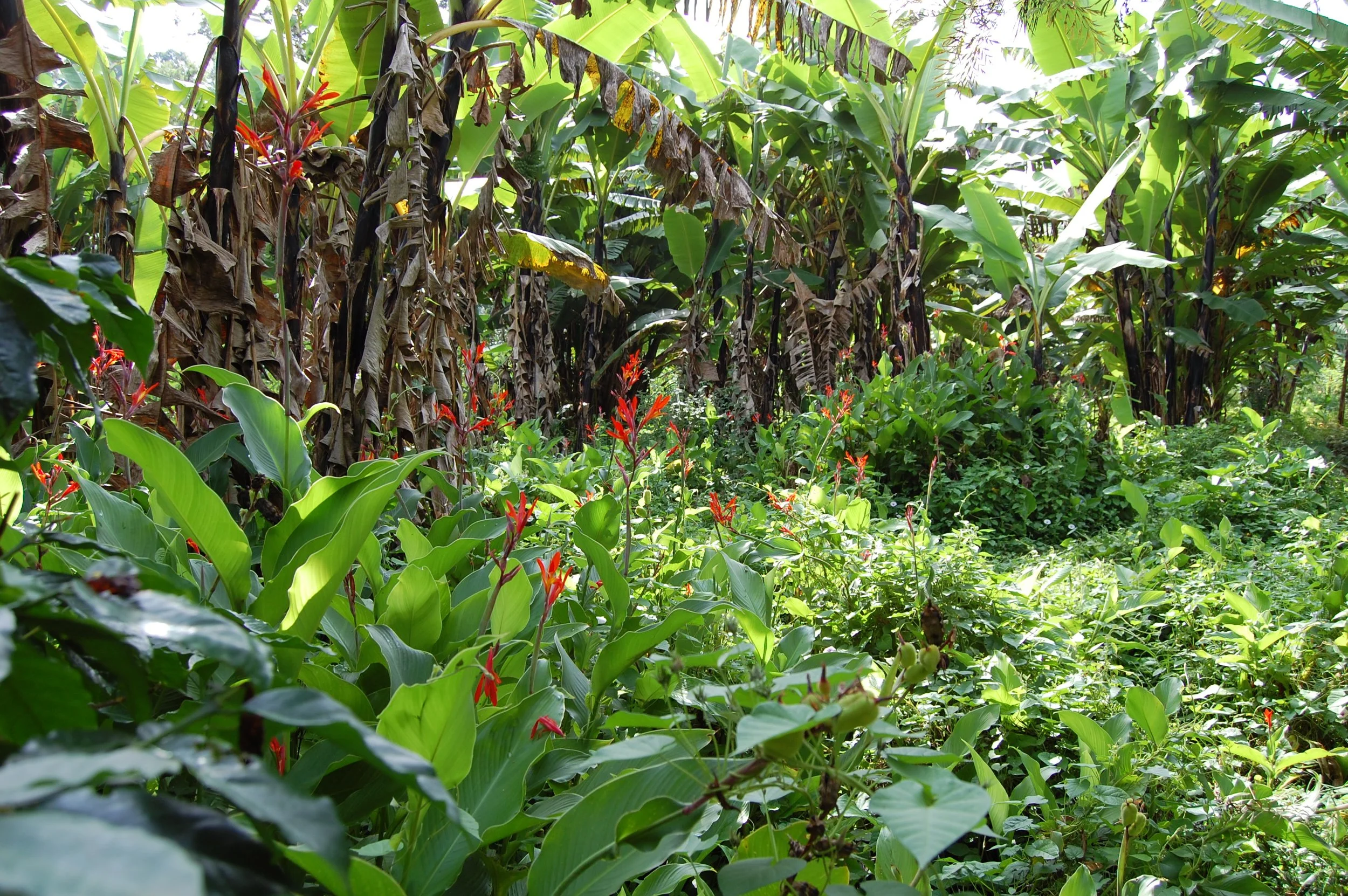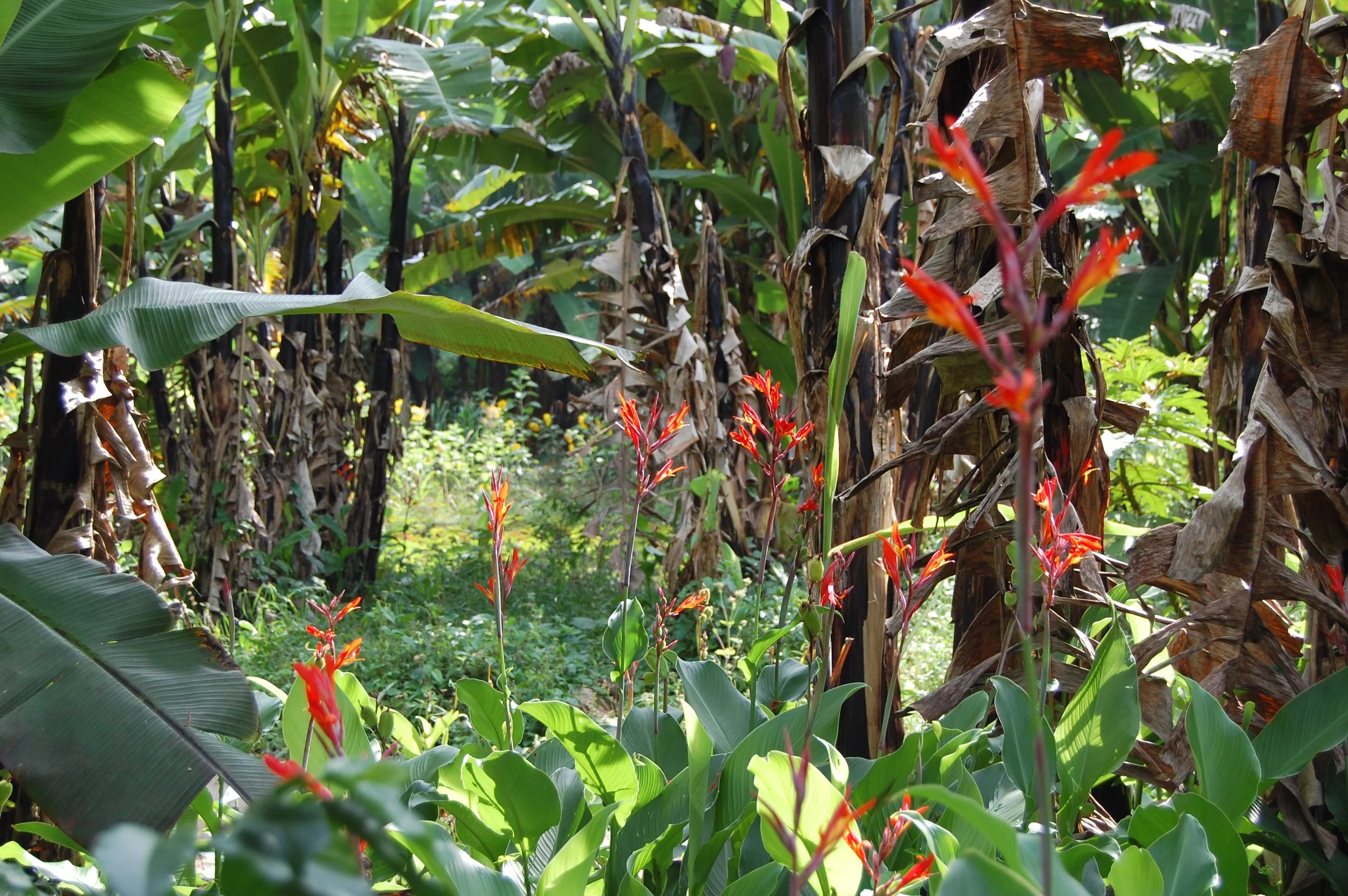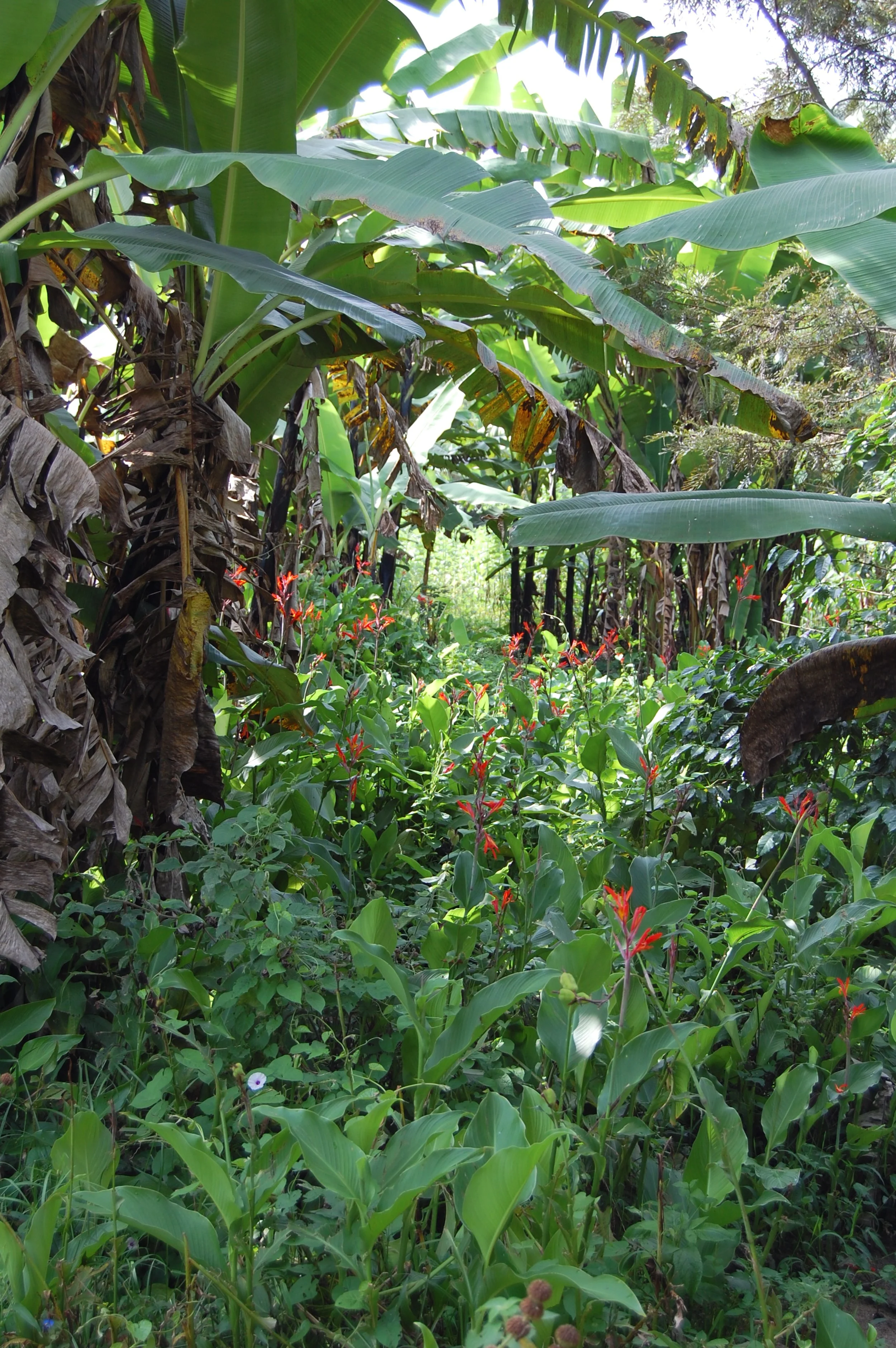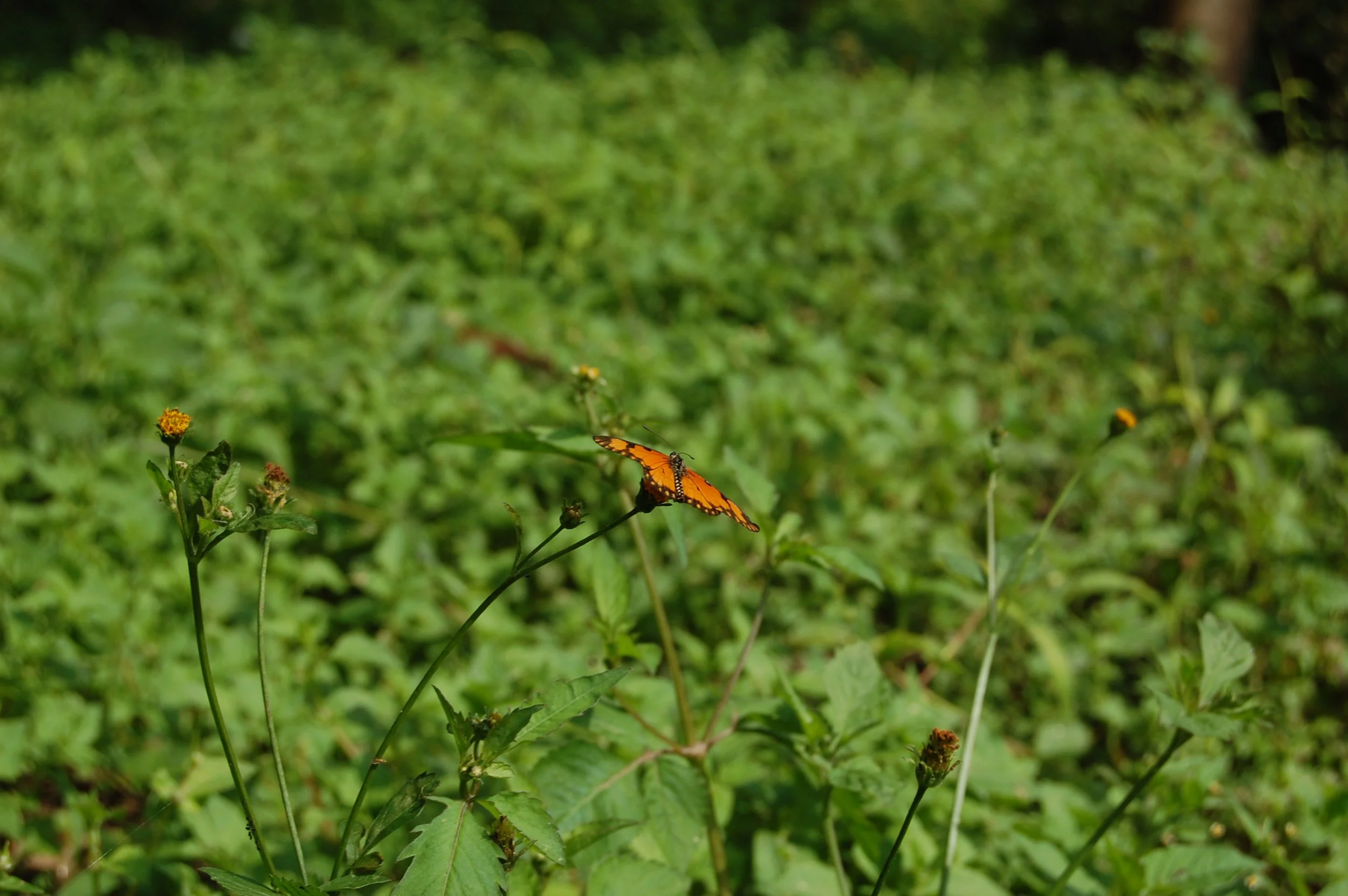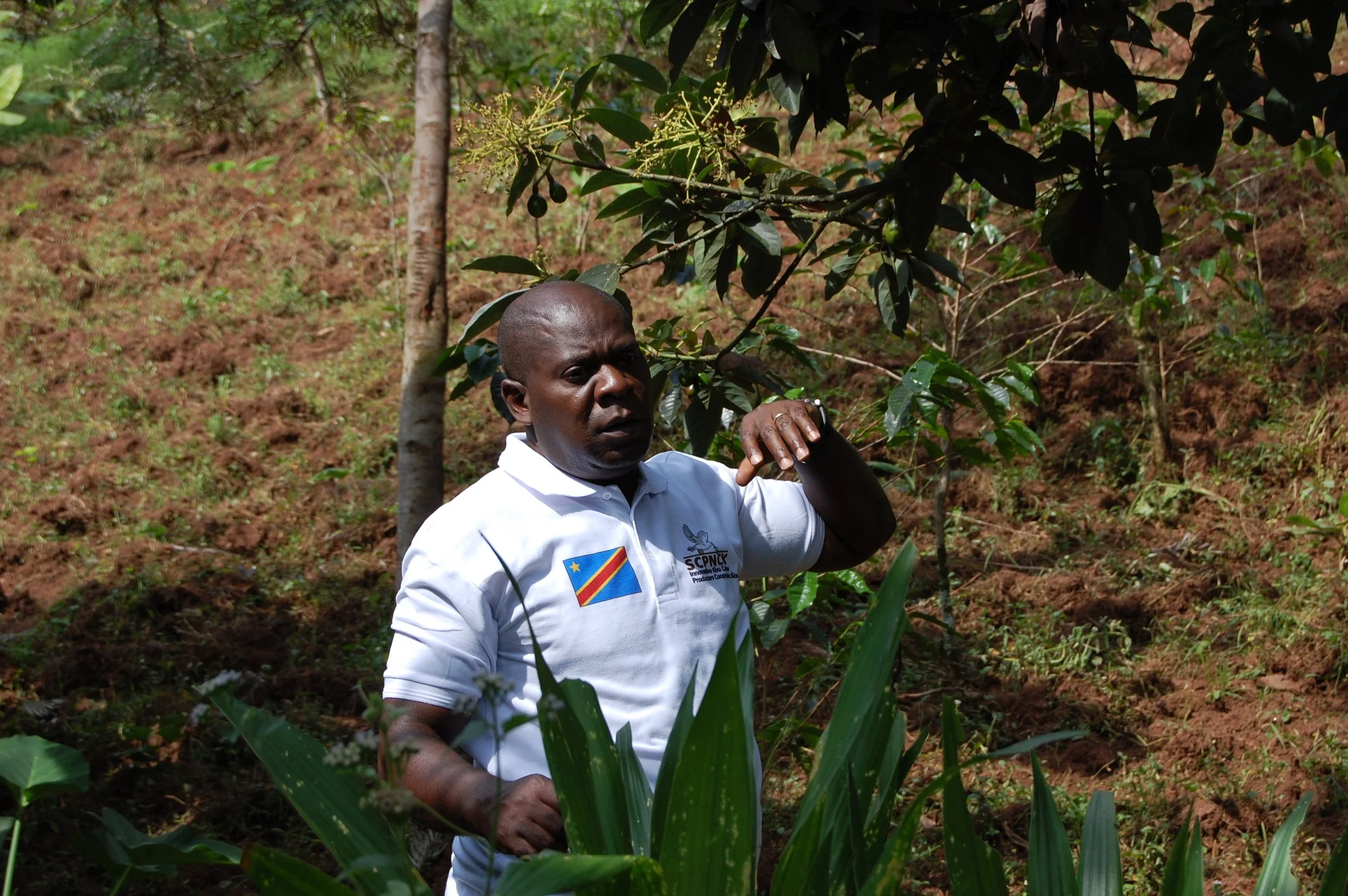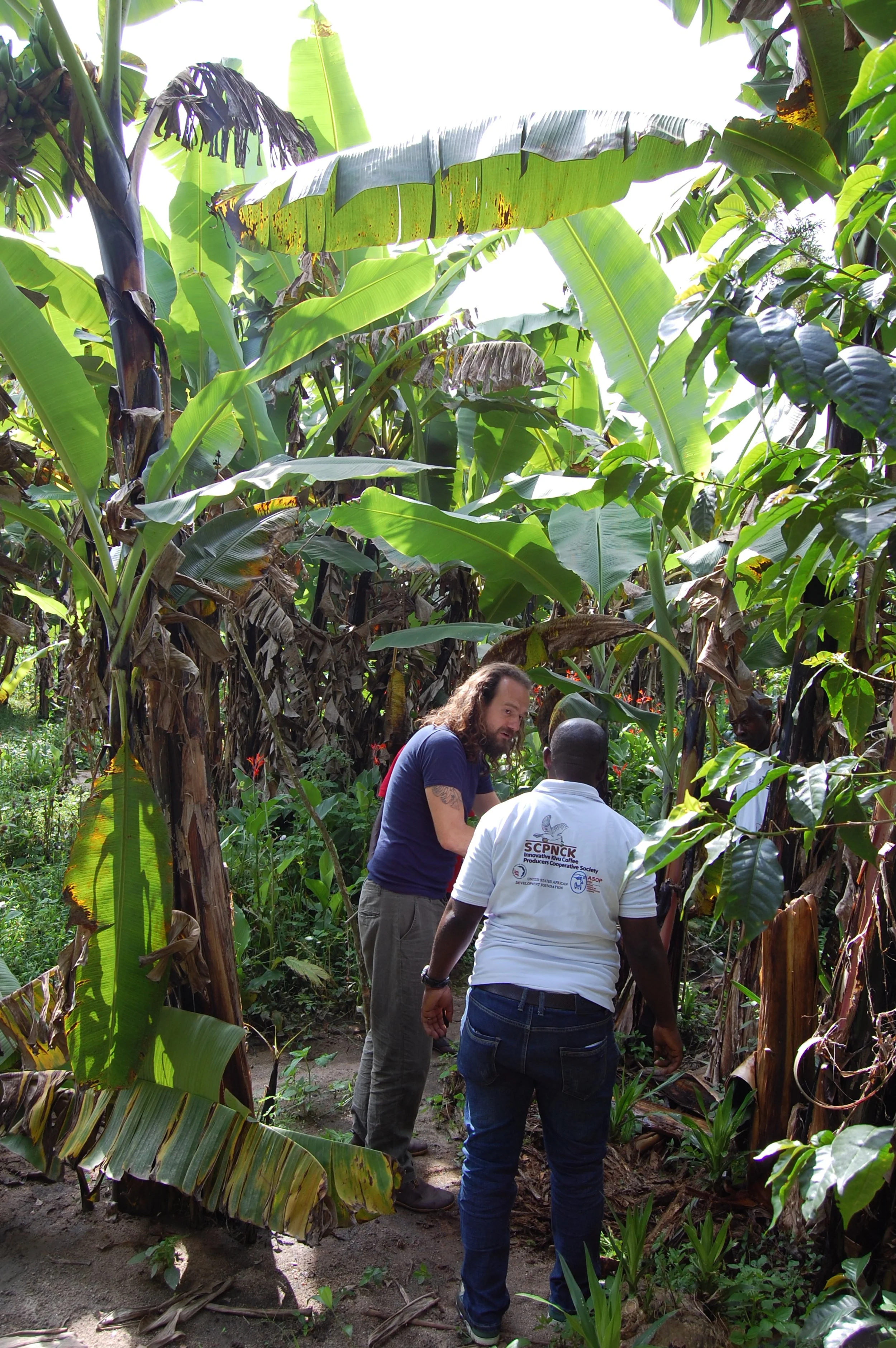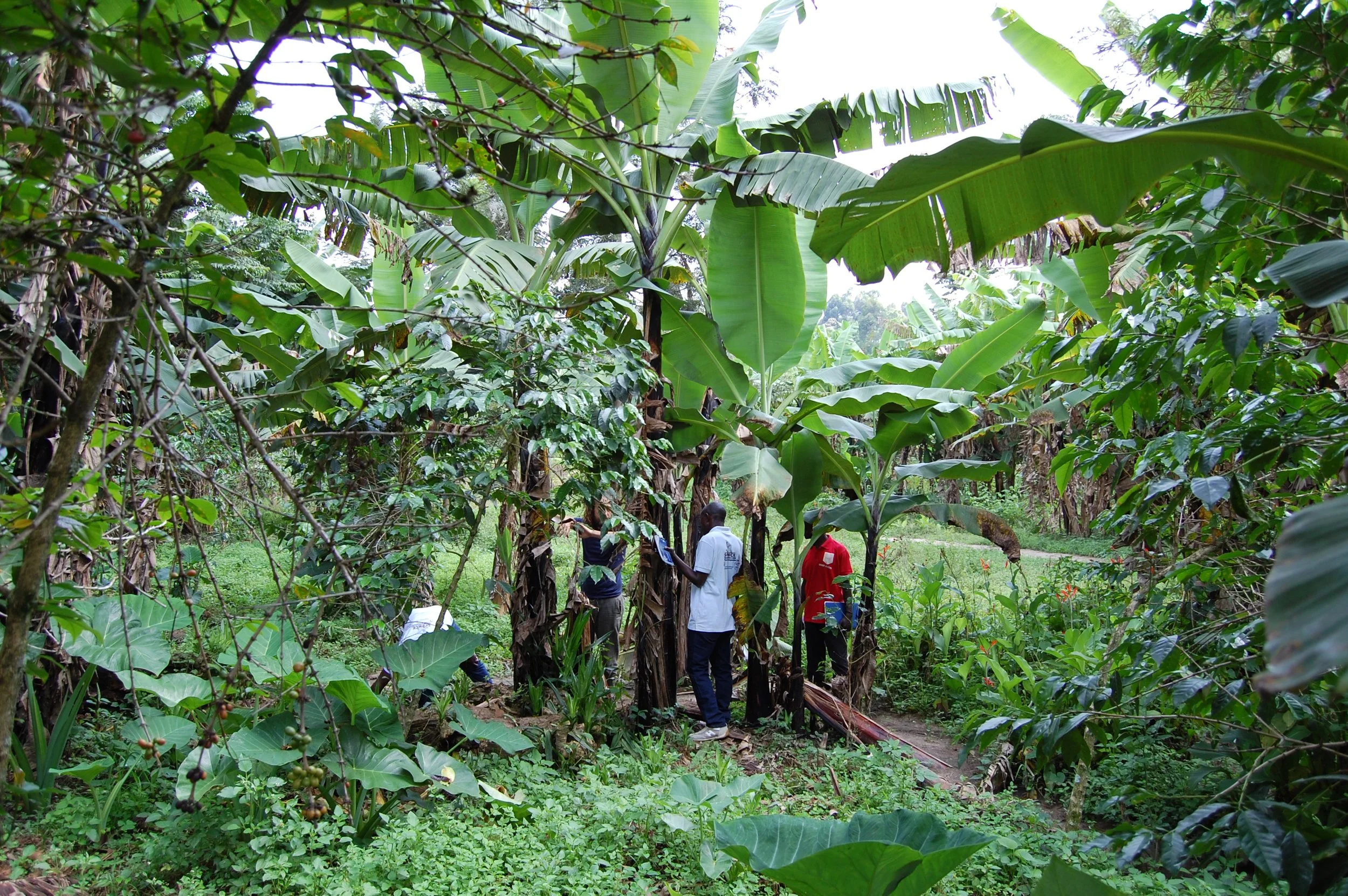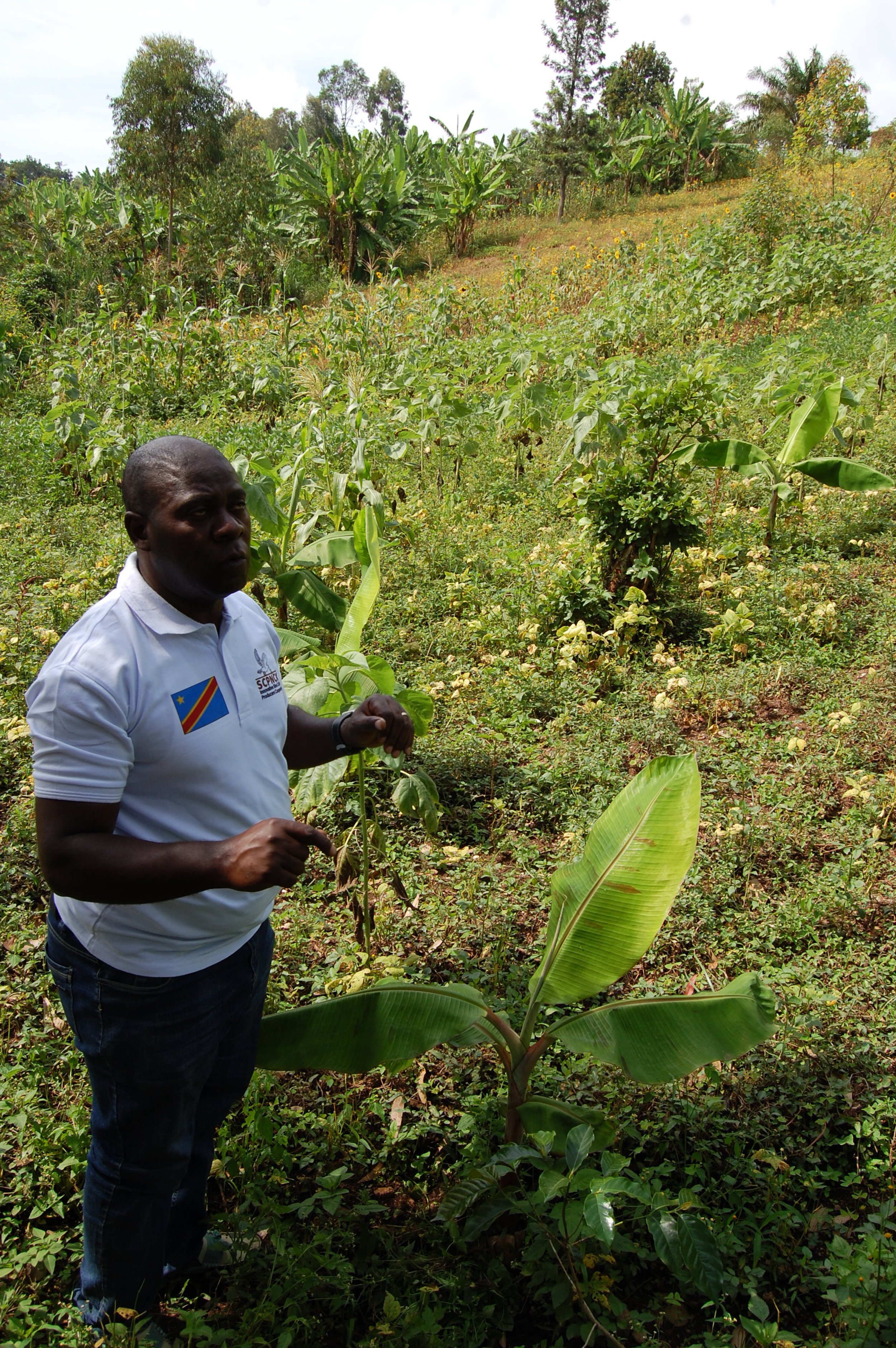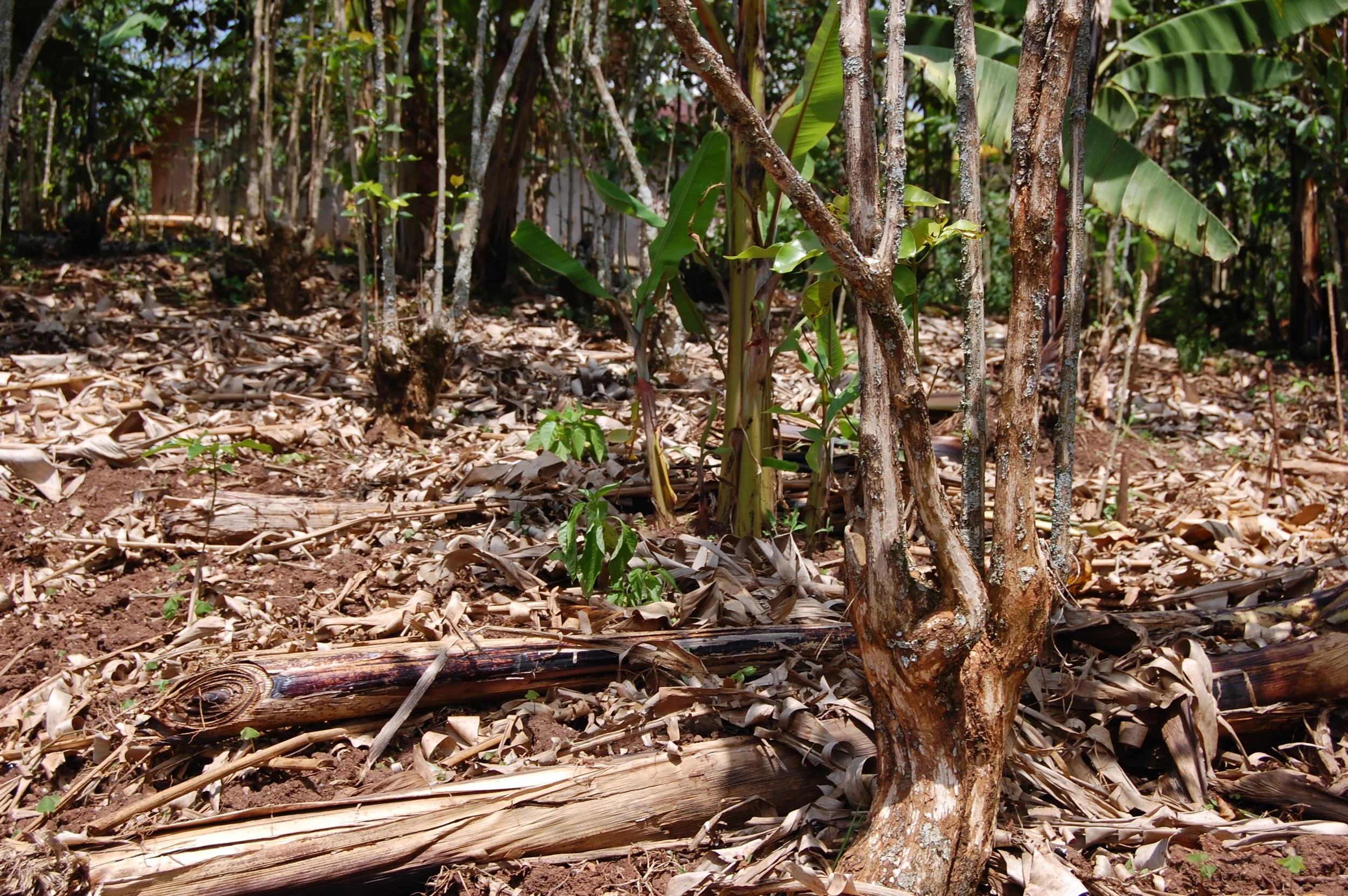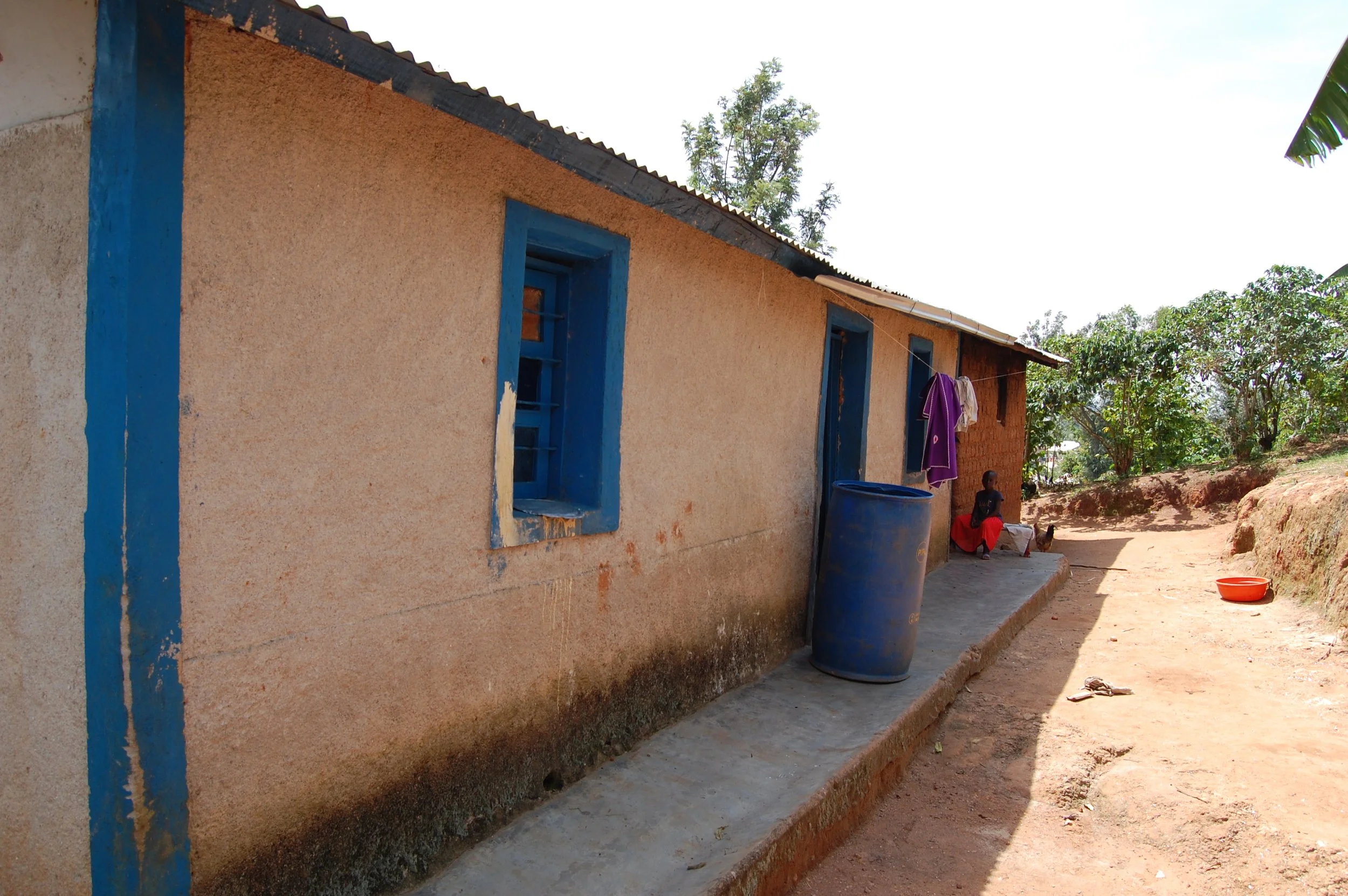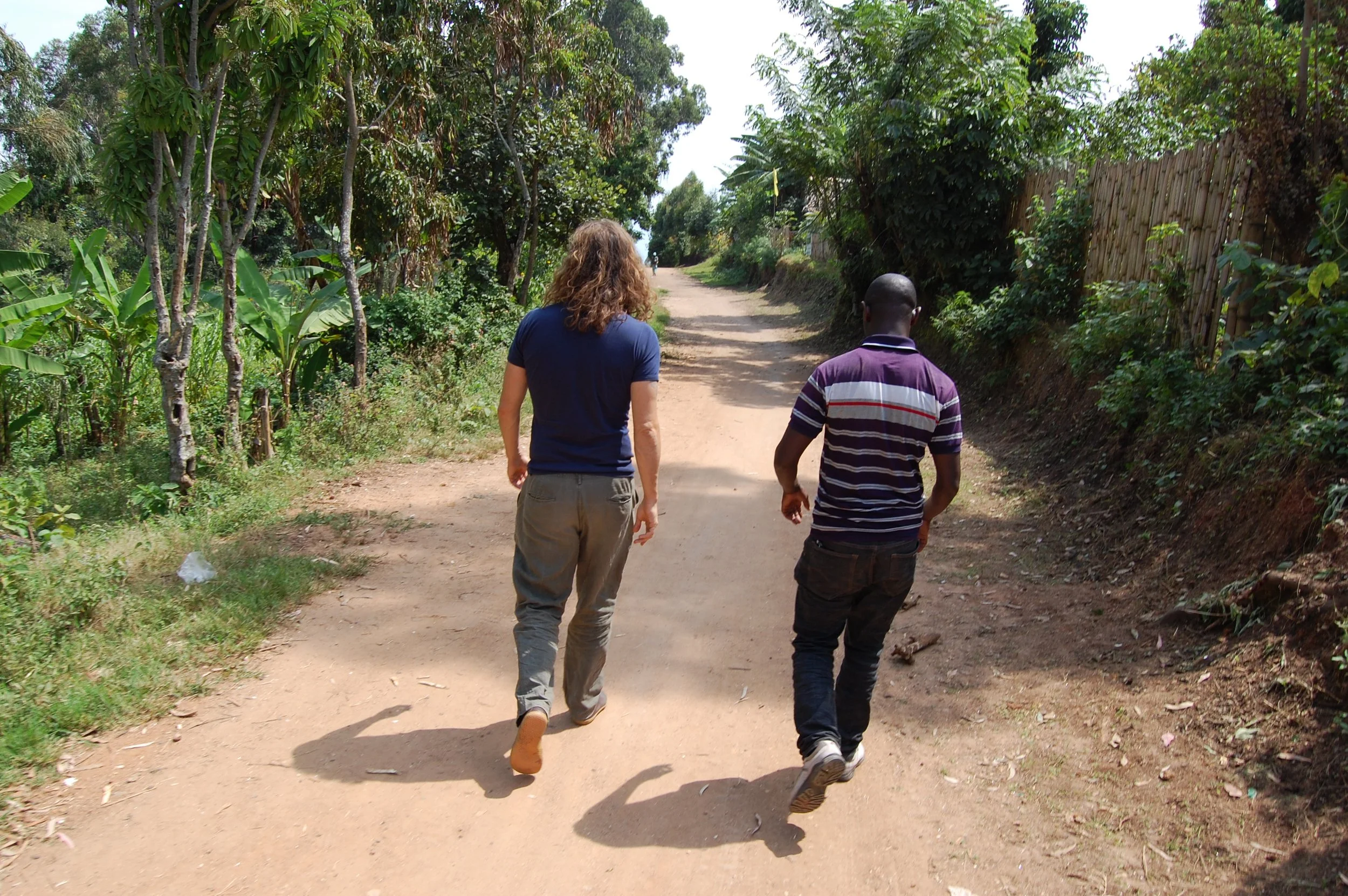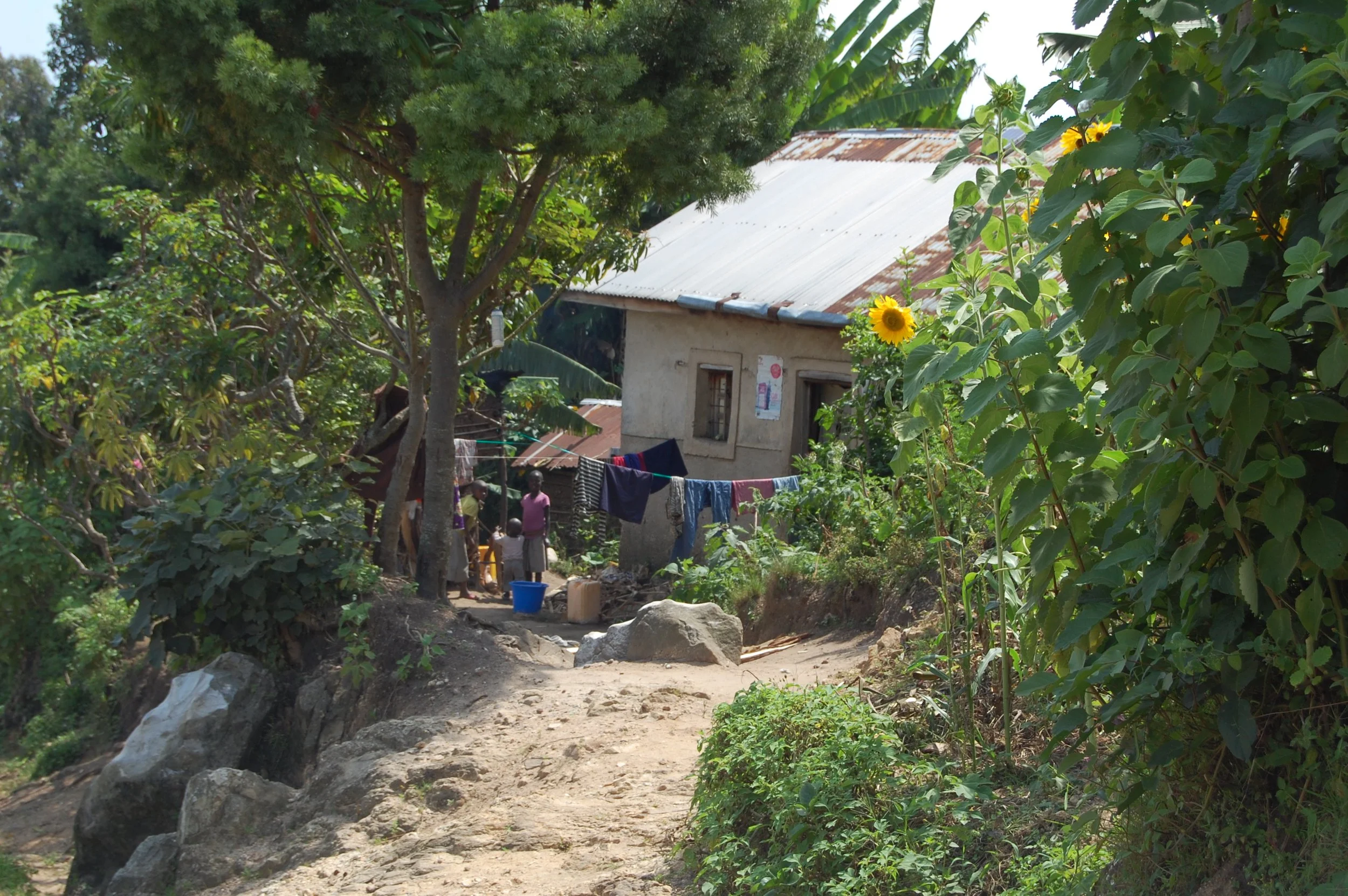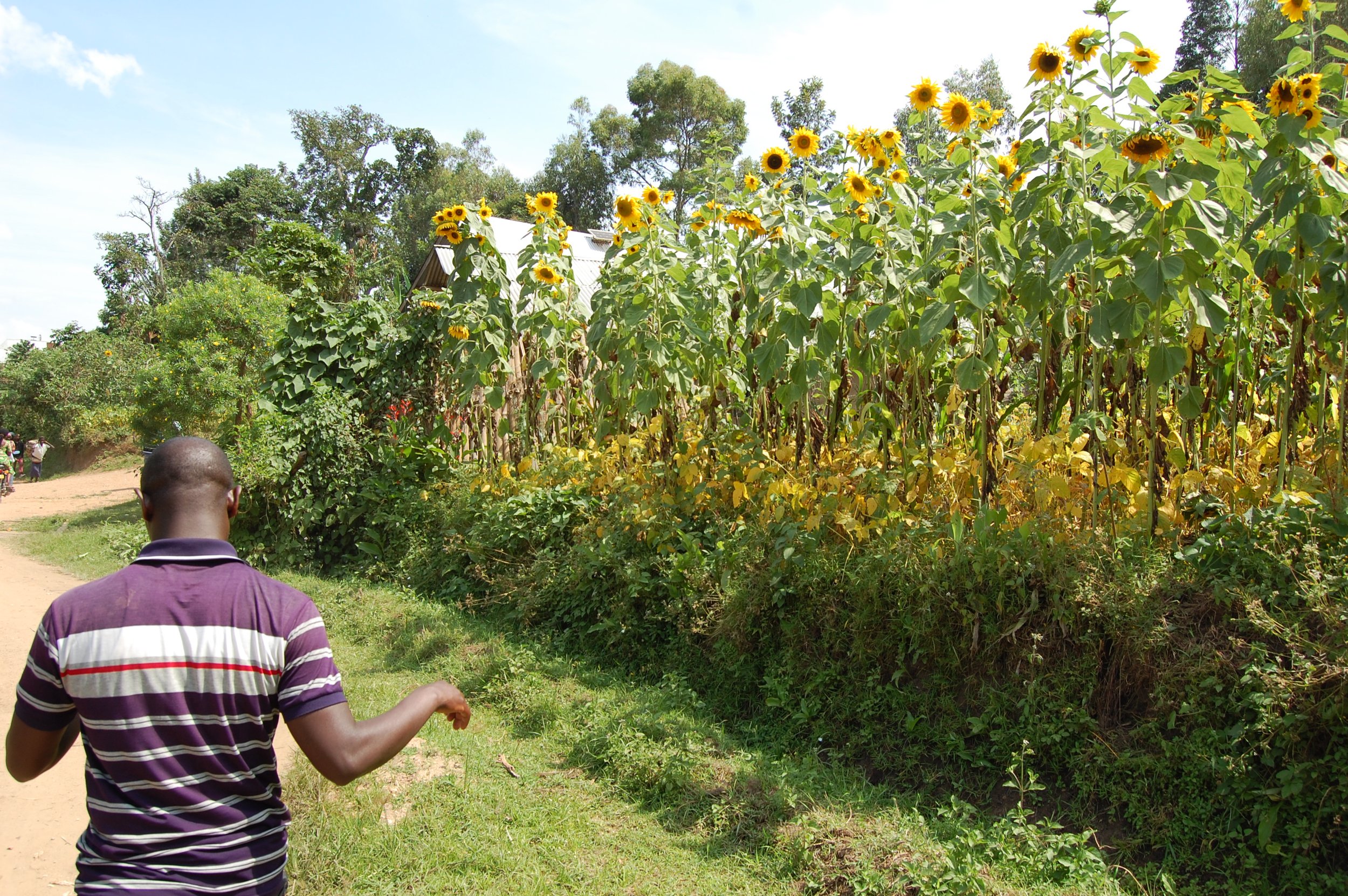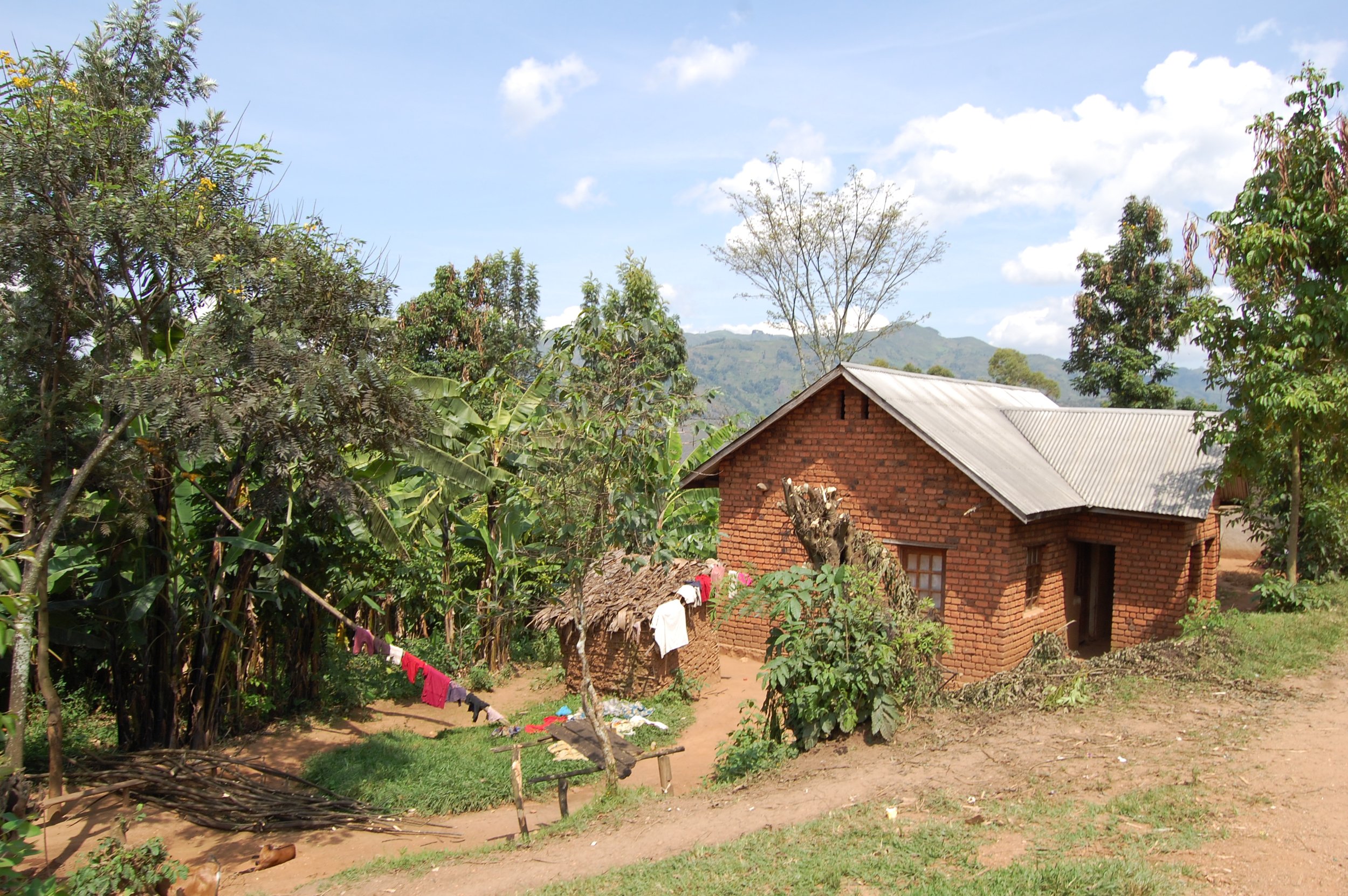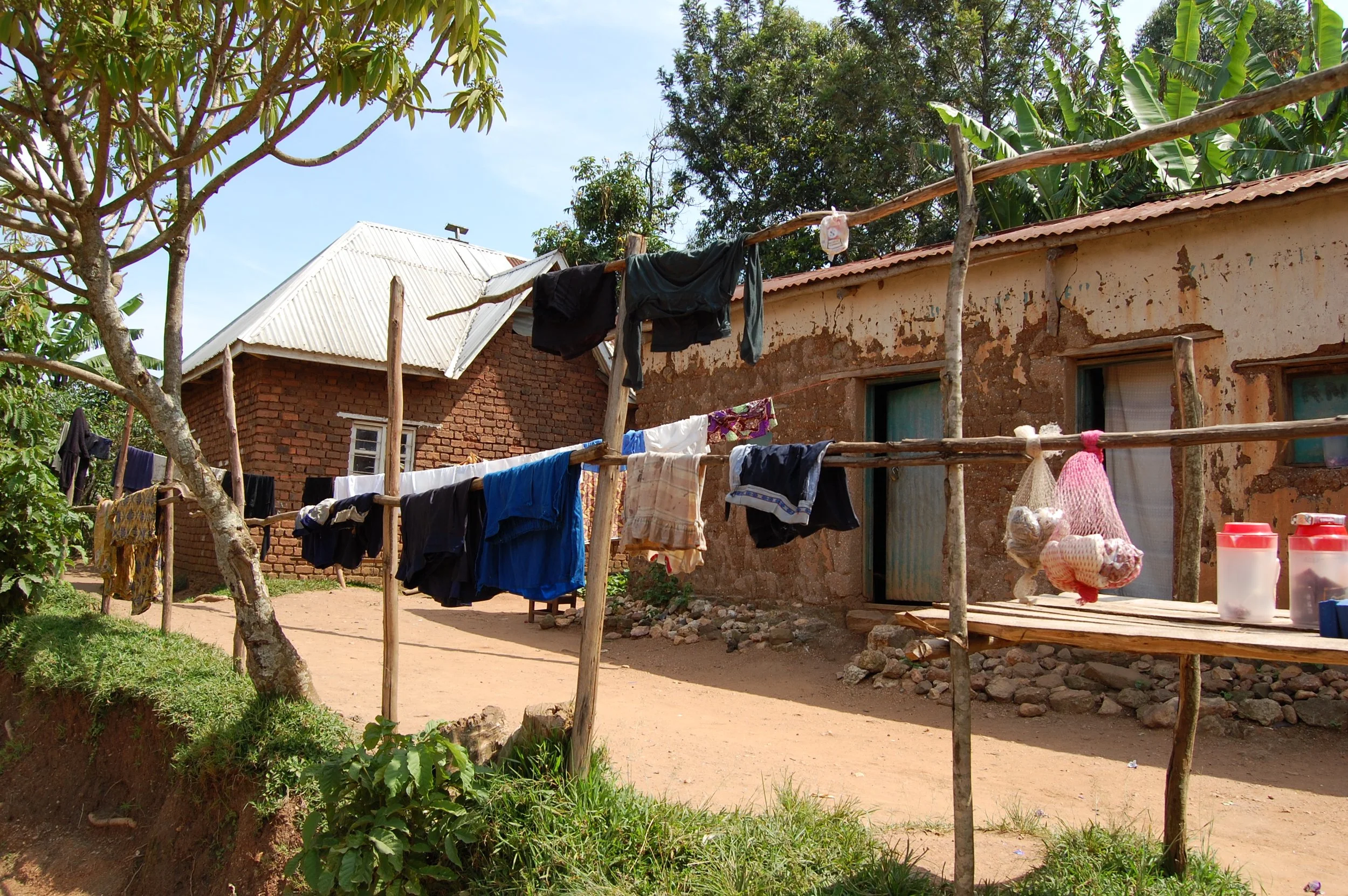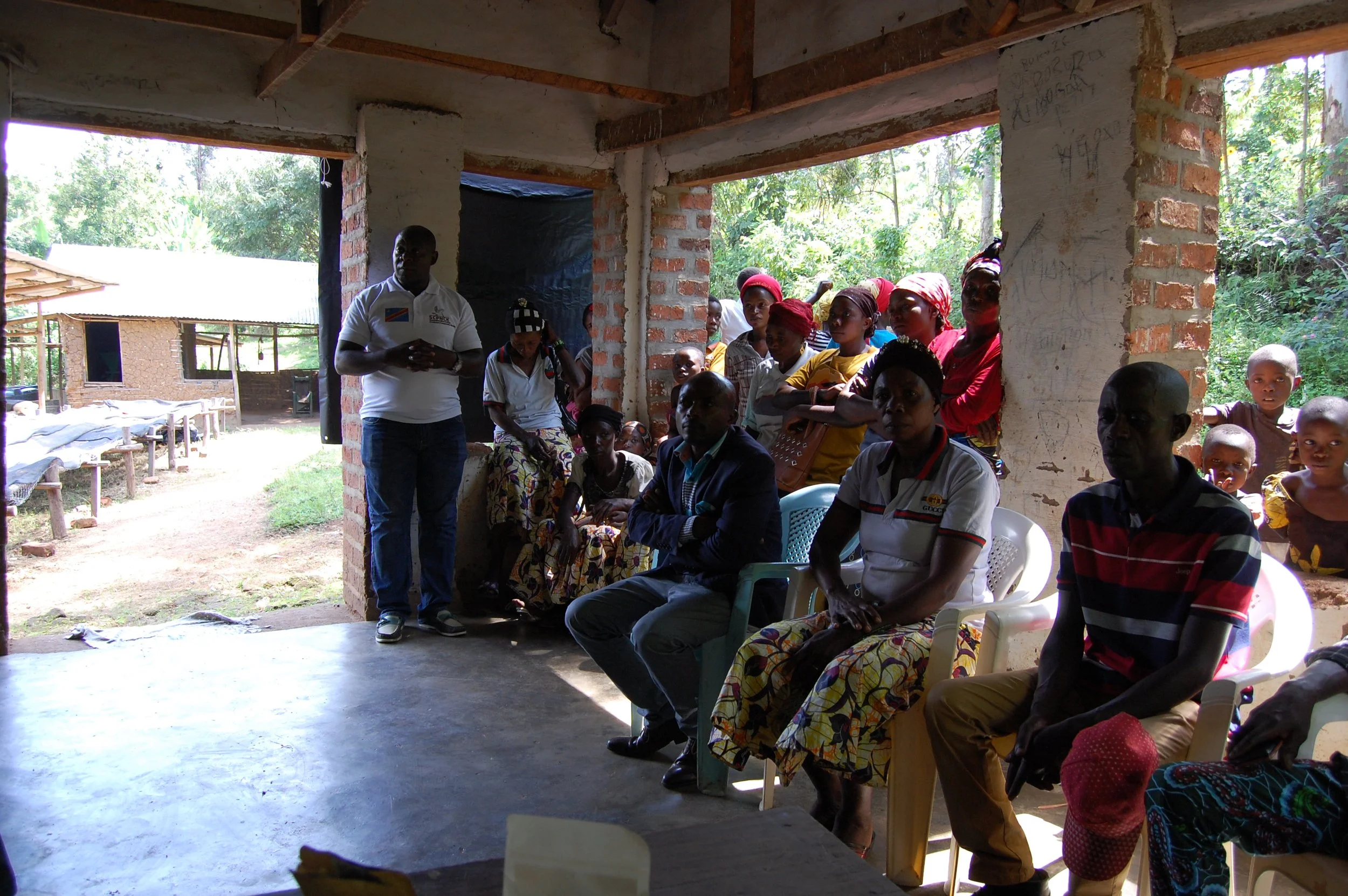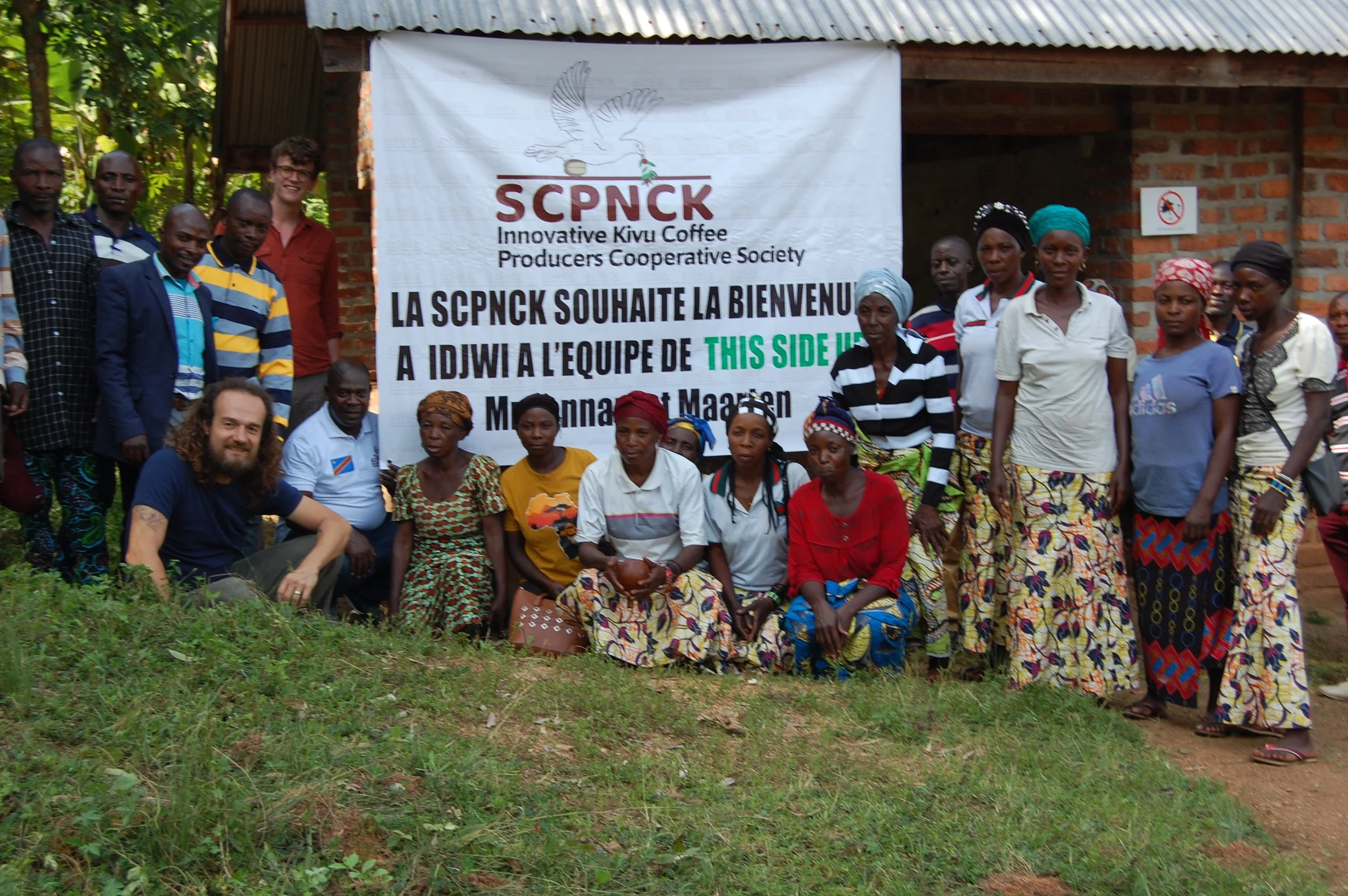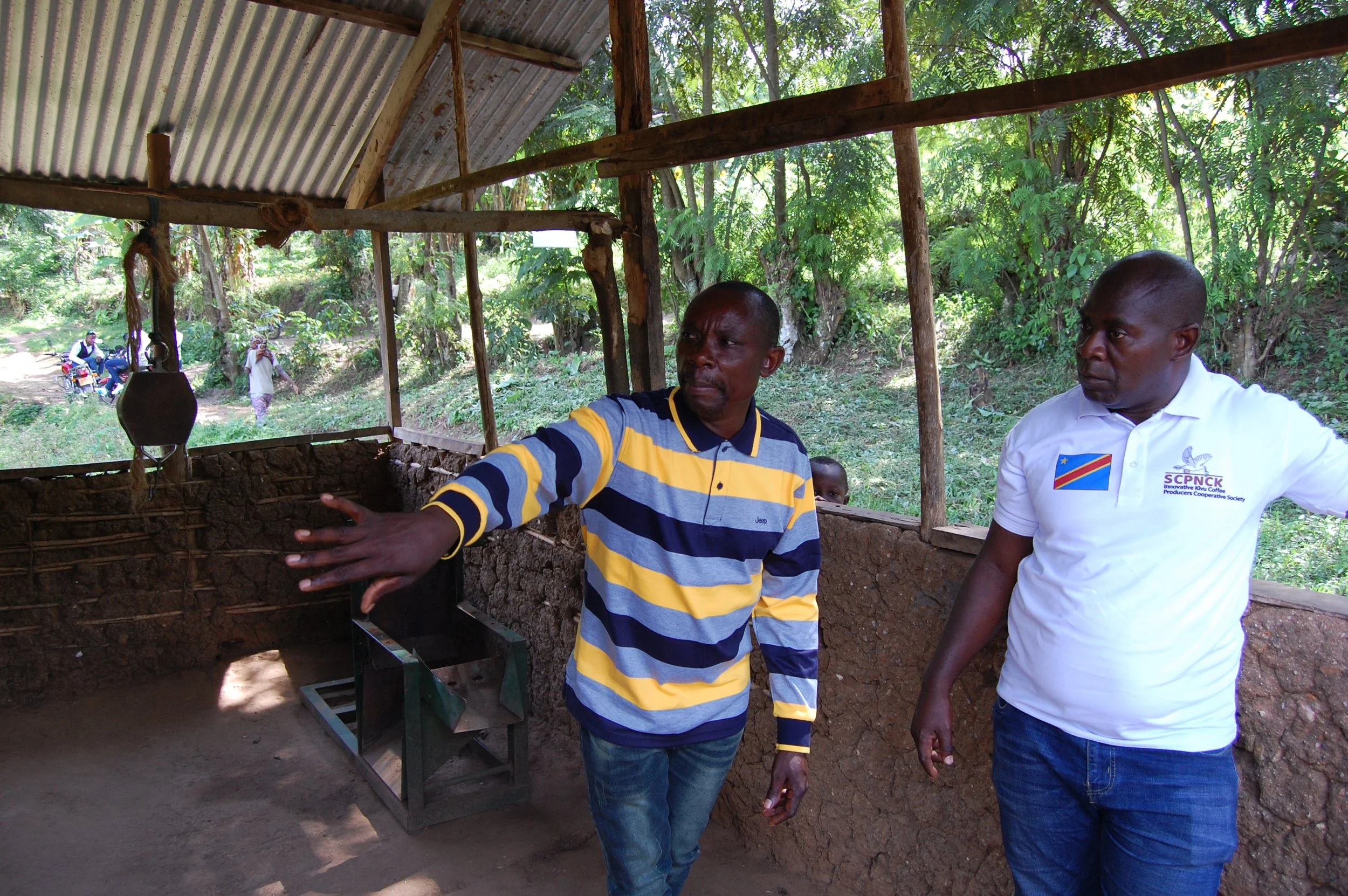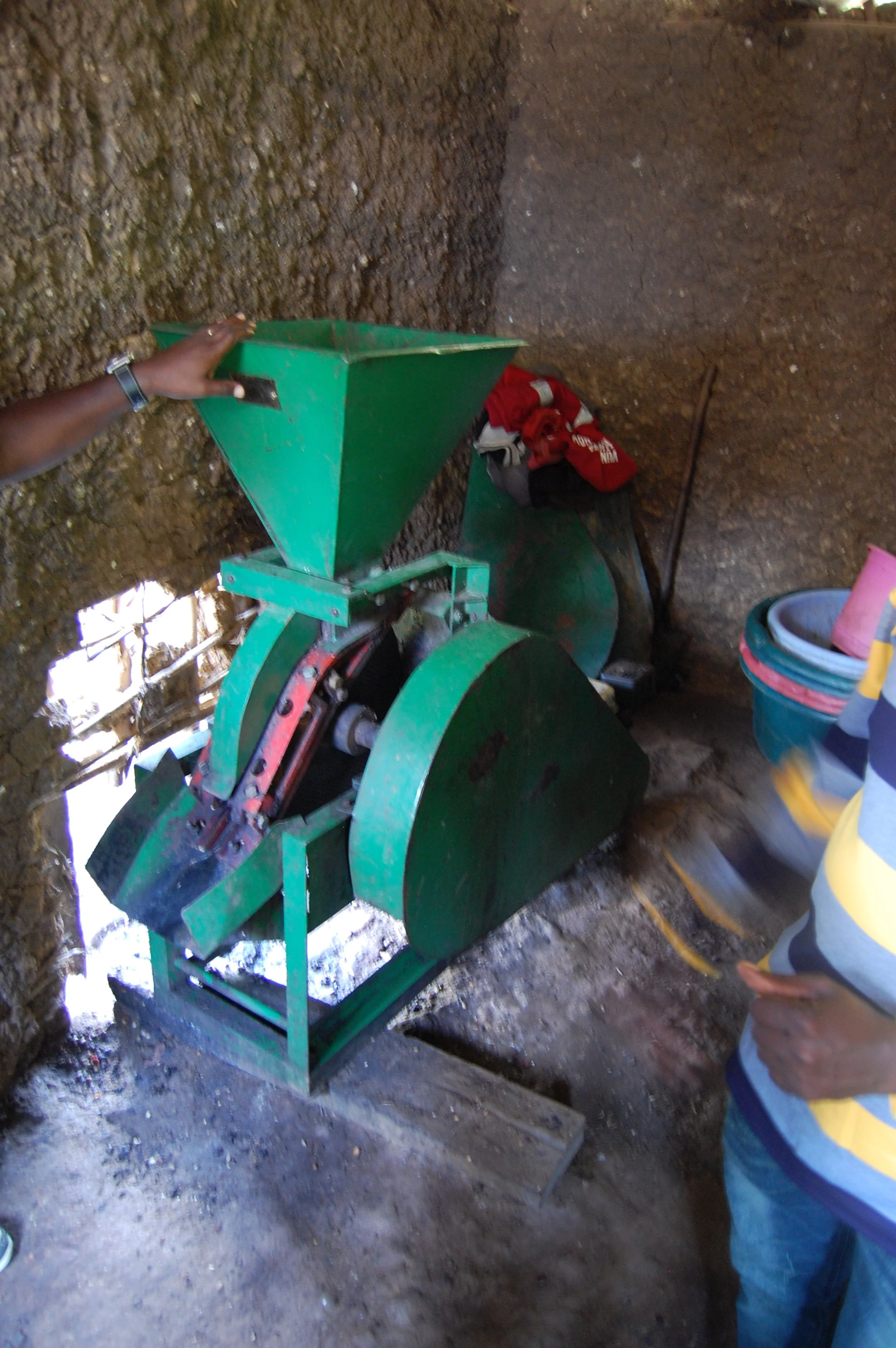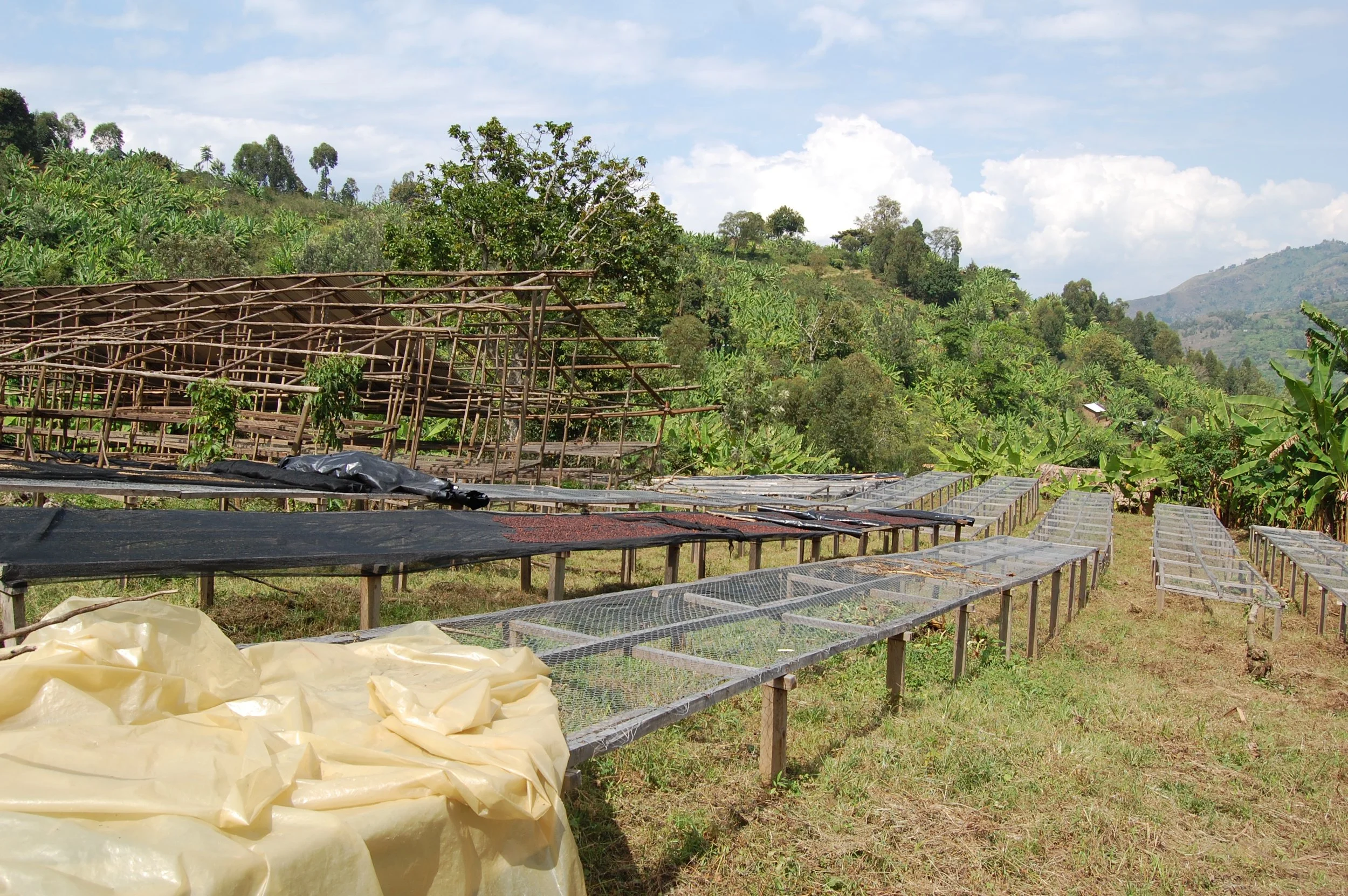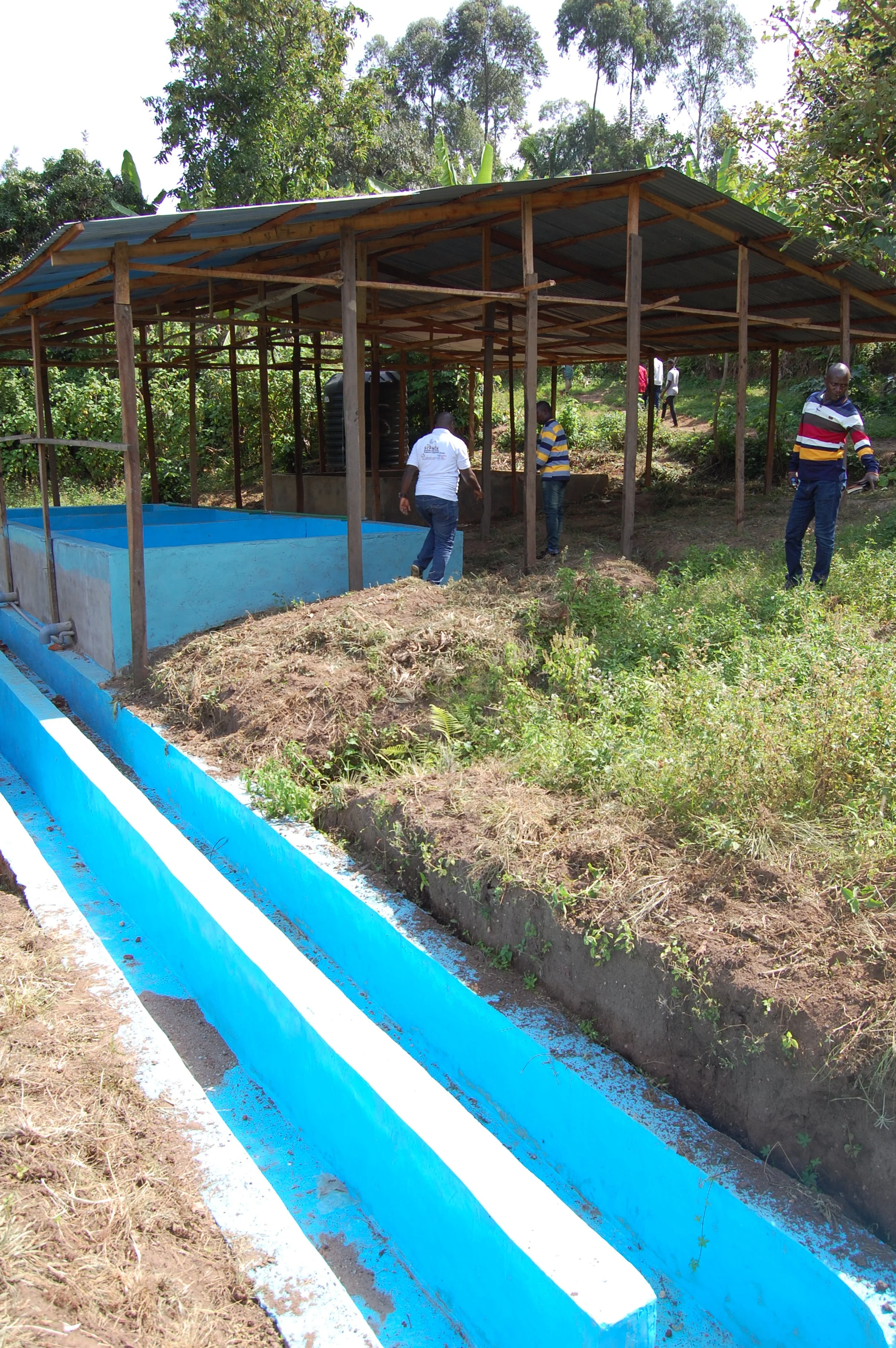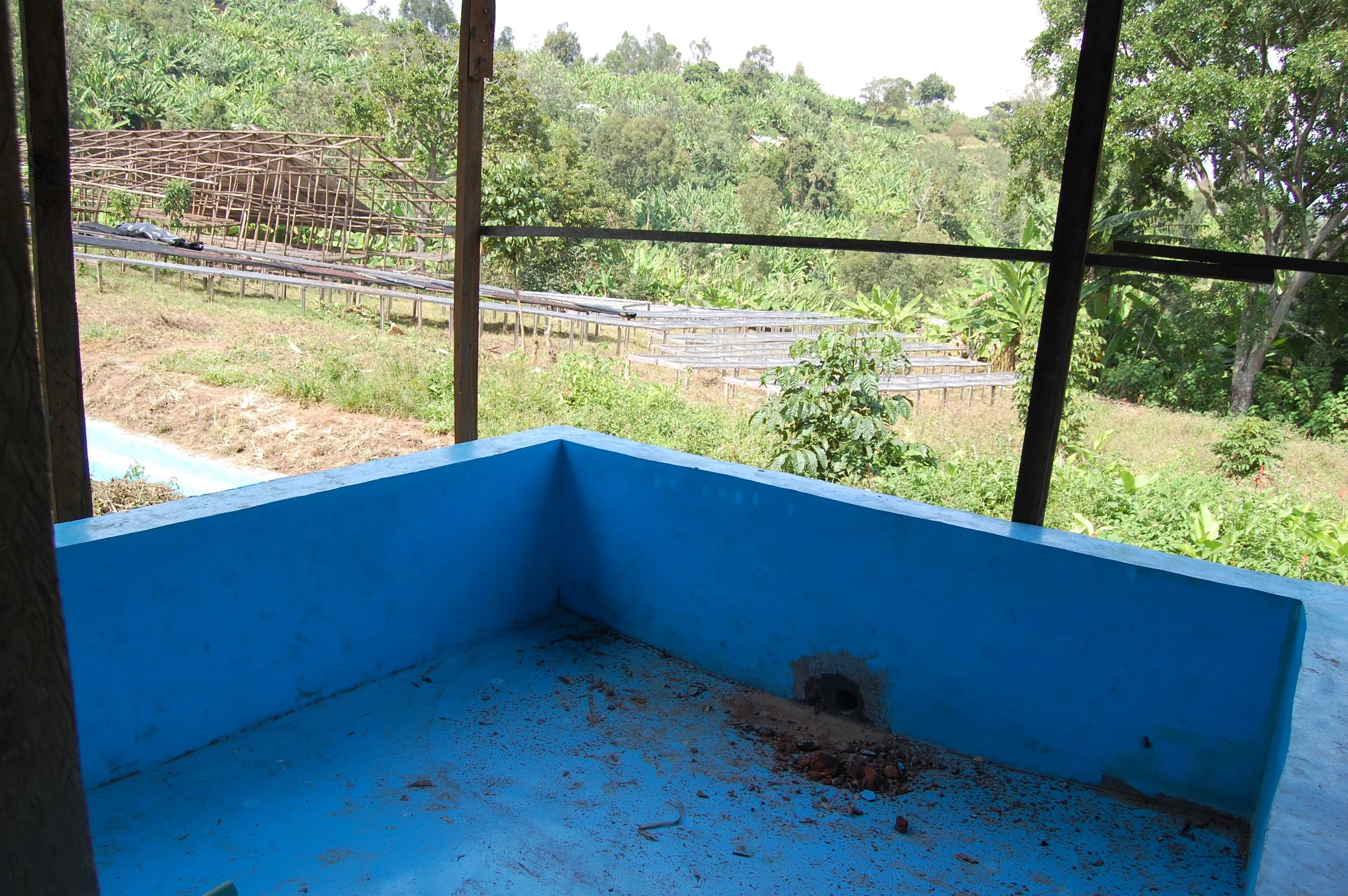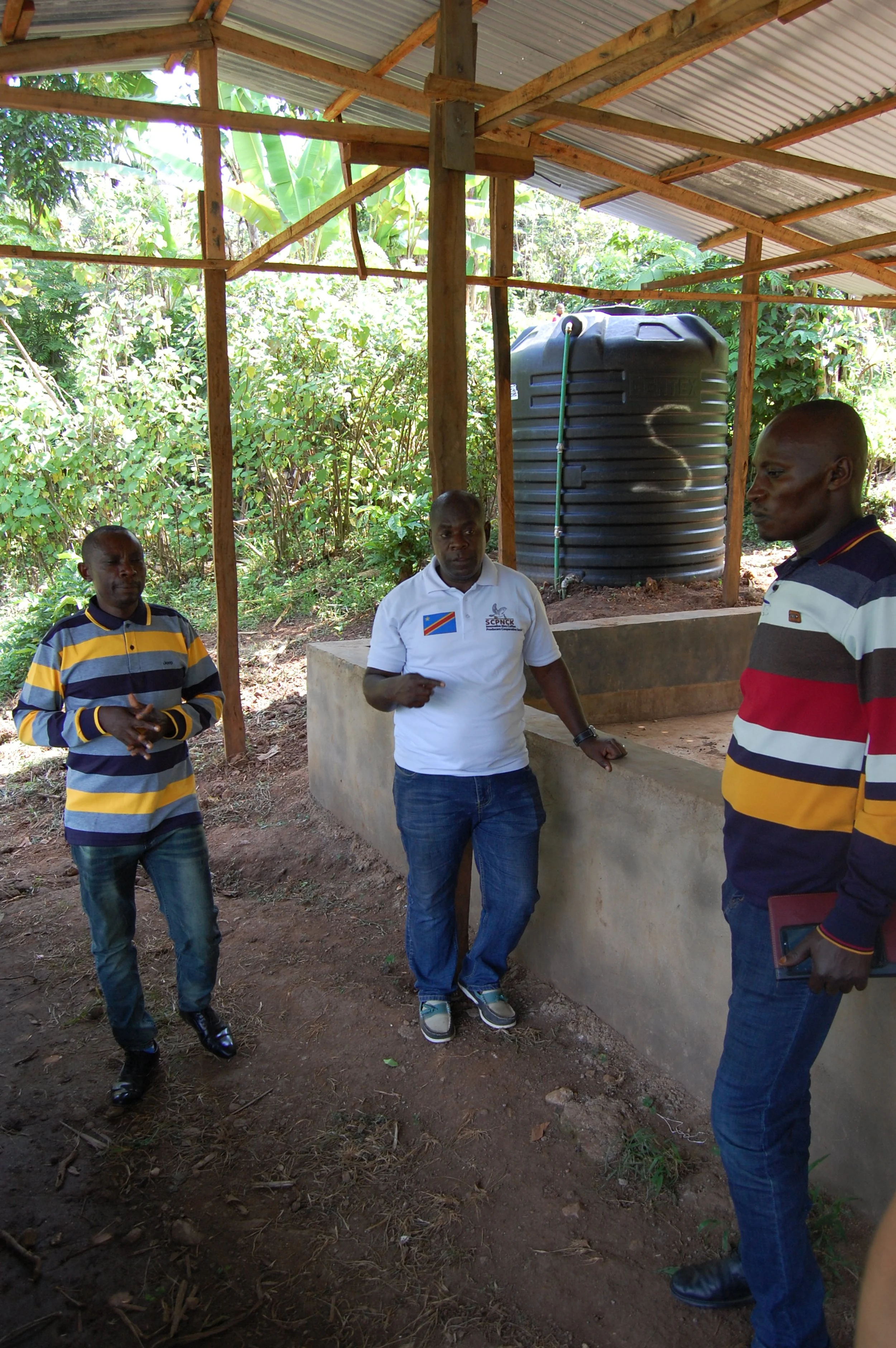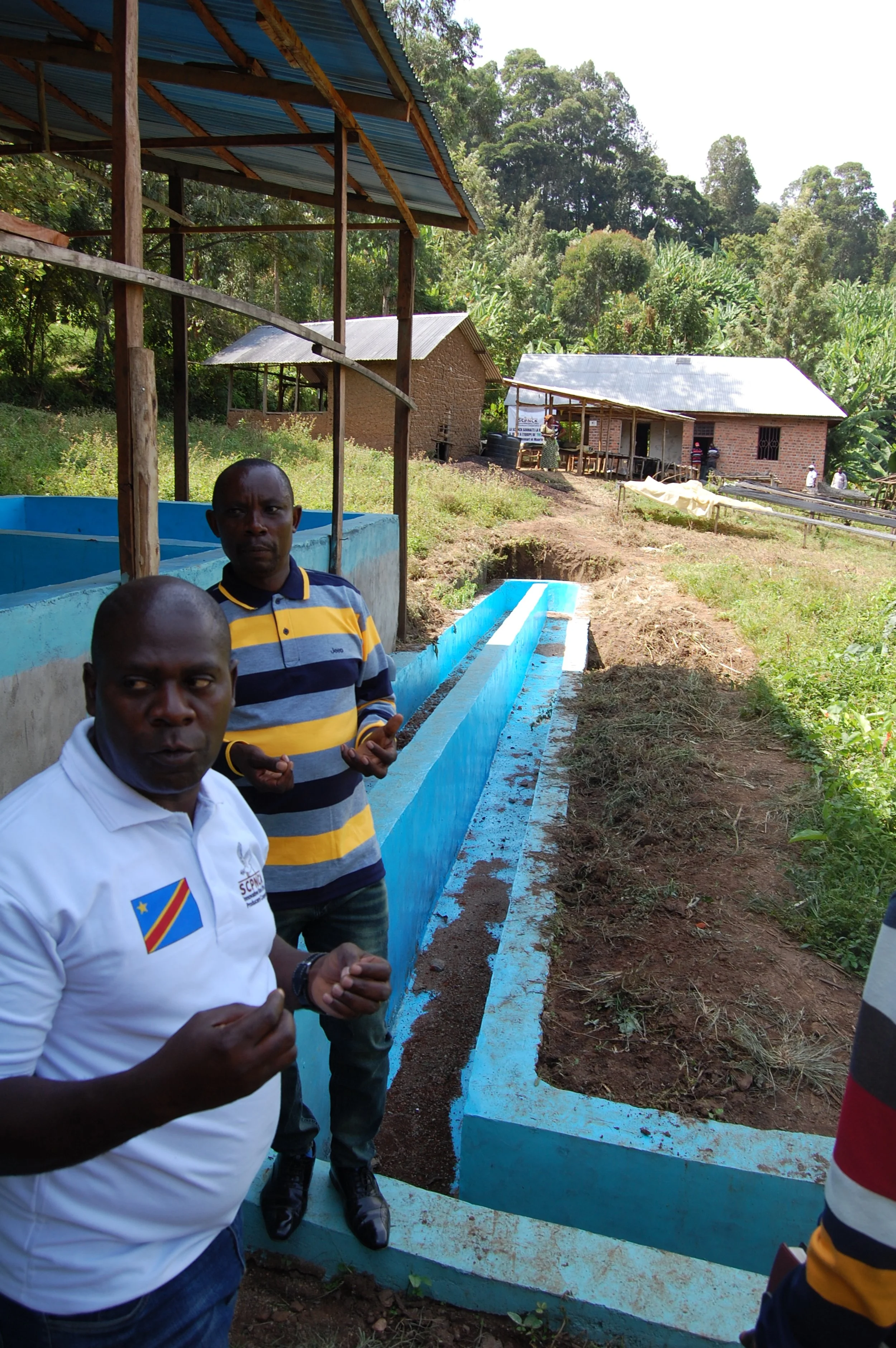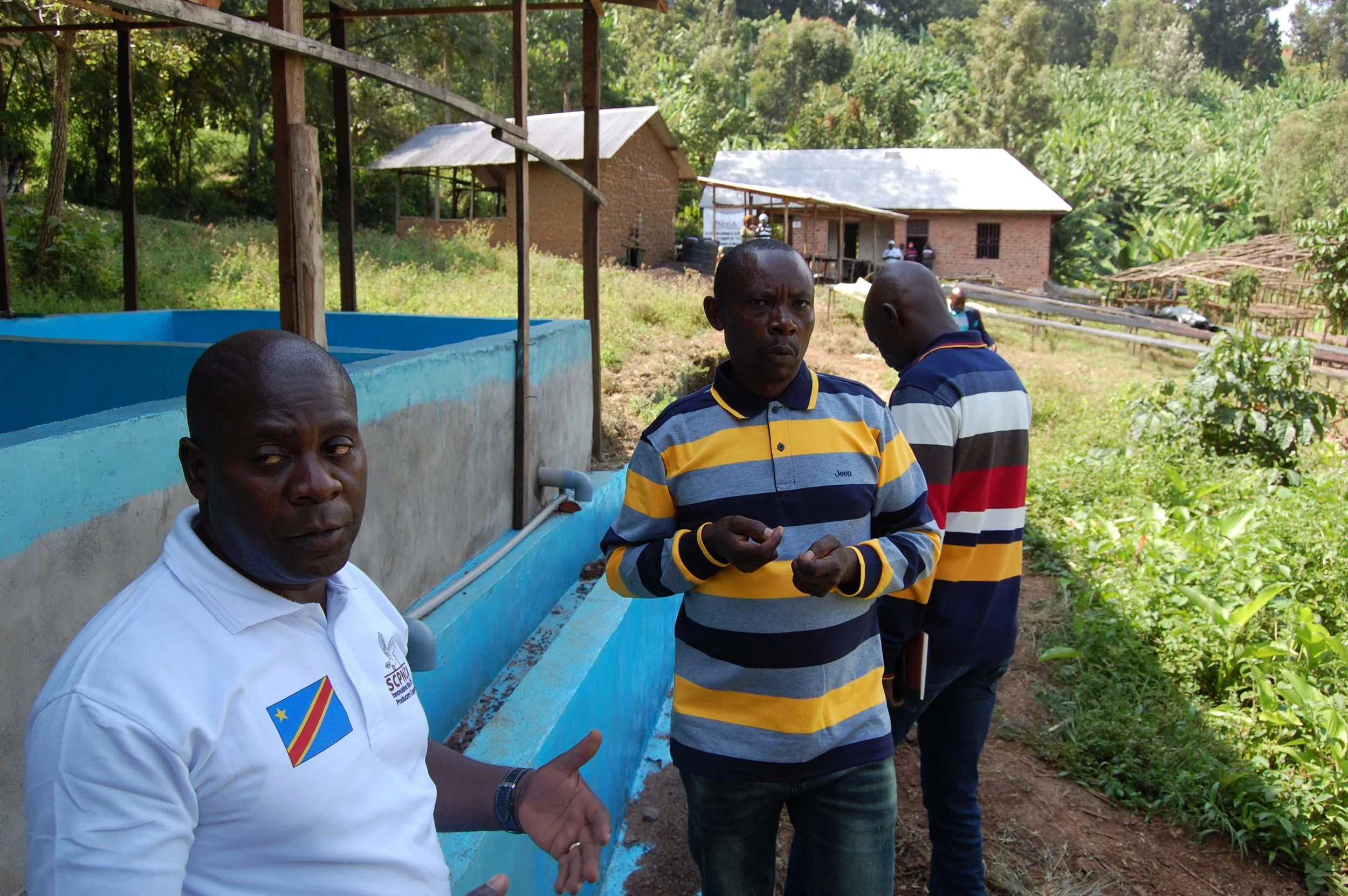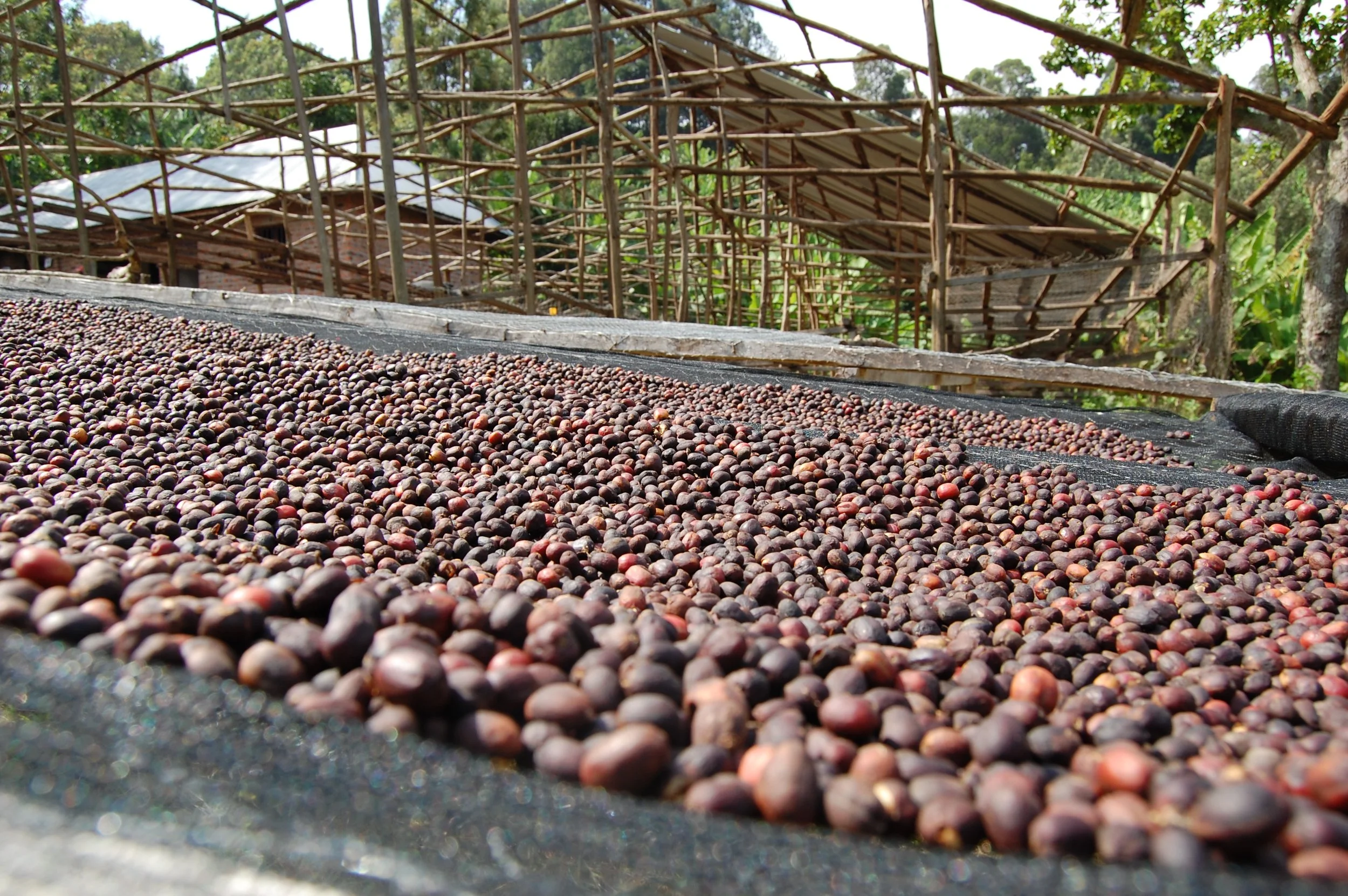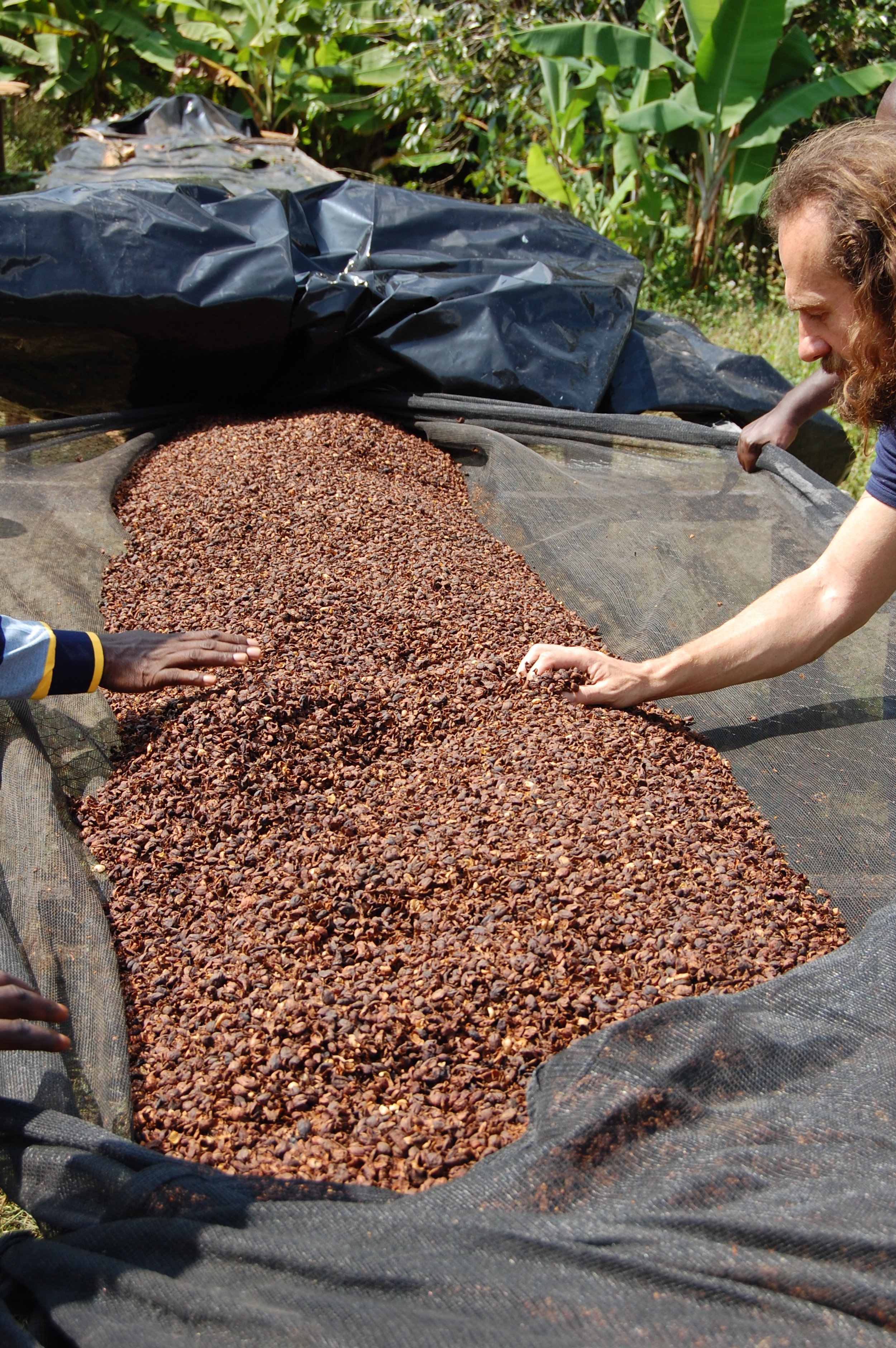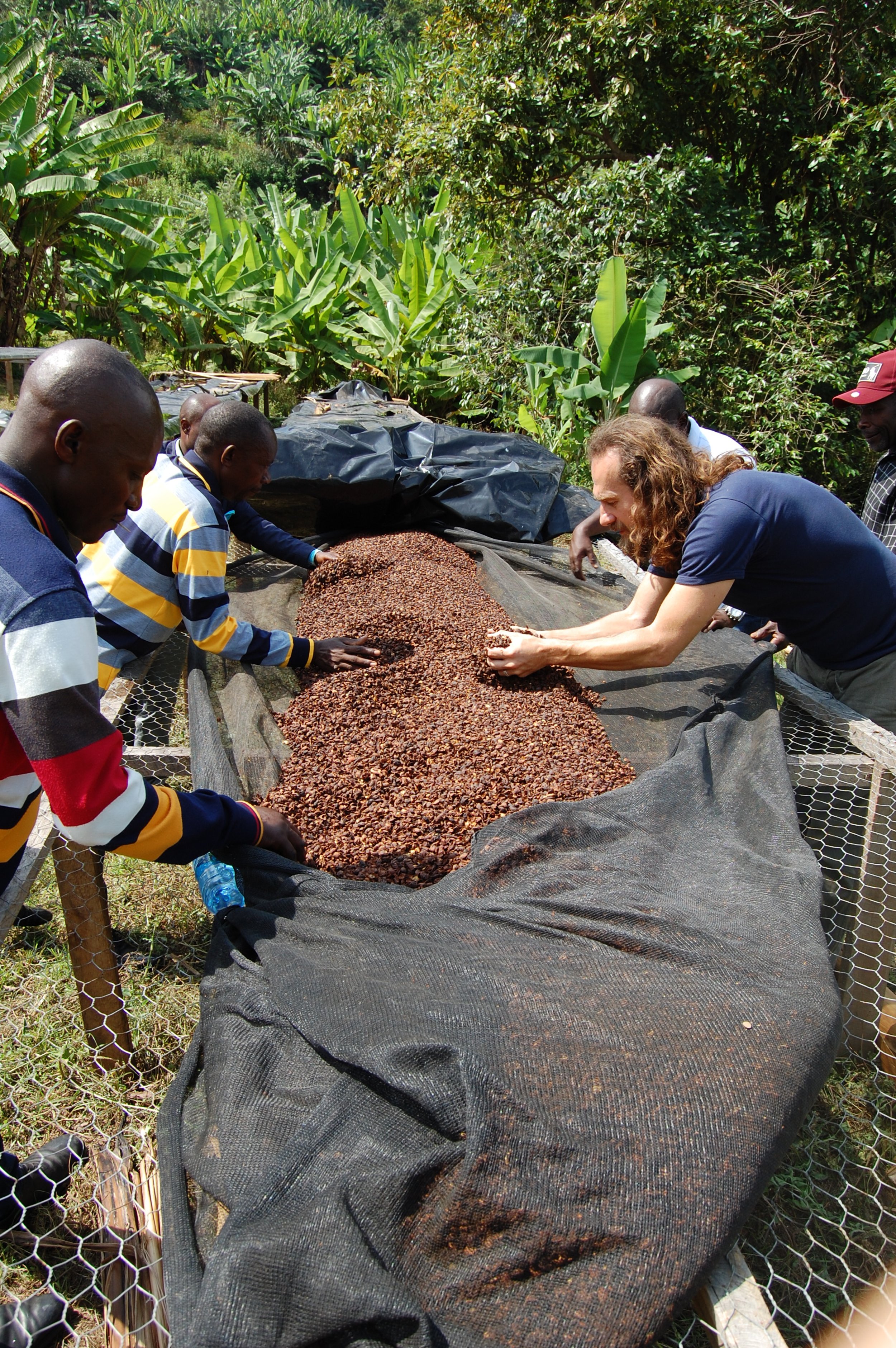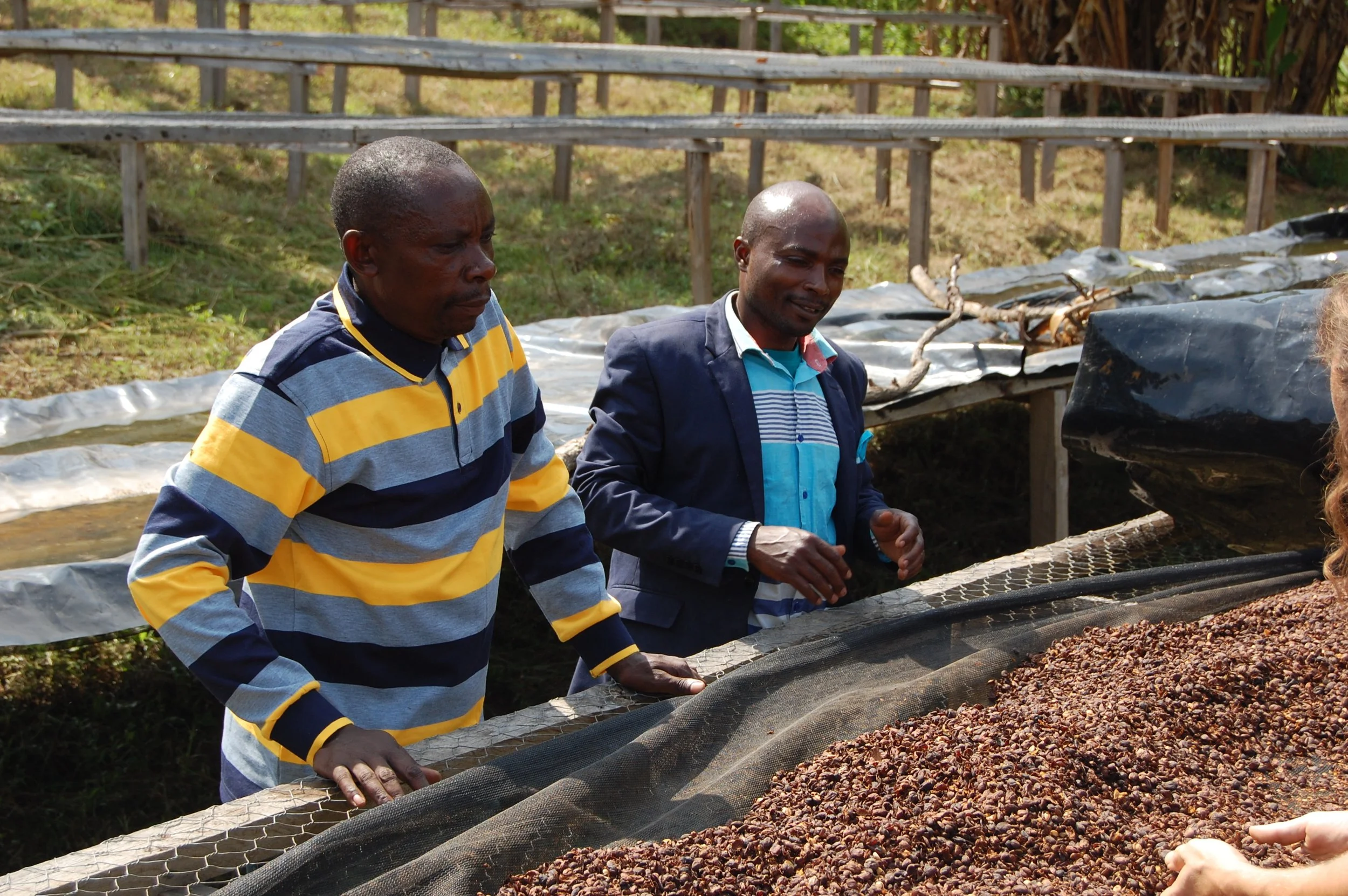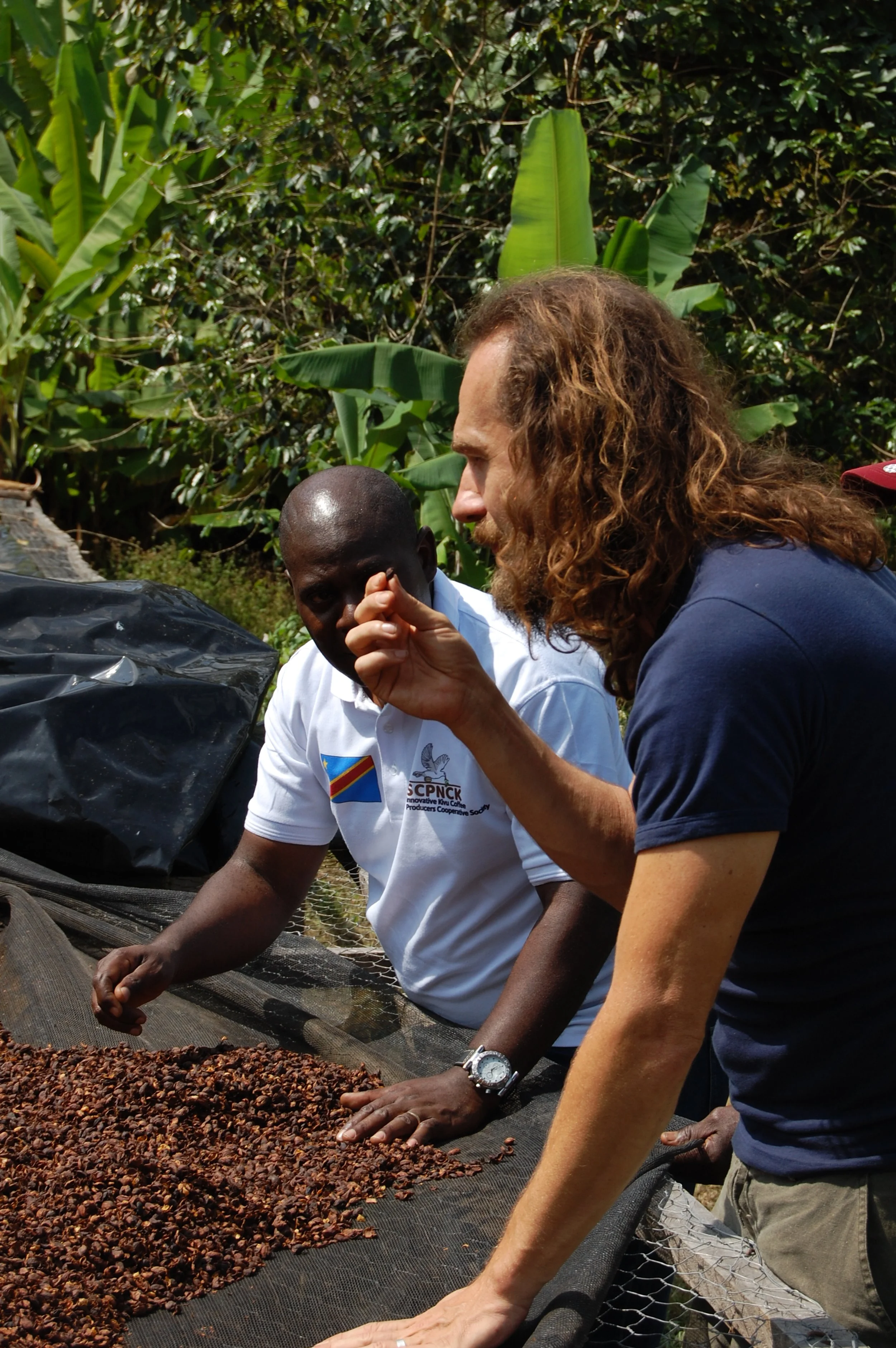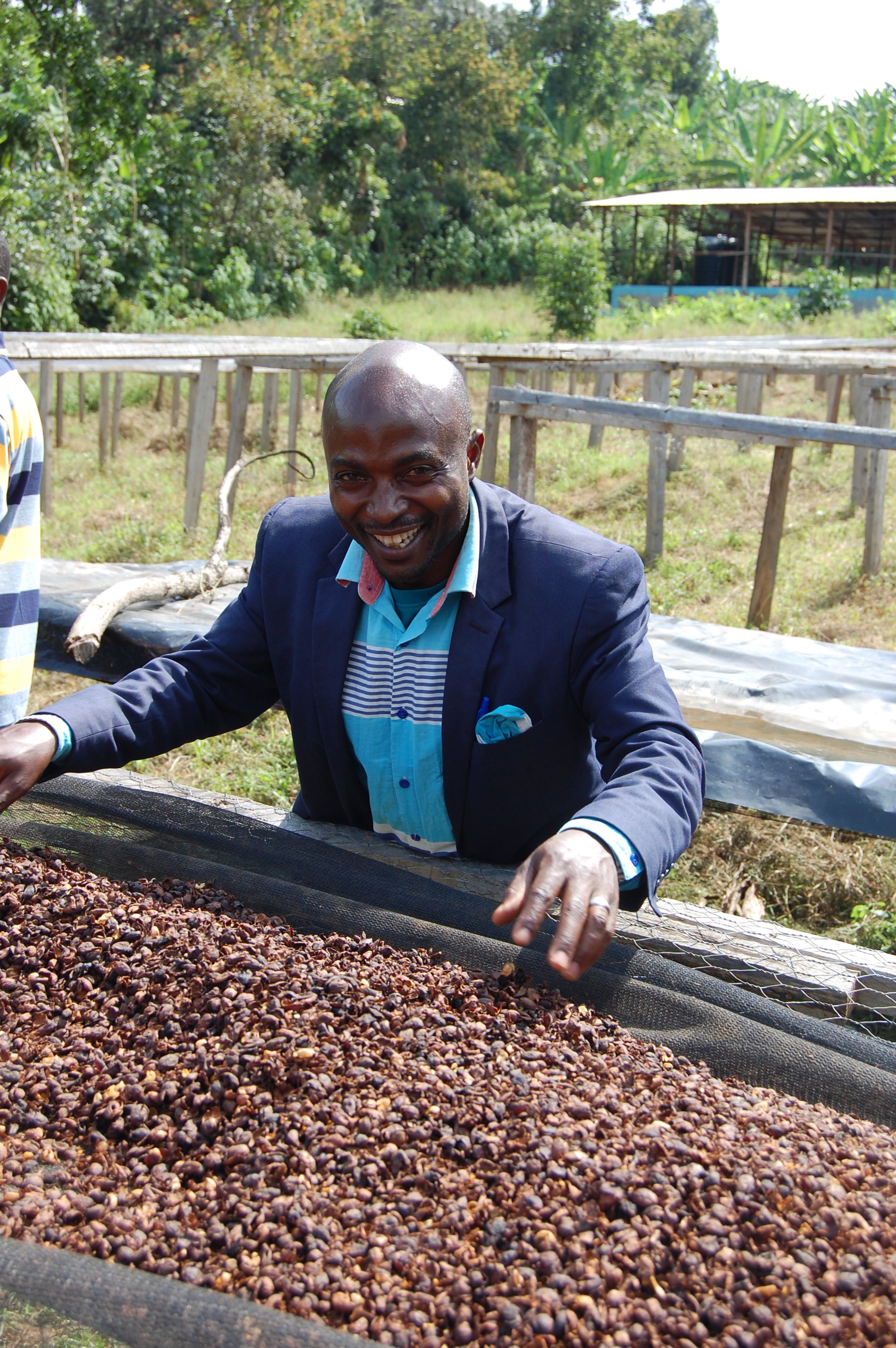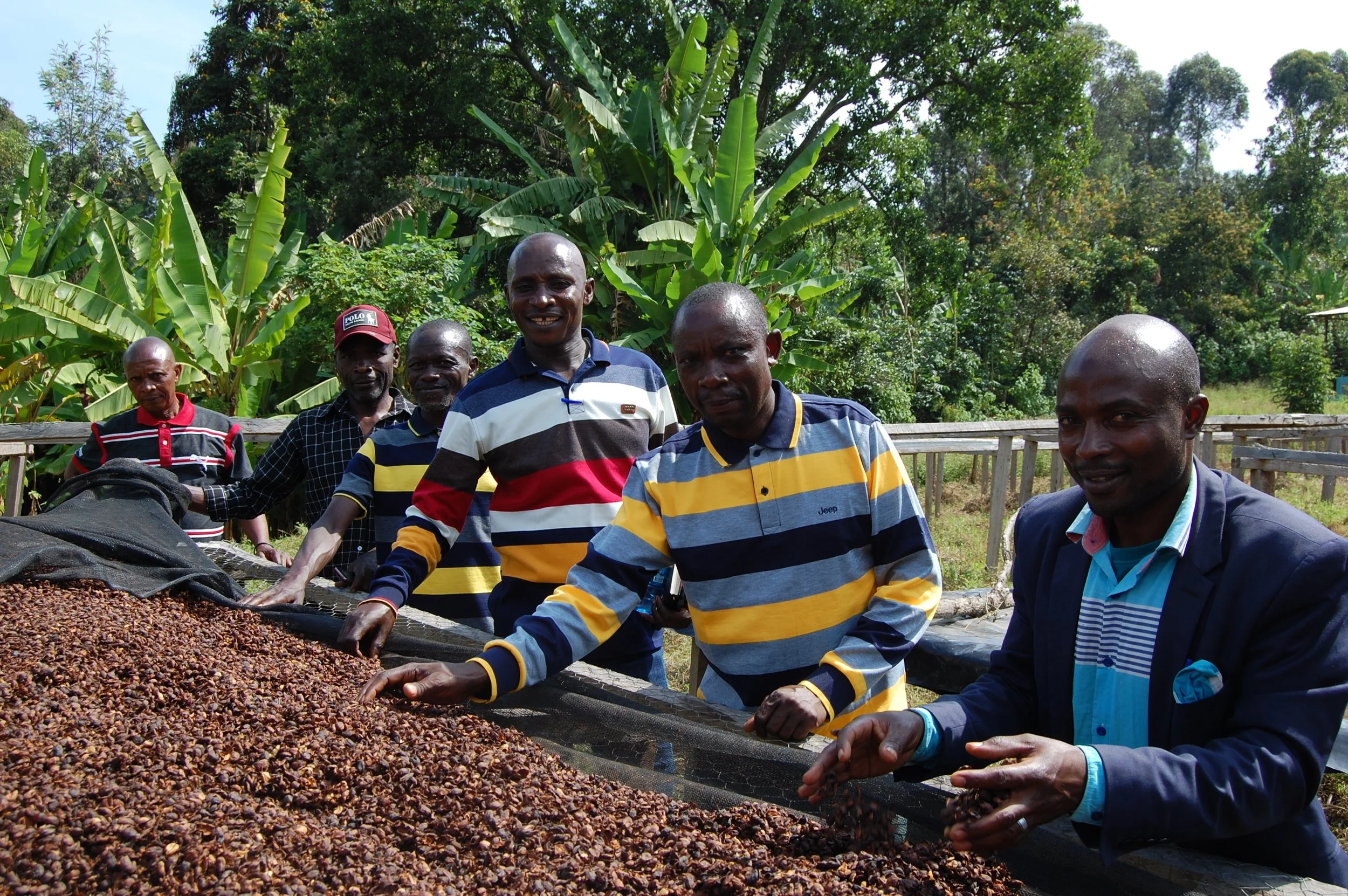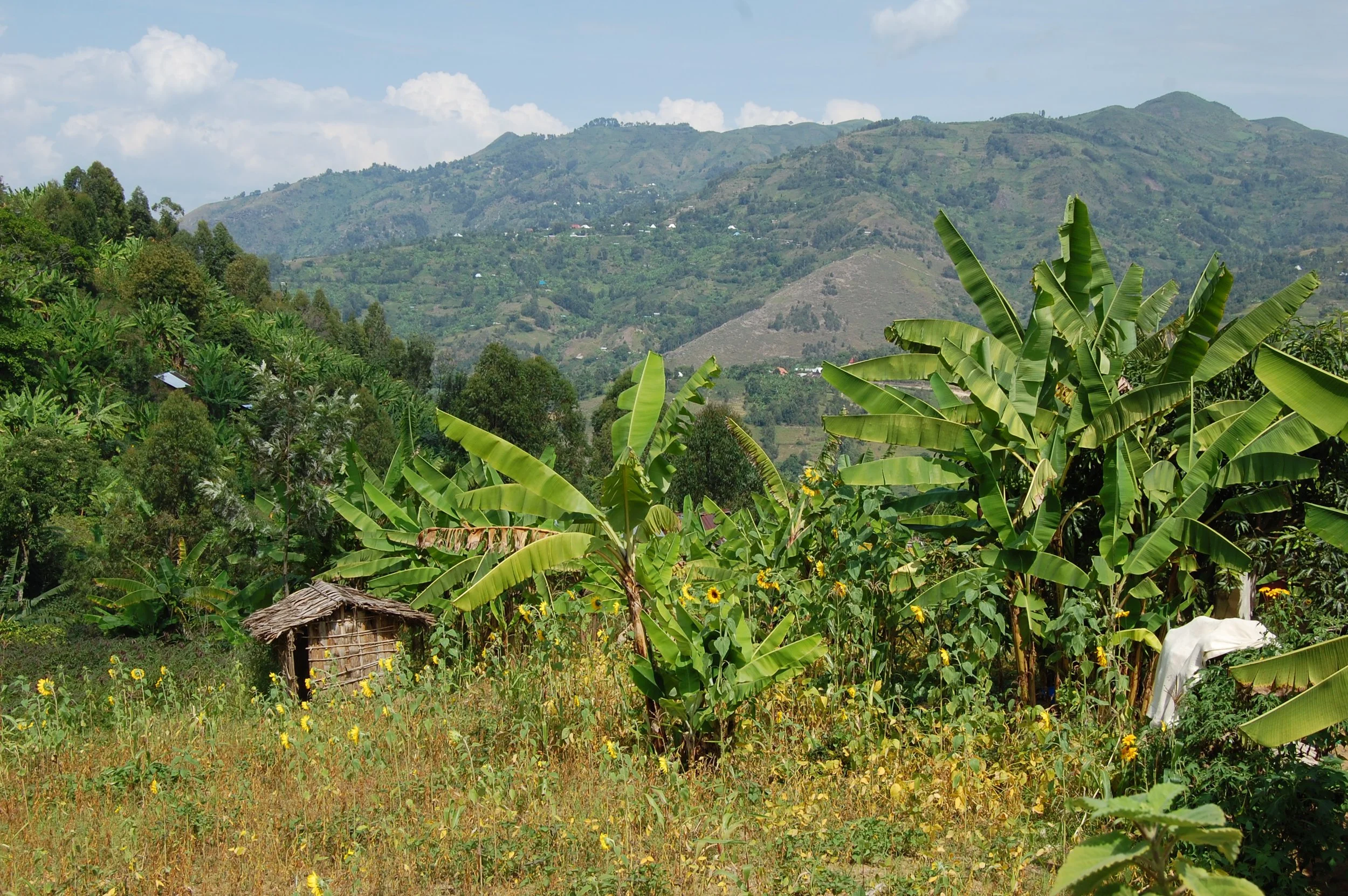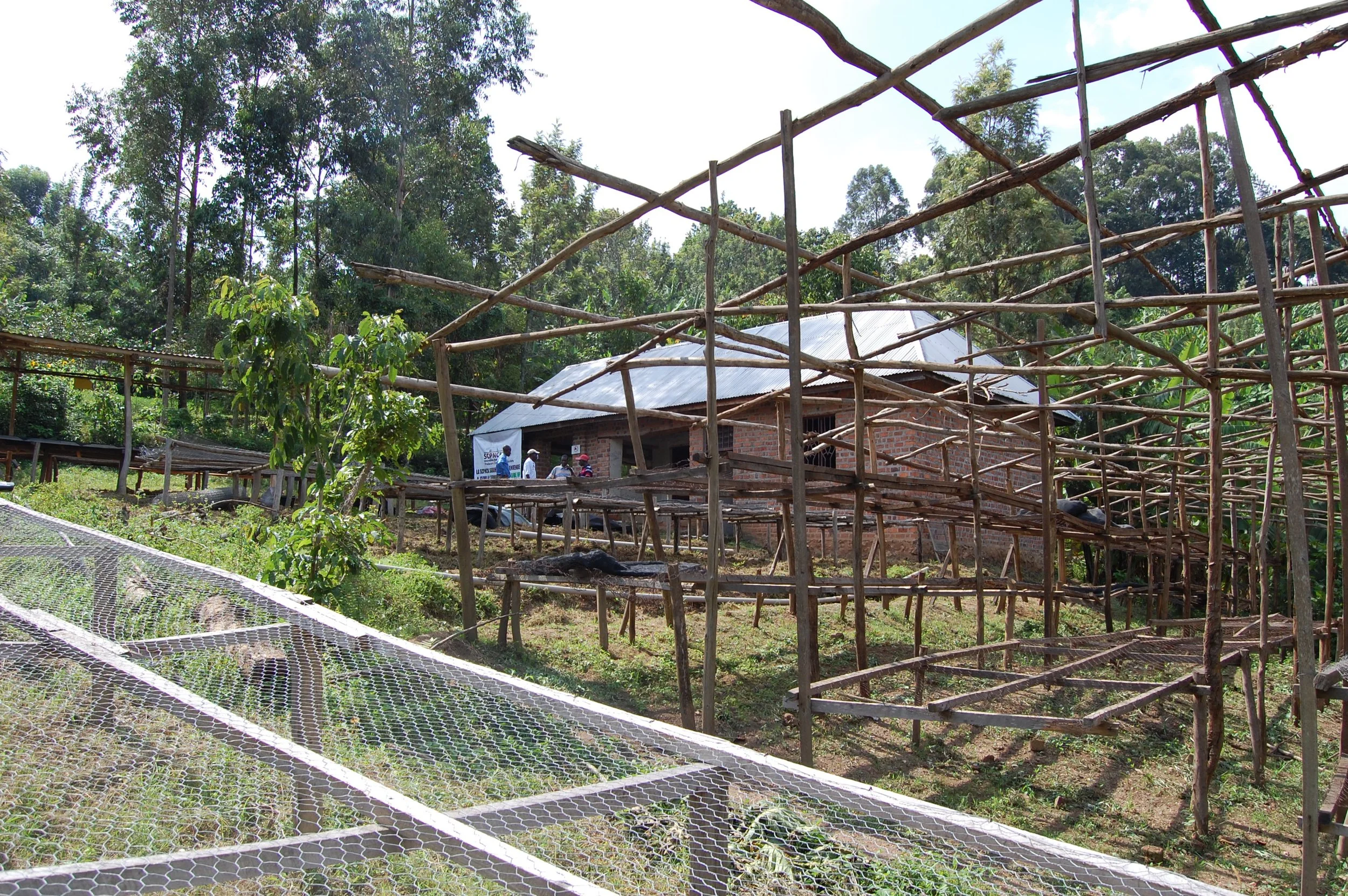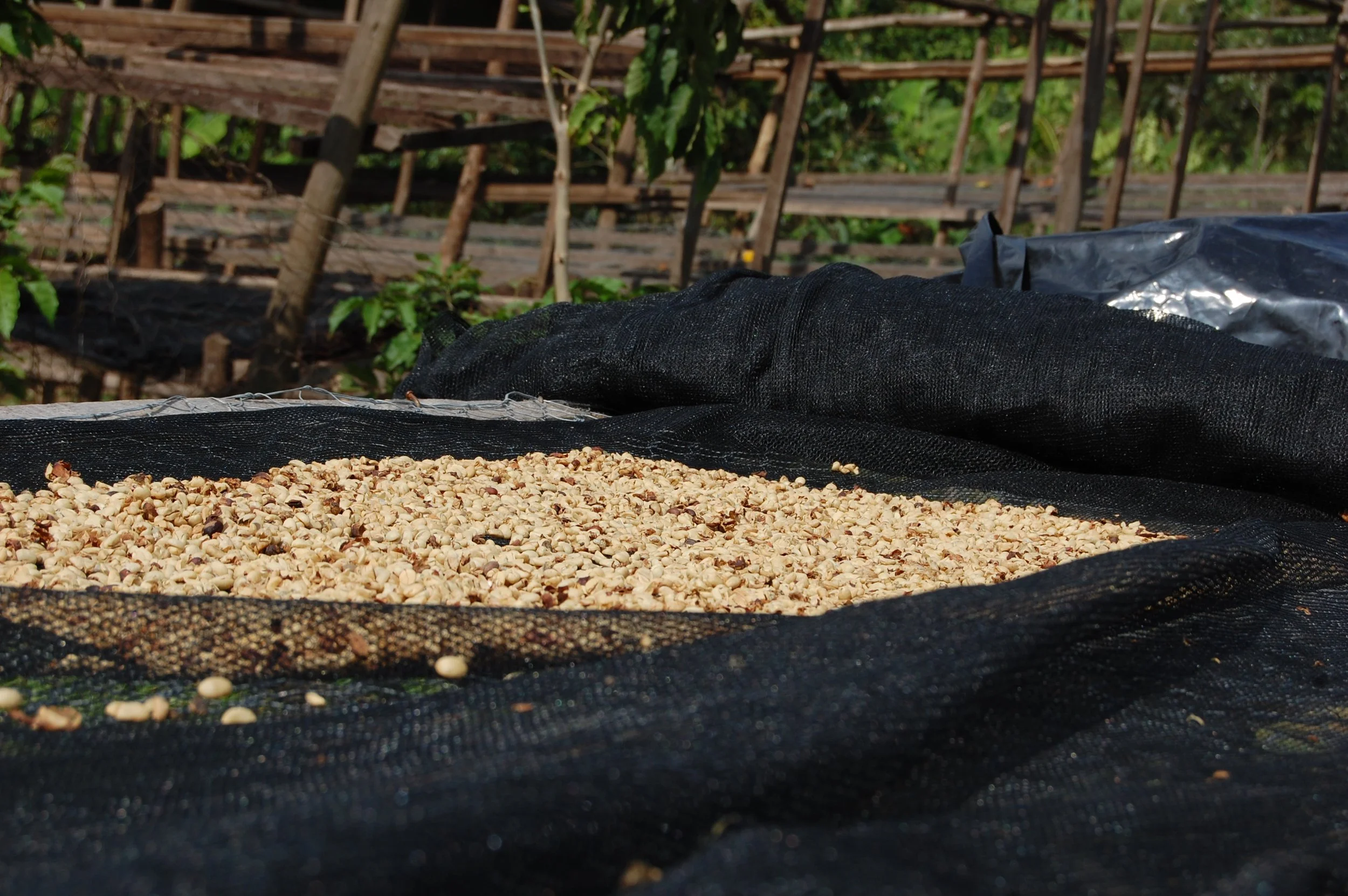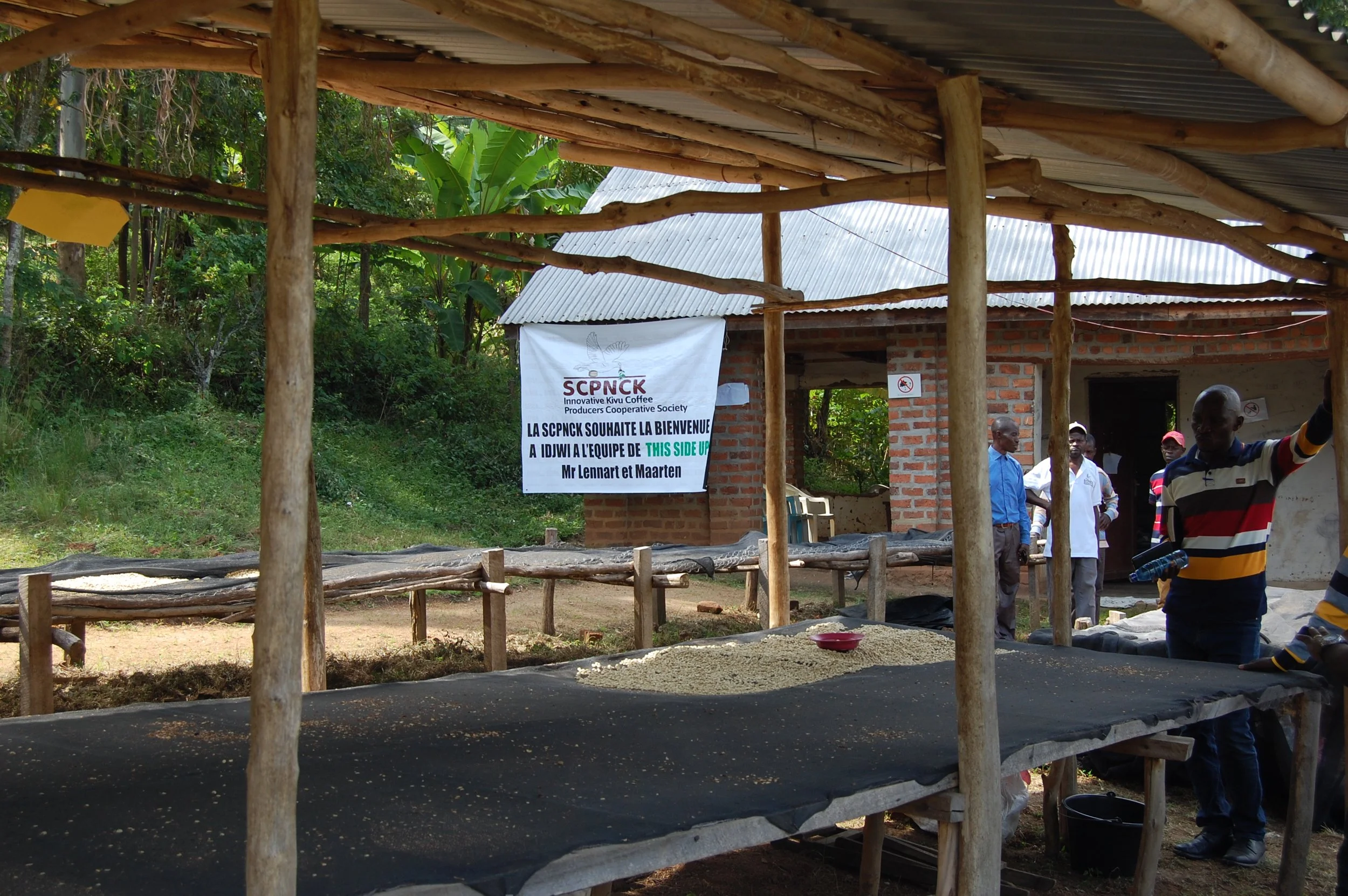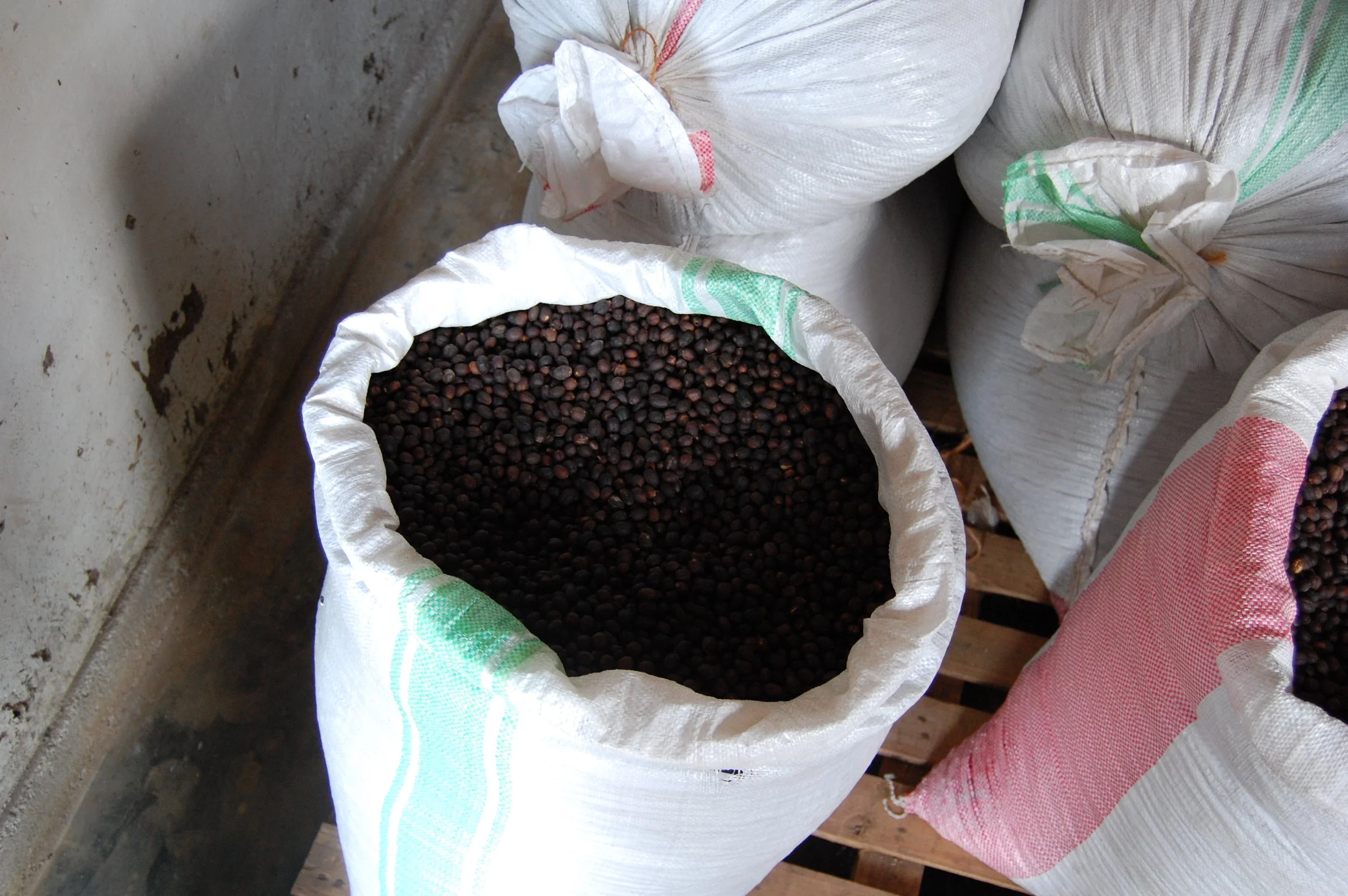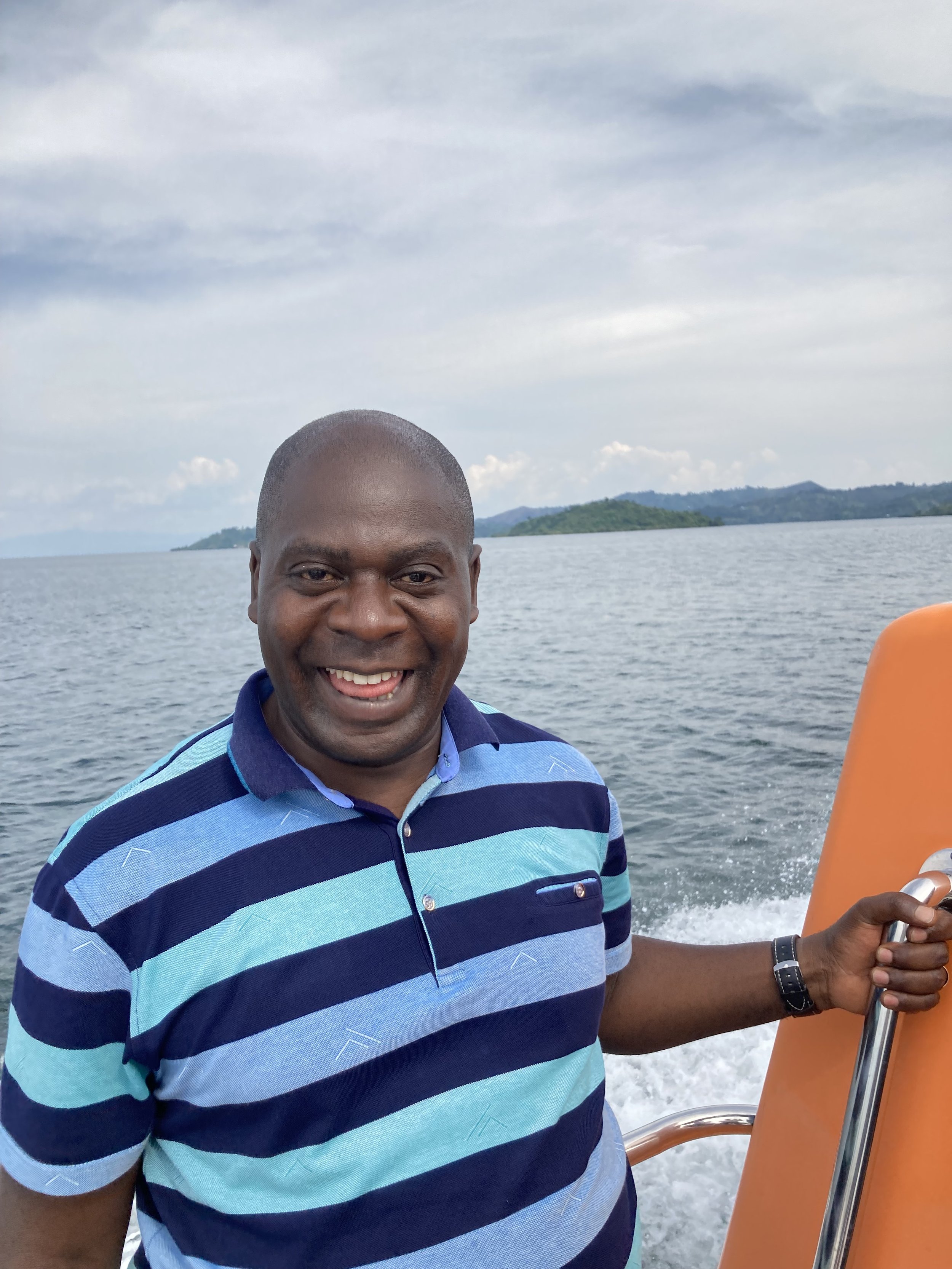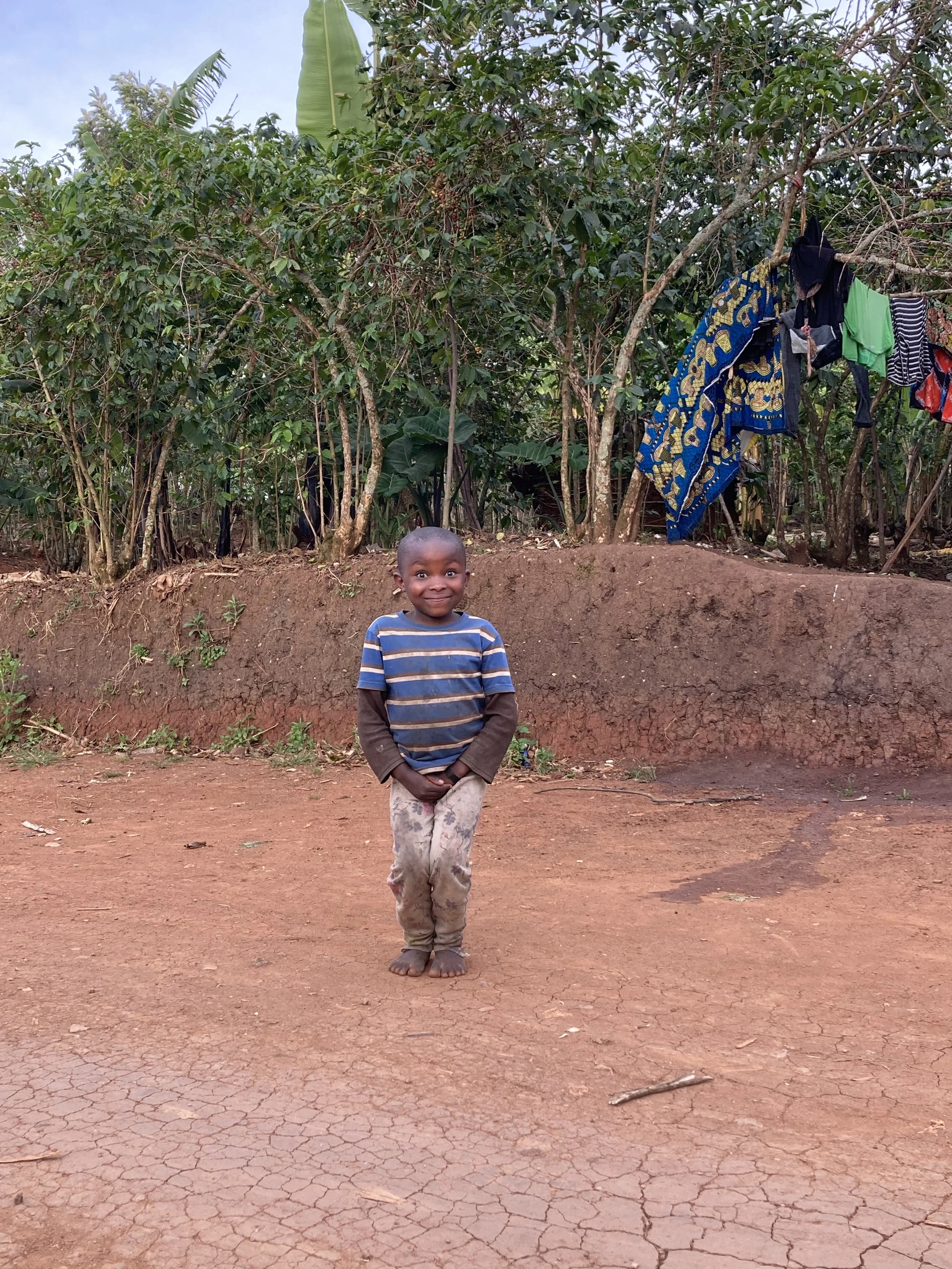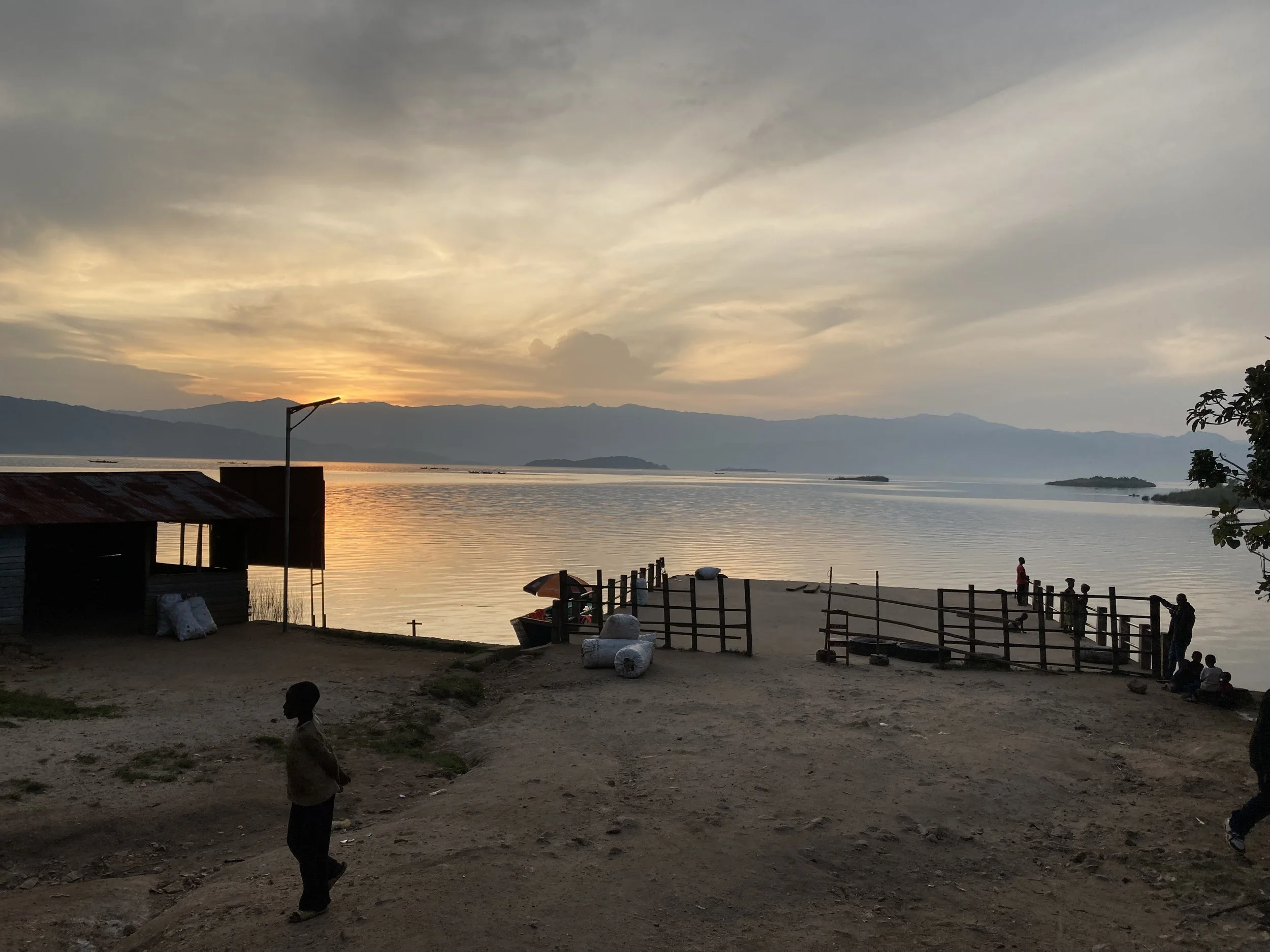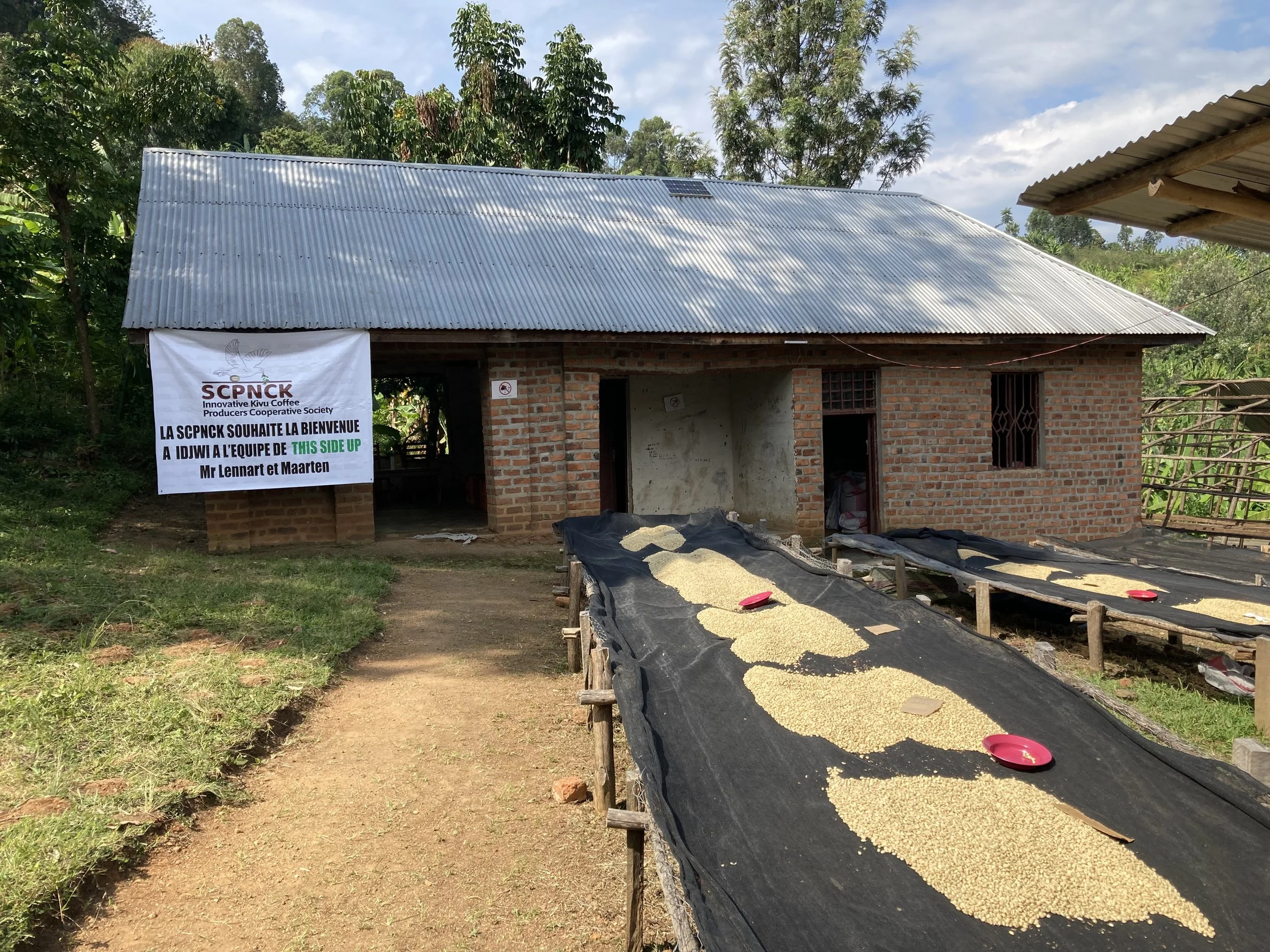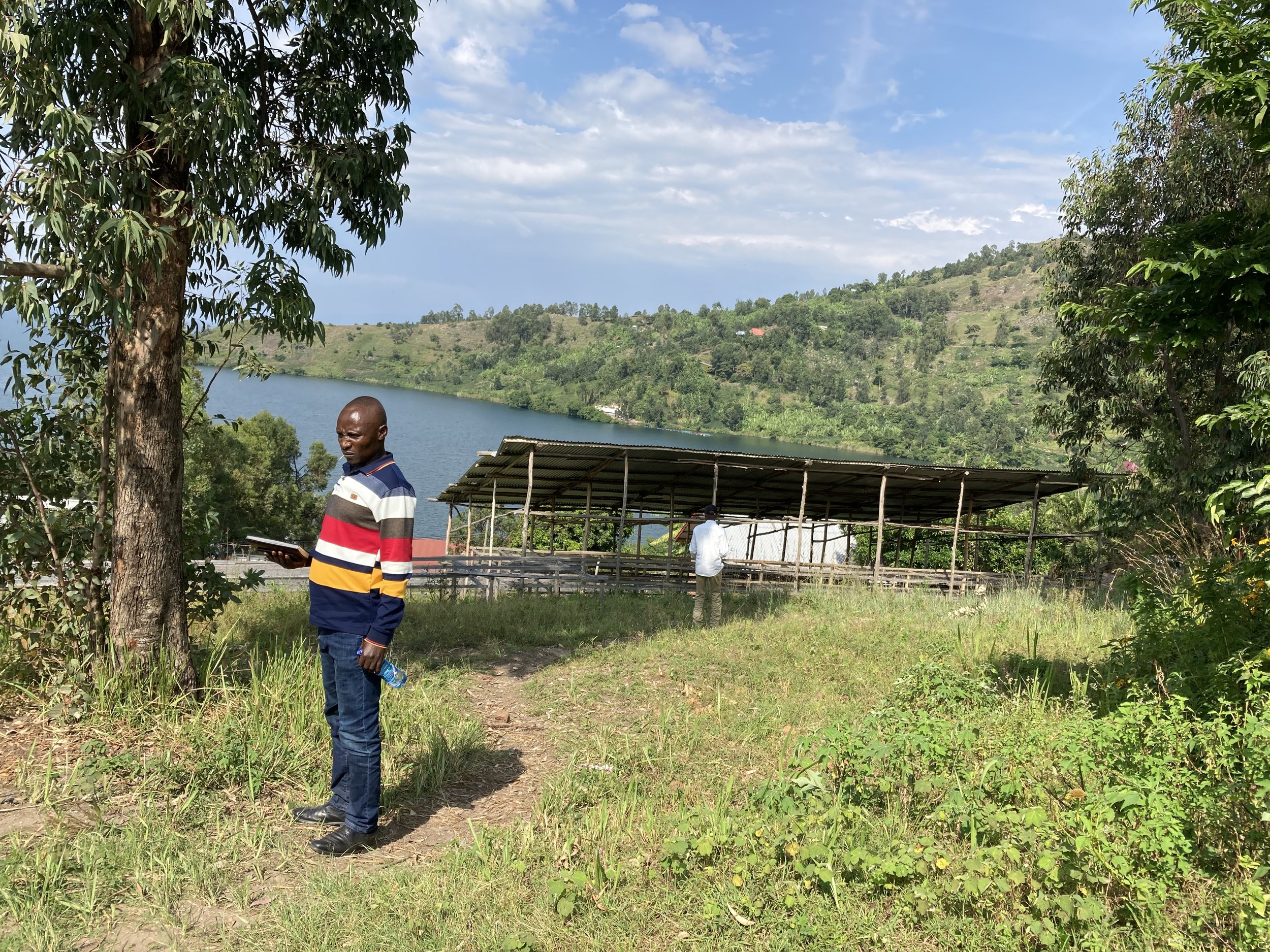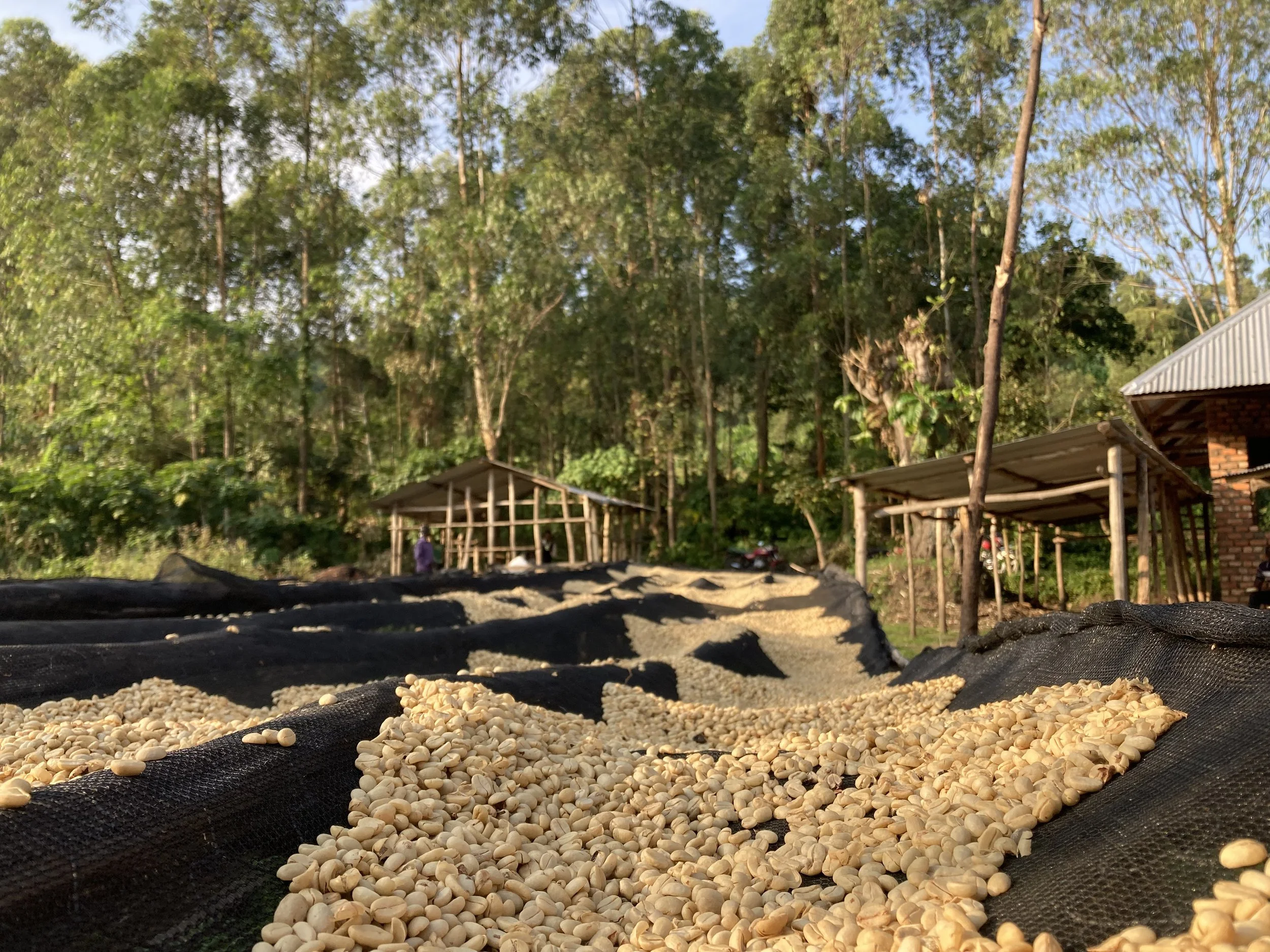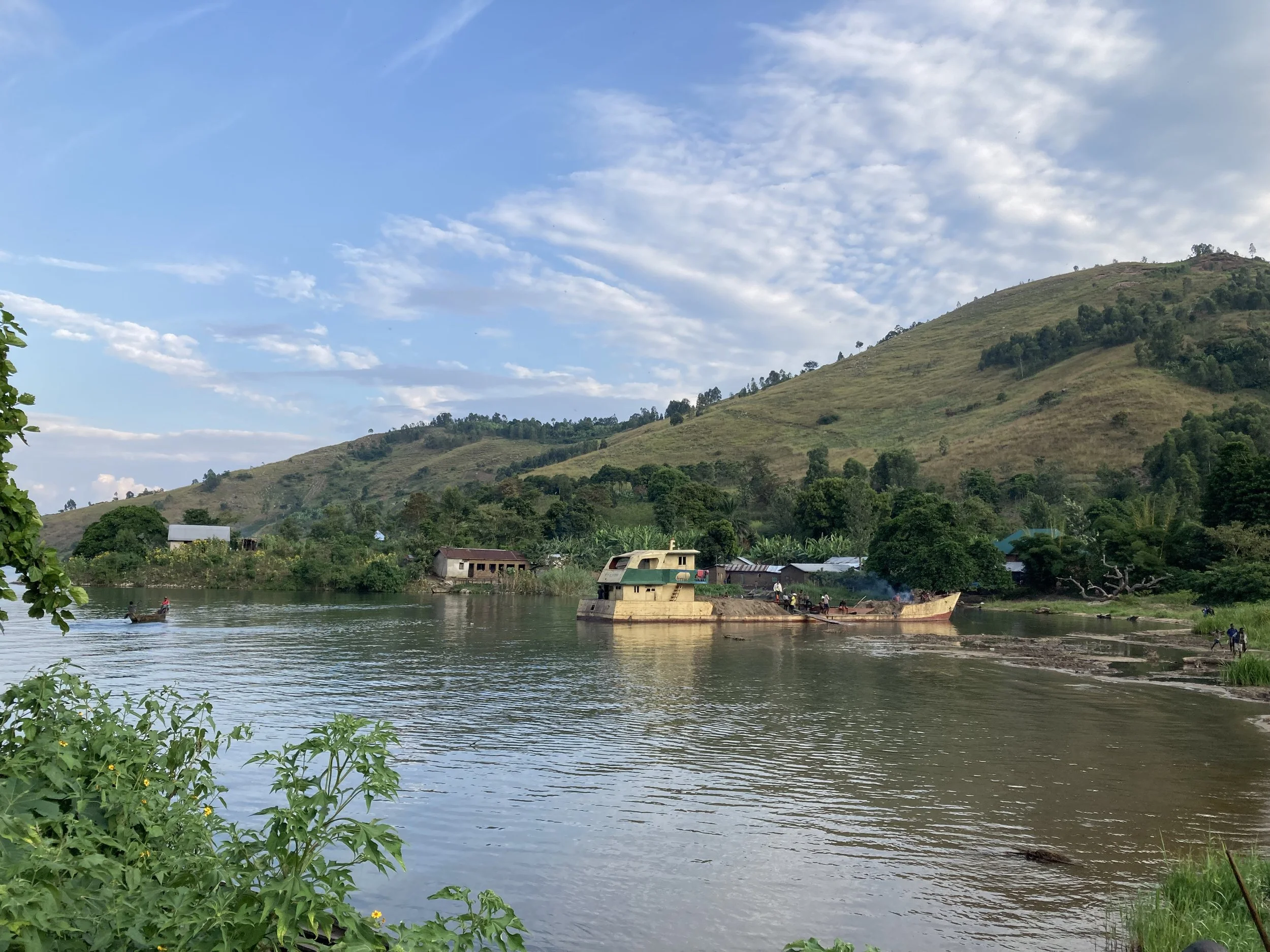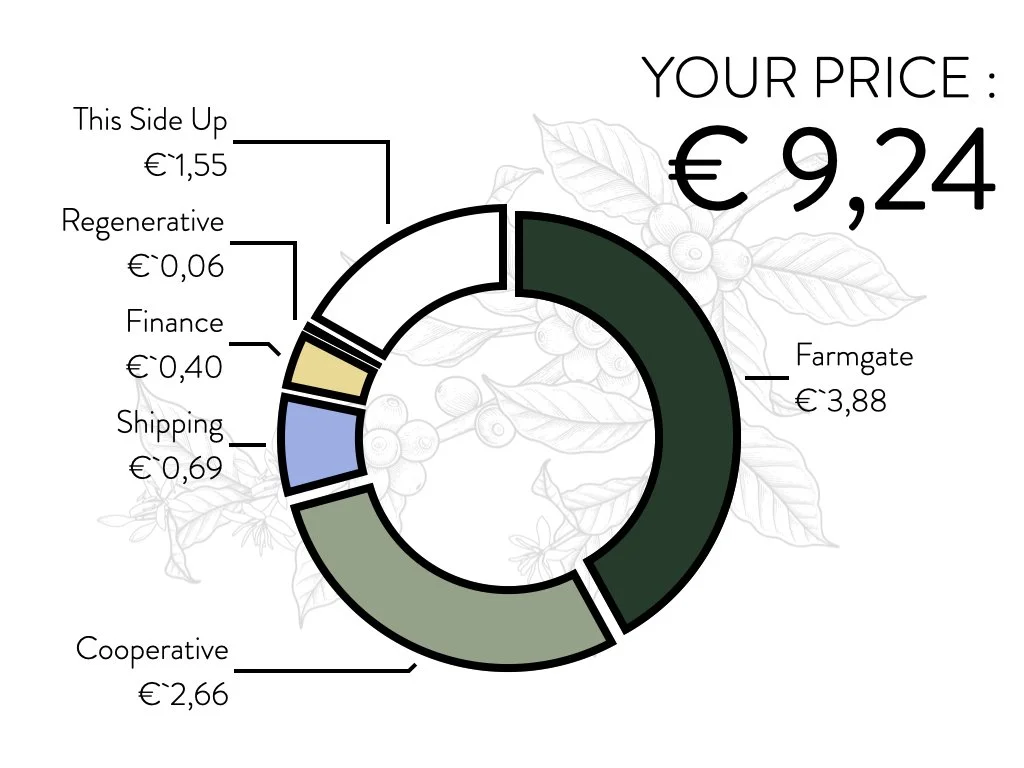video credits: Youngblood films for Good Grounds Coffee
Coffee for peace
The island of Idjwi is not a place you used to hear about often, but with the digital awakening of Africa and an influx of interest from the development community, we are starting to understand its equally tragic as wonderful history. A refuge for rebels, a smuggler's hotspot, a volcanic danger zone or the Kivu region's newest specialty coffee discovery - all describe this remote lake island accurately.
In March 2017, Dutch advisory organisation Agriterra introduced us to the legendary Gilbert Makelele, who has been the island’s foremost ambassador for an economic model that is so simple and intuitive that you wonder why it is not done more. Since 2014, he has been giving coffee seedlings to former and would-be combatants who flee to the island. Instead of shunning them off the island as was usually the case, Gilbert and the coop he started, CPNCK, trains them to farm coffee and trains the local populace to coexist with the newcomers they initially fear.
CPNCK works with “microstations”, small processing stations that are locally owned and operated. They are unique in Congo, brought there by none other than our partner Andy Carlton from Zombo in Uganda. The strategy is simple: attract ex army combatants, young people, and women to coffee and give them ownership through this decentralised microstation model, training and savings opportunities. Over the years, they have impressively changed the face of the island, offering economic security and demonstrating, with facts, how coffee can improve the livelihoods of both the locals and the island’s refugees who are given a second chance.
-
Without exaggeration, we are truly honoured to be working with such an important and inspiring group of people. The story of this island definitely deserves to be told, if only to make a very strong case for the specialty coffee community to support strong farmer cooperatives.
First of all, Idjwi's demographic makeup is unlike that of neighbouring mainland Congo and Rwanda. It has long been a safe haven for refugees of the Rwandan genocide as well as a shelter for rebels of the various wars and skirmishes that continue to be fought in the region. The island's calm and lack of industry or even cars is a stark contrast to the cities of Goma or Bukavu that surround the lake.
The Belgians planted coffee here a century ago but due to conflict and falling coffee prices in the 1980's, plantations were neglected. Still, many subsistence farmers rely solely on the sale of coffee for their monetary income. Because of their lack of organisation and because of the island's ideal location between mainland Congo and Rwanda, illicit trade was the only way to bring Idjwi's coffee to market for a long time. This meant that not only did Rwandan traders set prices as low as they wanted, but because of a complete lack of policing or regulation, that bandits would ambush the smuggling farmers, steal their coffee and often even kill them.
In fact, the striking number of widows on the island was one of the main reasons for its coffee farming community to make a stand and organise itself to sell coffee independently through a cooperative structure. If the farmers worked together to create volume and share resources, they could demand better prices and stop smuggling. One of the coops that was created is our partner CPNCK; and under the leadership of Gilbert Makelele, much good has happened. His passion and hard work has attracted an increasing number of social ventures like VECO, Good Grounds, Ensemble Pour la Différence and Luminosity, as well as investments from coffee importer Schluter, all of whom have done a lot to increase awareness around the island's misfortunes and in recent years, around its surprisingly high quality coffee in particular.
Despite old and inefficient farming methods that were hardly updated until recently, the island's coffee's quality is known to both Rwandan and Congolese mainland coffee traders. Whether this is due to different varieties grown on the island, consistent shading or soil quality is not exactly known - but we do know that CPNCK's upgrading measures have made a huge difference in recent years. Aided by development projects that stress better processing and better coop management, the coffee has risen to specialty standards and has started to be sold in markets such as the US and South Korea.
"Many organisations have come here, trying to solve the difficulties we live with daily, but they lack two essential things: a deep understanding of the actual context and circumstances and an economical alternative for the youth, men, and women that find themselves fighting a war because there is no other option."
- Gilbert Makelele
It was no surprise therefore, that when we arrived in March 2017 for the first time with Agriterra, we saw a cooperative with a strong sense of mission, especially because of Gilbert and the young and eager Chance. These guys were definitely ready to take specialty coffee to the next level by connecting more firmly to the final market. We held a workshop that explained the thinking and the demands of specialty roasters, which made the coop realise they could make direct connections between the island and roasters and increase their independence. We were also able to roast and cup their coffee on the spot for the first time with an Ikawa roaster. We hope that the creation of microlots from the different micromills will allow the coop to market their coffees more effectively to specialty importers and roasters - in fact we found there to be quite some flavour difference between these lots. The Ngula lot that we chose was the cherry sweetest in our view, but the others were beautiful too, with notes ranging from stone fruits to citrus.
In summary, we are excited to have such passionate partners in Idjwi who are promoting such a noble cause: the possibility of a peaceful and independent livelihood for the island's current and future generation through a structure that is inclusive for the island's farmers and promotes cooperation between everyone. And on top of that, they have coffee that rivals any of the specialty superstars in the region. Here's to Idjwi's future!
These farmer groups provided our 2023-2024 import.
CPNCK has several microstations, of which Ngula is one. Here, two farmer groups we purchase coffee from process their coffee.
NGULA Village lot
Maedeleo farmer group
200 coffee farmers
1/2 hectare (each)
± 200-500 coffee trees (each)
160 bags bought
NGULA women's lot
Muungano women group
80 coffee farmers
1/4 hectare (each)
± 200 coffee trees (each)
40 bags bought
THIS SIDE UP VALUE CHAIN
CPNCK distinguishes itself with a very locally owned value chain: through the microstation model, farmers stay in charge of their coffee until it is dried. Then, CPNCK uniquely took control of the export process entirely by having acquired the means to mill their own coffee: there is a fully functioning dry mill on the island, sponsored in part by the Japanese development agency JICA.
Traceability
You can find all the signed contracts and shipping documents that we made with CPNCK since 2021 below (Google Drive).
KEY ACHIEVEMENTS
2017: installation of the coop's own dry mill and direct export capacity, first direct export to Europe. Separated coffees from all microstations to create microlots. Farmer members cupped their own coffee for the first time at Agriterra and This Side Up’s meeting on the island.
2018: 50% more coffee imported, equalling all of the harvest from the Ngula microstation. First natural experiments imported.
2019: High quality naturals and washed coffees imported, introduction of Gilbert and CPNCK into the Circular Coffee Collective.
2020: imported naturals, washed K2 quality and K4 quality for our "farmer blend" series.
2021: doubled our order from CPNCK for the 2021 season. CPNCK opened their quality control lab in October with a huge celebration (see pictures below).
2022: Huge upgrade finished to the Ngula microstation, effectively making it a true washing station in terms of functionality and features: gravity sorters and three fermentation tanks as well as massive expansion of both shade and full sun drying installed.
2023: First time importing a designated container from CPNCK, without consolidating with our other partner in Congo, RAEK. Highest ever volume imported and first time importing Muungano’s women’s coffee.
OUR QC’S FLAVOUR
IMPRESSIONS
“Congo is one of these origins that continues to surprise year to year. Maybe because the country does not yet have a clear flavour profile in people's minds, I often hear associations that do not fit reality, or we end up comparing to neighbouring countries like Uganda or Kenya - but these lots never fail to be be different to expectations. This year, it reminds me of ripe fresh berries: raspberry, blueberry, currants, raisins. The brightness and bold sweetness of Congolese coffee make it an incredibly versatile cup, ready to be unleashed through different roast styles and brews.”
- Renata Hardewijn, November 2023
Ngula village lot - natural 2023
ROASTING ADVICE
As there is some resemblance between Congolese and Kenyan coffee - we decided to try a roast profile that was originally developed for our Sakami lots - with great success. These dense beans need some power to develop, and for production roasts, keep in mind that they are prone to losing a lot of energy on the crack, so an extra push might be needed here as well.
As for Ikawa roasts, surprisingly enough for natural Congolese lots you can use both “Washed Africa” and “Natural Africa, they both work great.
PHOTO GALLERY
You may use these images freely to promote CPNCK among your customers.
CONTACT CPNCK
CPNCK's manager Gilbert Makelele is fluent in both English and French and is happy to converse with interested buyers and coffee enthusiasts by email.
PRESIDENT Gilbert Makelele
EMAIL cpnckg@gmail.com
TEL +243 997253080
Bugarula, Idjwi, South Kivu Region - Democratic Republic Congo
Coffee from Idjwi and the case for coops
Without exaggeration, we are truly honoured to be working with such an important and inspiring group of people. The story of this island definitely deserves to be told, if only to make a very strong case for the specialty coffee community to support strong farmer cooperatives.
First of all, Idjwi's demographic makeup is unlike that of neighbouring mainland Congo and Rwanda. It has long been a safe haven for refugees of the Rwandan genocide as well as a shelter for rebels of the various wars and skirmishes that continue to be fought in the region. The island's calm and lack of industry or even cars is a stark contrast to the cities of Goma or Bukavu that surround the lake.
The Belgians planted coffee here a century ago but due to conflict and falling coffee prices in the 1980's, plantations were neglected. Still, many subsistence farmers rely solely on the sale of coffee for their monetary income. Because of their lack of organisation and because of the island's ideal location between mainland Congo and Rwanda, illicit trade was the only way to bring Idjwi's coffee to market for a long time. This meant that not only did Rwandan traders set prices as low as they wanted, but because of a complete lack of policing or regulation, that bandits would ambush the smuggling farmers, steal their coffee and often even kill them.
In fact, the striking number of widows on the island was one of the main reasons for its coffee farming community to make a stand and organise itself to sell coffee independently through a cooperative structure. If the farmers worked together to create volume and share resources, they could demand better prices and stop smuggling. One of the coops that was created is our partner CPNCK; and under the leadership of Gilbert Makelele, much good has happened. His passion and hard work has attracted an increasing number of social ventures like VECO, Good Grounds, Ensemble Pour la Différence and Luminosity, as well as investments from coffee importer Schluter, all of whom have done a lot to increase awareness around the island's misfortunes and in recent years, around its surprisingly high quality coffee in particular.
Despite old and inefficient farming methods that were hardly updated until recently, the island's coffee's quality is known to both Rwandan and Congolese mainland coffee traders. Whether this is due to different varieties grown on the island, consistent shading or soil quality is not exactly known - but we do know that CPNCK's upgrading measures have made a huge difference in recent years. Aided by development projects that stress better processing and better coop management, the coffee has risen to specialty standards and has started to be sold in markets such as the US and South Korea.
"Many organisations have come here, trying to solve the difficulties we live with daily, but they lack two essential things: a deep understanding of the actual context and circumstances and an economical alternative for the youth, men, and women that find themselves fighting a war because there is no other option."
- Gilbert Makelele
It was no surprise therefore, that when we arrived in March 2017 for the first time with Agriterra, we saw a cooperative with a strong sense of mission, especially because of Gilbert and the young and eager Chance. These guys were definitely ready to take specialty coffee to the next level by connecting more firmly to the final market. We held a workshop that explained the thinking and the demands of specialty roasters, which made the coop realise they could make direct connections between the island and roasters and increase their independence. We were also able to roast and cup their coffee on the spot for the first time with an Ikawa roaster. We hope that the creation of microlots from the different micromills will allow the coop to market their coffees more effectively to specialty importers and roasters - in fact we found there to be quite some flavour difference between these lots. The Ngula lot that we chose was the cherry sweetest in our view, but the others were beautiful too, with notes ranging from stone fruits to citrus.
In summary, we are excited to have such passionate partners in Idjwi who are promoting such a noble cause: the possibility of a peaceful and independent livelihood for the island's current and future generation through a structure that is inclusive for the island's farmers and promotes cooperation between everyone. And on top of that, they have coffee that rivals any of the specialty superstars in the region. Here's to Idjwi's future!


